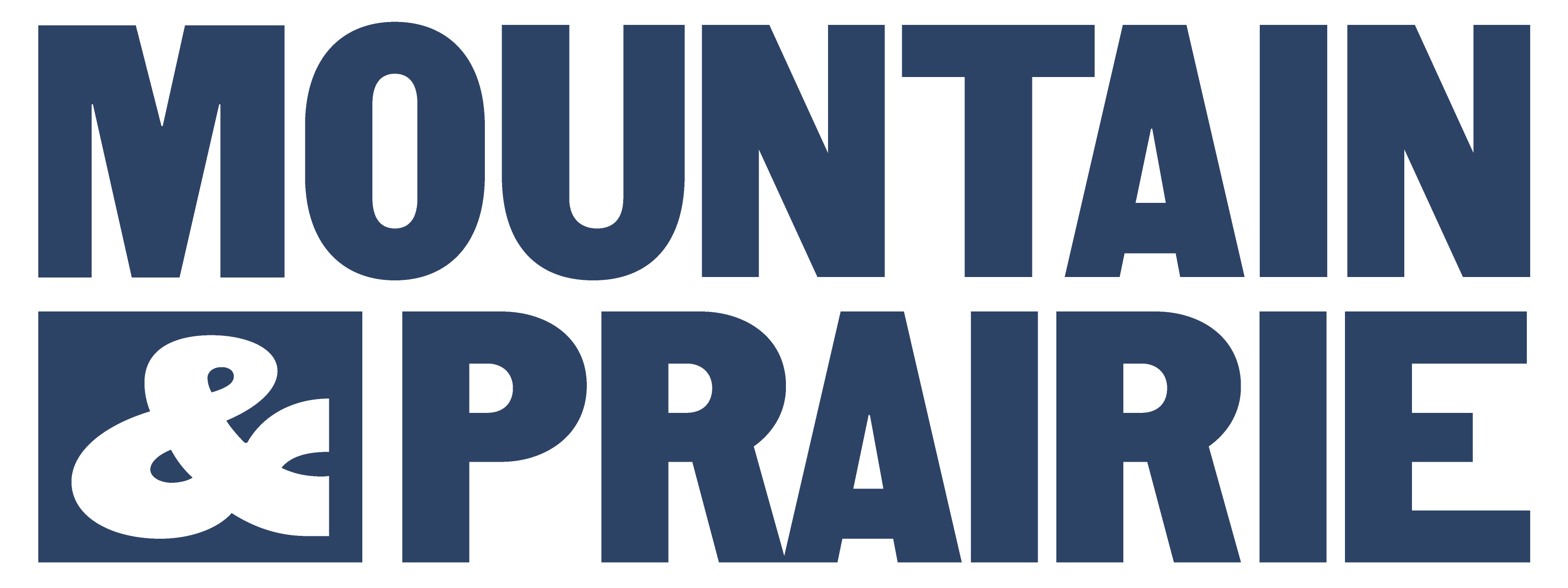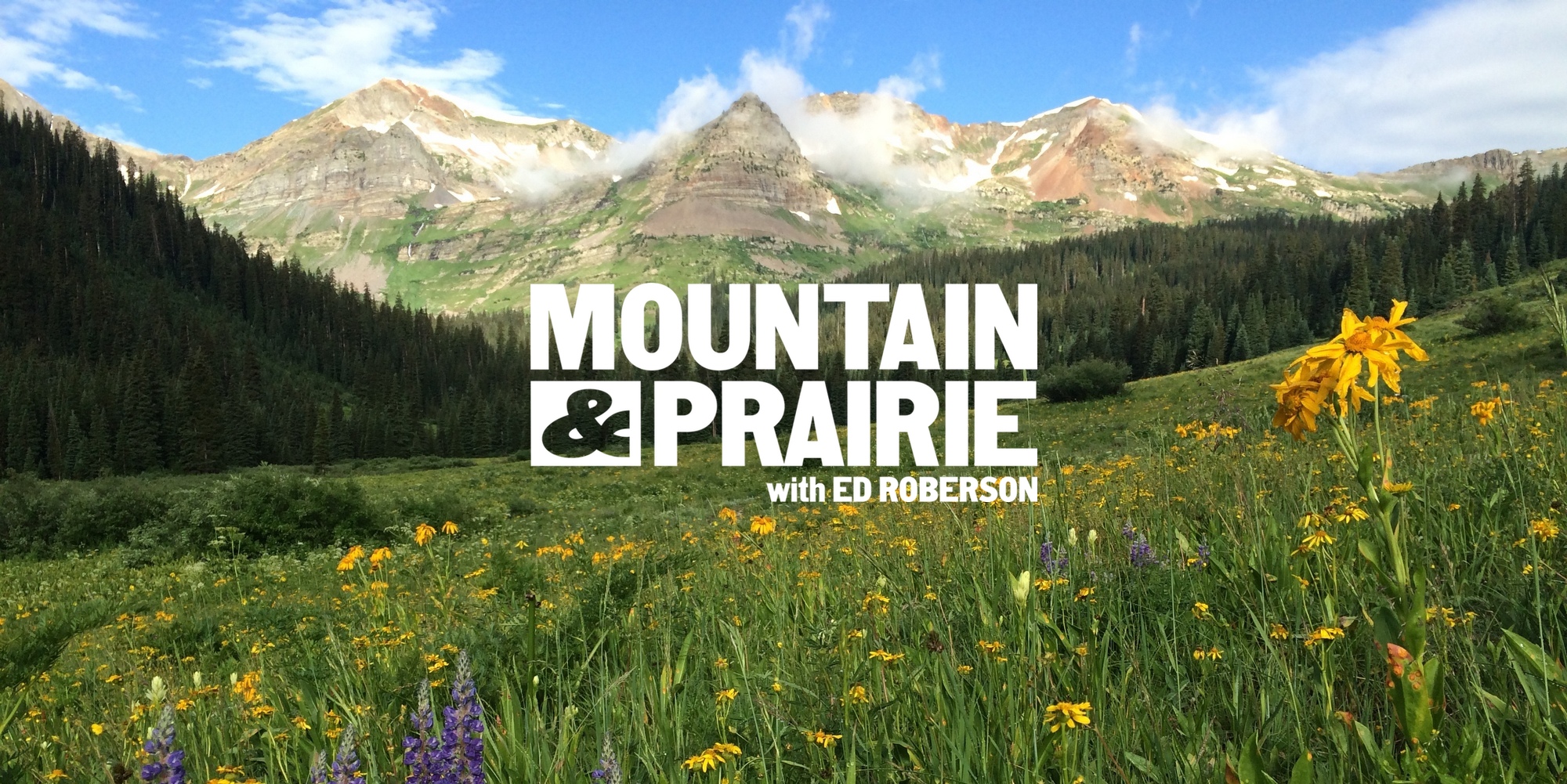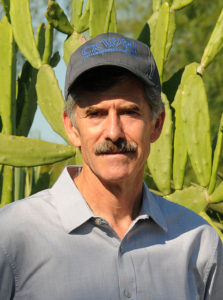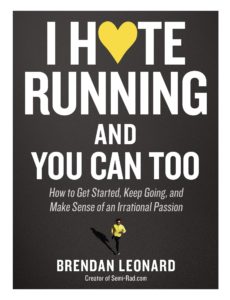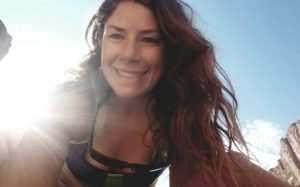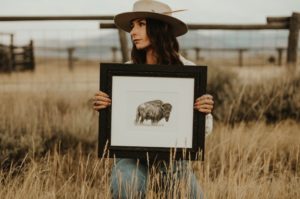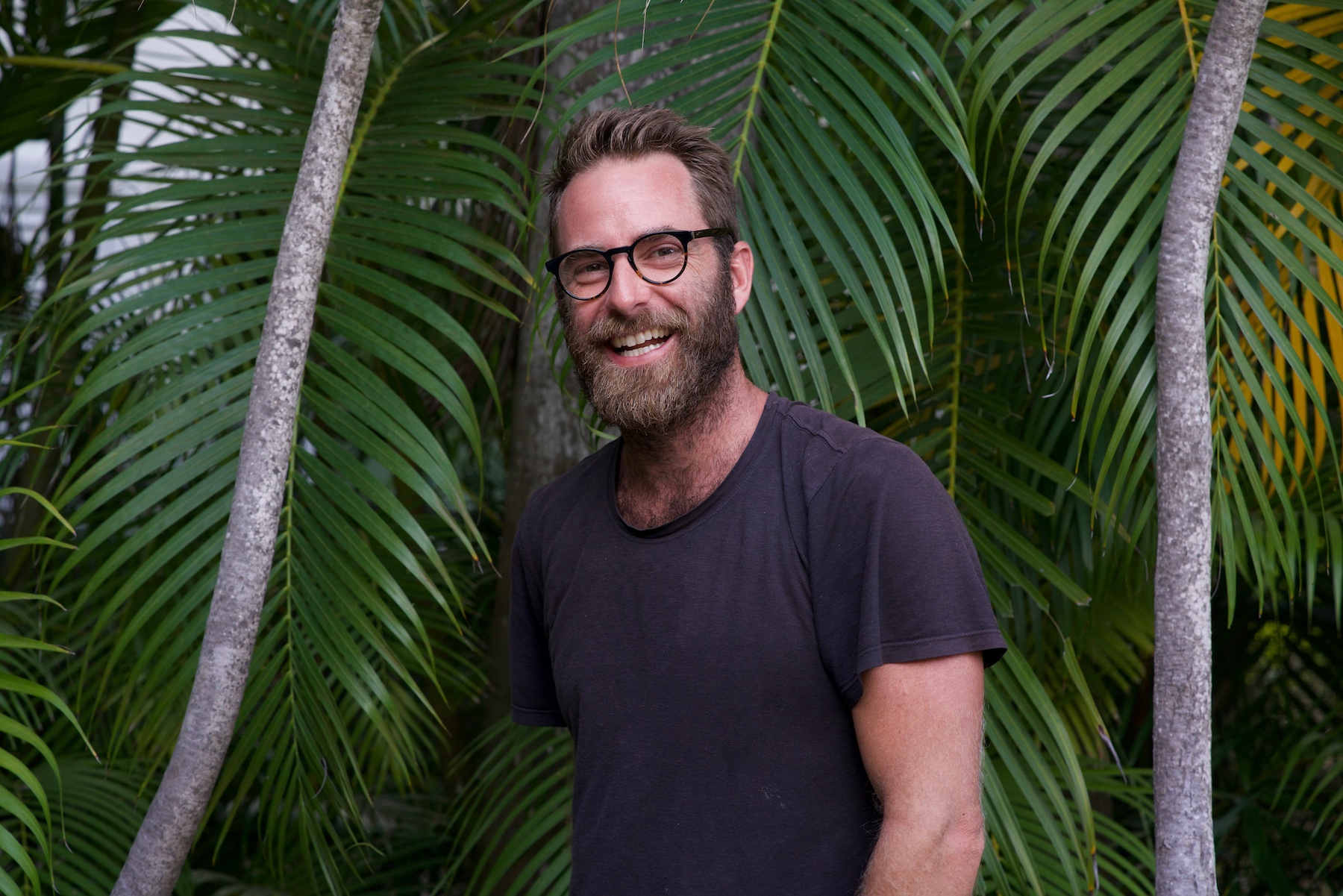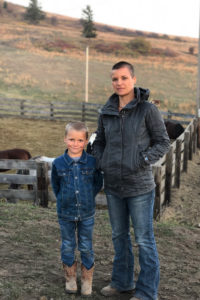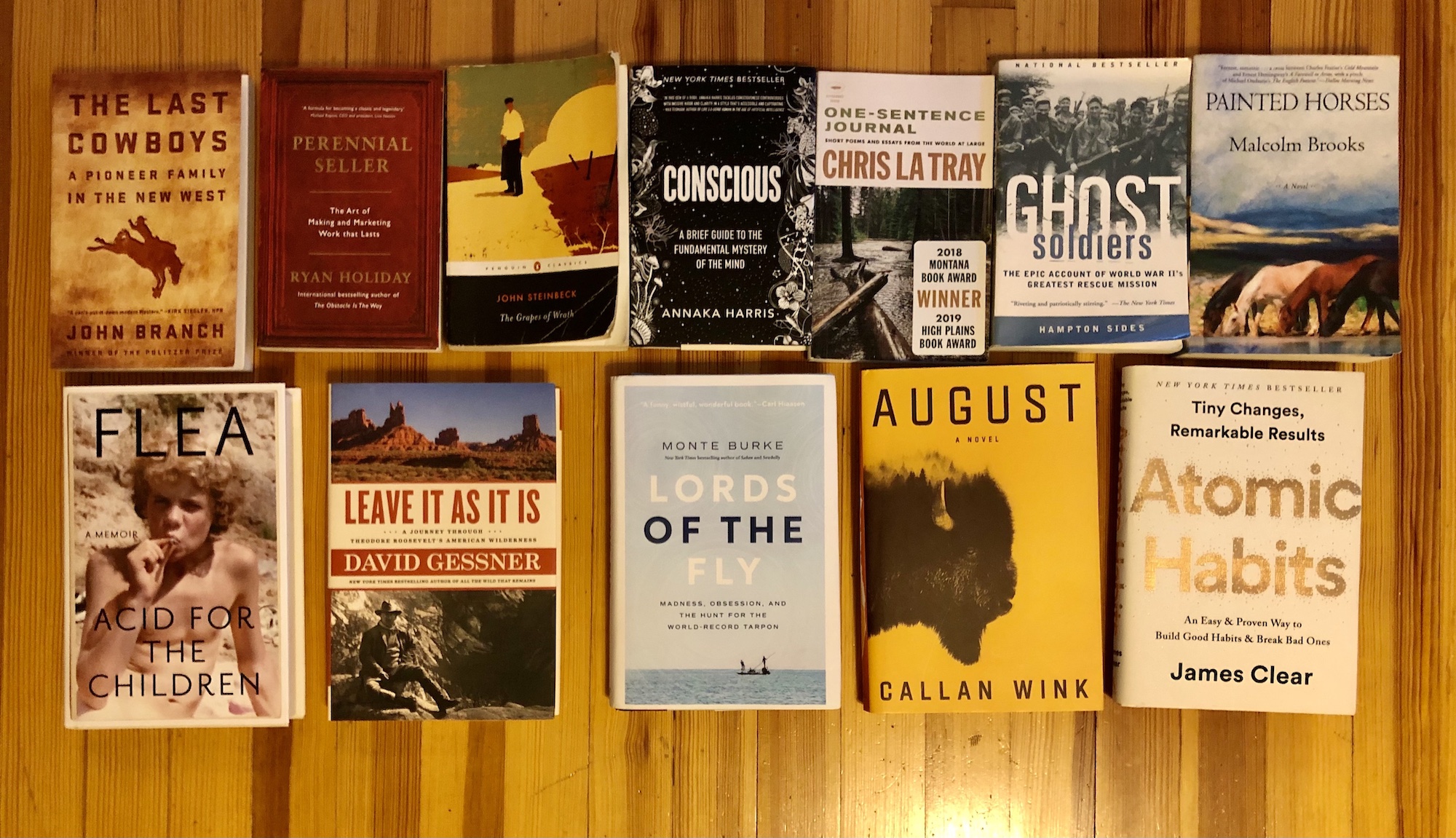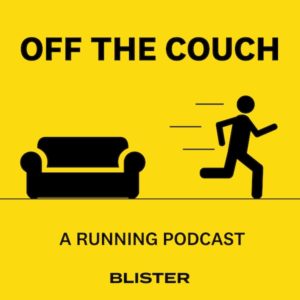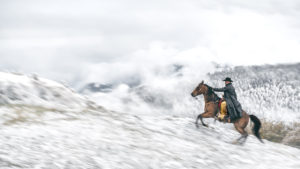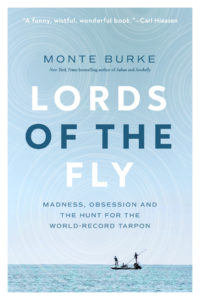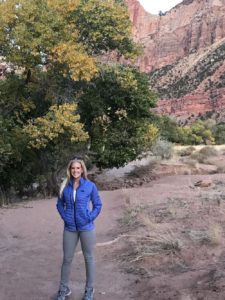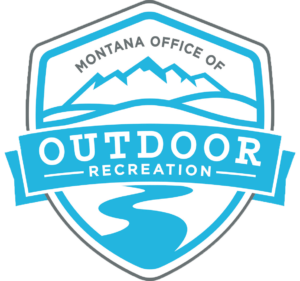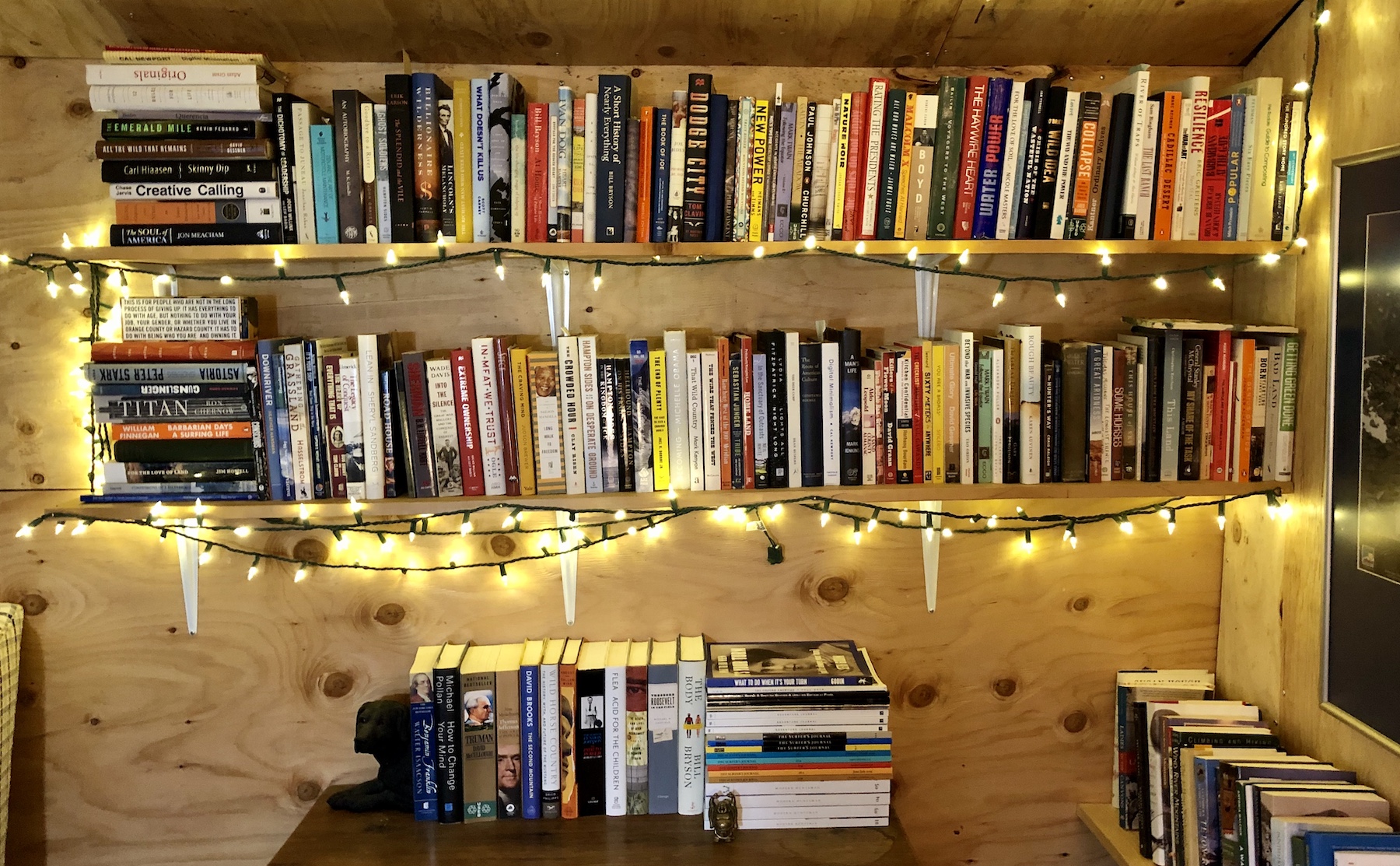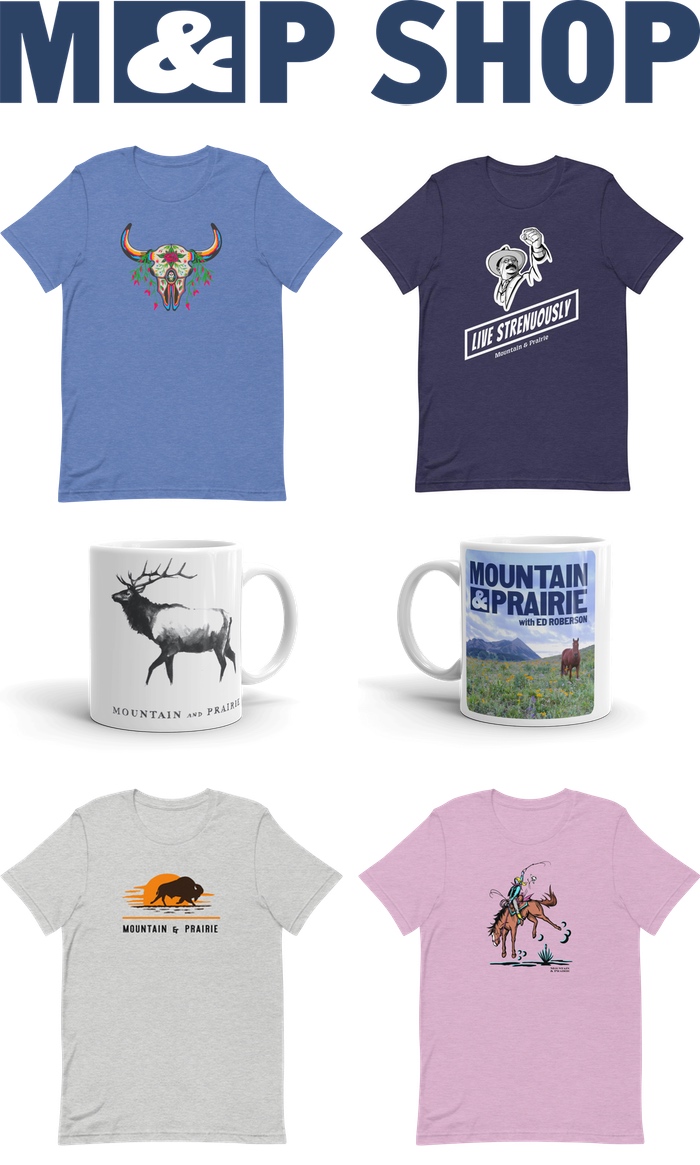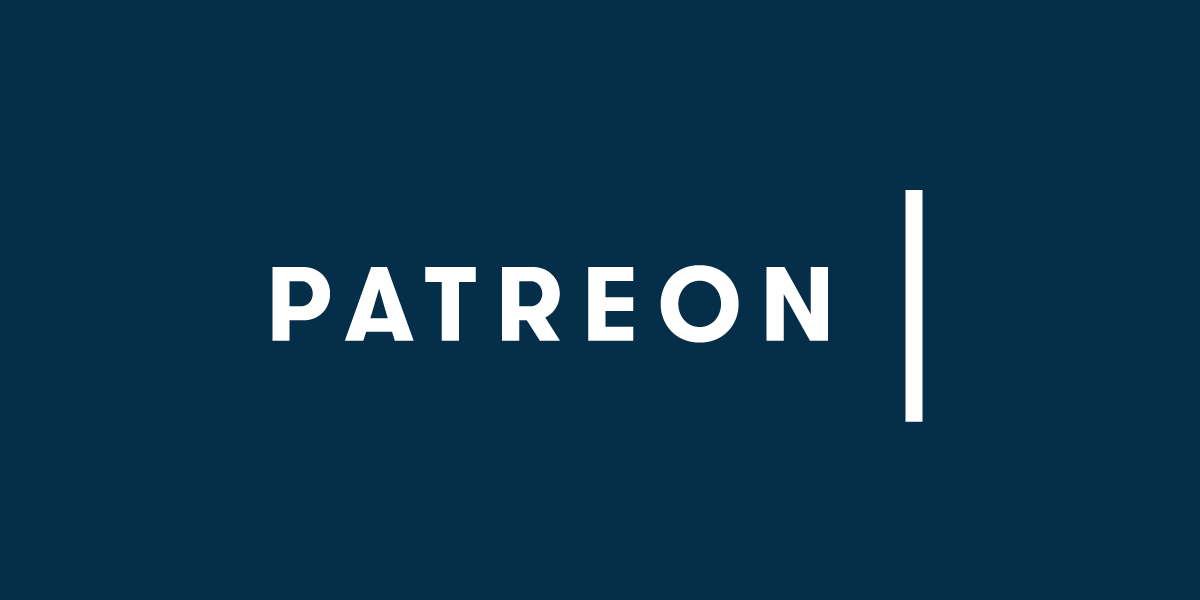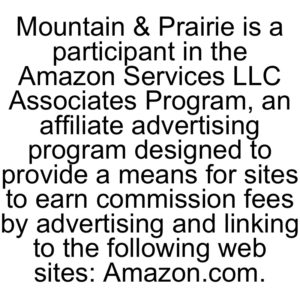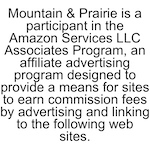In Conversation with Dr. Drew Lanham
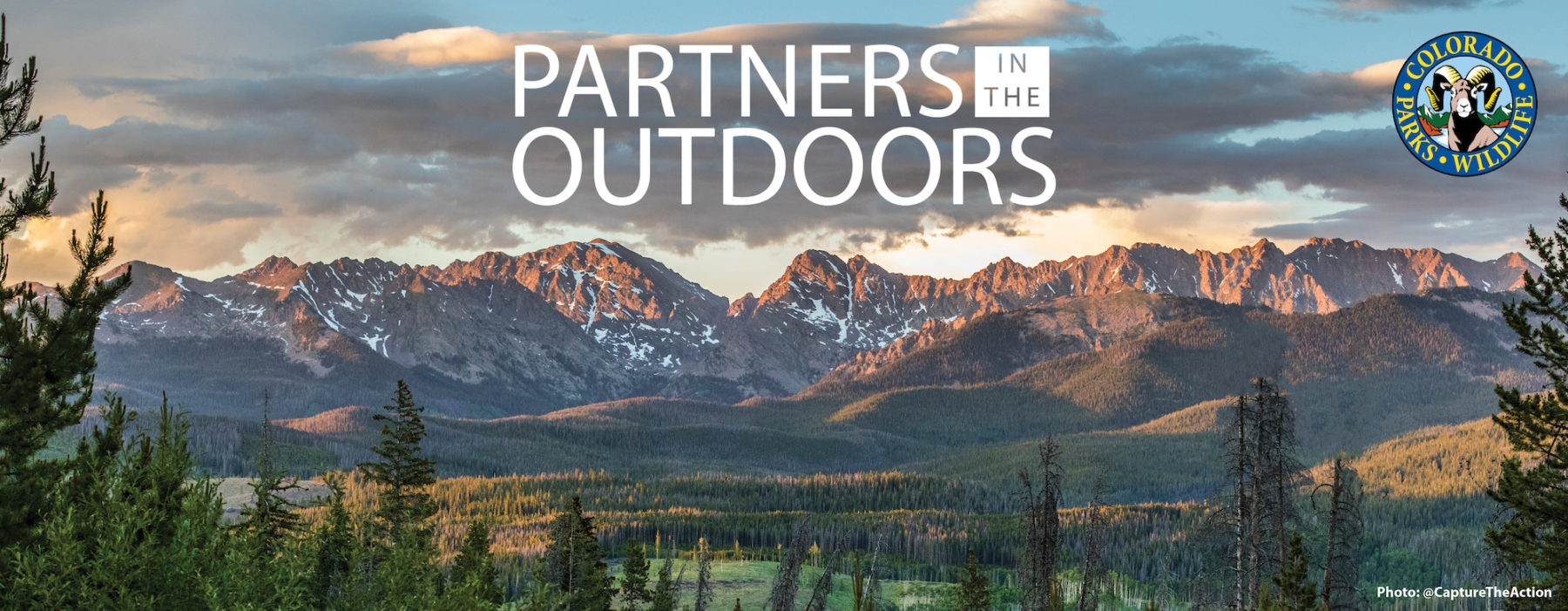
In late April, I had the wonderful opportunity to interview Dr. Drew Lanham— birder, naturalist, hunter-conservationist, professor, poet, writer, and all-around inspiring human. He’s also the author of two excellent books that I recommended in my March-April book recommendations email: The Home Place: Memoirs of a Colored Man’s Love Affair with Nature and the brand new Sparrow Envy: Field Guide to Birds and Lesser Beasts.
This interview was a keynote for Colorado Parks and Wildlife’s 2021 Partners in the Outdoors conference, and Dr. Lanham and I had a great discussion about everything from birds to family, from current social issues to frameworks for evaluating the past.
And here’s a “visual map” of our conversation that I thought was super-cool and unique.
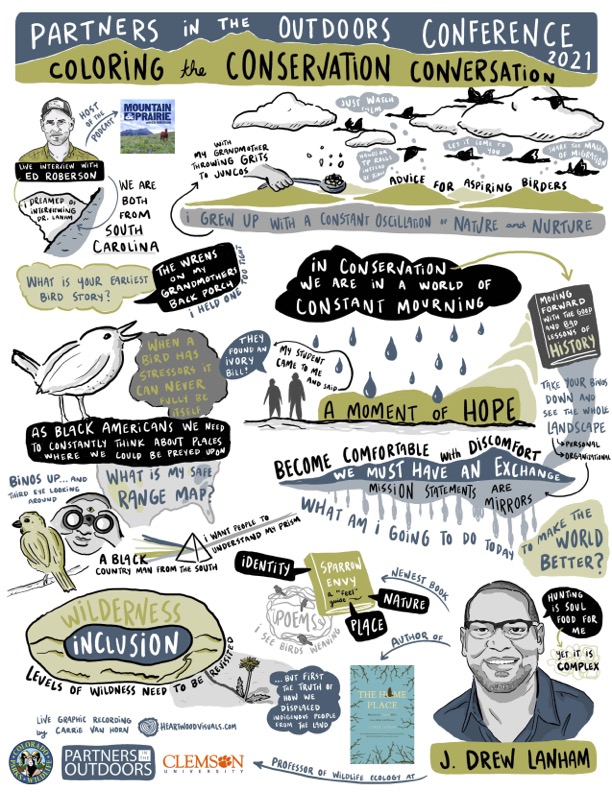
I hope you all enjoy the conversation as much as I did!
Dr. David Hewitt – The Science of Wildlife Conservation
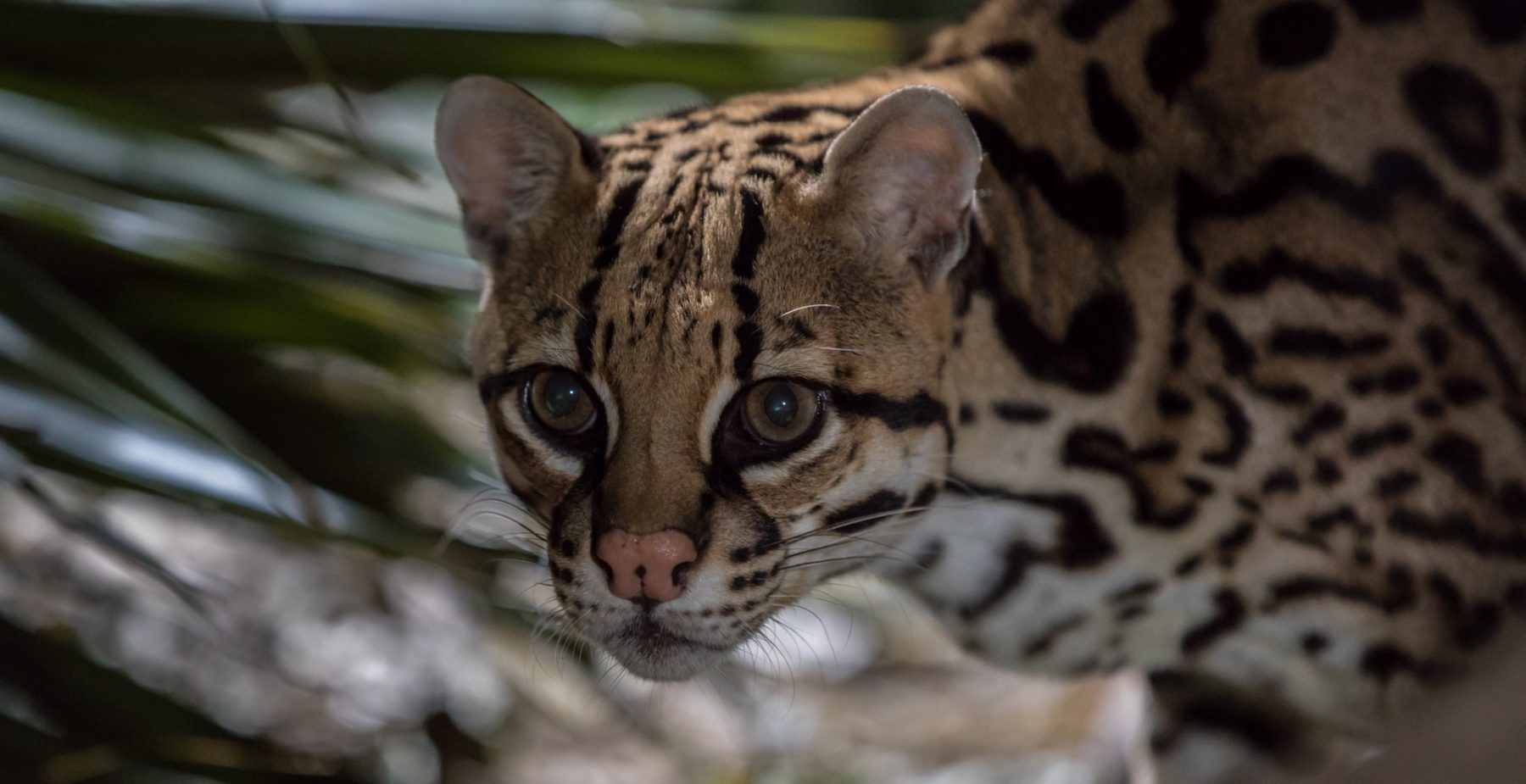
Dr. David Hewitt is the Executive Director of the Caesar Kleberg Wildlife Research Institute, an organization widely recognized as the leading wildlife research organization in Texas. The Institute is located on the campus of Texas A&M – Kingsville, and its mission is to provide science-based information for enhancing the conservation and management of Texas wildlife. Dave and his team at the Institute are focused on applied science– research that is useful, actionable, and tightly focused on helping land managers meet their goals.
Dave was born and raised in Colorado and followed in his grandfather’s footsteps to become a wildlife biologist. After earning his undergraduate degree from Colorado State, his education and research took him to many different corners of the United States, and in 1996 he landed at the Caesar Kleberg Wildlife Research Institute. For the past 25 years, Dave has been fully focused on the flora and fauna of Texas, and many of his projects have positive ripple effects on land management throughout the American West and beyond. Whether discussing the management of ocelot, restoration of native grasslands, or the history of the Institute, Dave’s enthusiasm for the natural world is palpable and inspiring.
Dave and I had a fun discussion about the Institute’s past, present, and future, as well as his fascinating career path. We started out discussing the Institute’s namesake, Caesar Kleberg, and why Caesar is known as the father of Texas wildlife conservation. We then discussed why the huge proportion of private land in Texas makes the state so unique from a land and wildlife management perspective. We also dug into several of the Institute’s success stories, including its work with ocelots and native grasses throughout the state. Then we chatted about Dave’s personal background– his impressive educational journey, his love of teaching, and his vision for the future of the Institute.
If you enjoy learning about wildlife, native plants, and the people who have devoted their lives to protecting them, then you’ll love this episode with Dave. There’s a ton of fascinating information in this conversation, so be sure to check out the episode notes for links to everything we discuss. Enjoy!
Ocelot photo by Ben Masters. Headshot courtesy of David Hewitt.
—
Download on Apple Podcasts
—
Download on Spotify
—
Download on Google Podcasts
—
Download on Overcast
—
This episode is brought to you in partnership with EXPLORE RANCHES
Explore Ranches was born out of a desire to share some of the most wild and scenic places in the world with others. We offer authentic outdoor experiences and access to charming ranch homes on some of the world’s least explored private lands. In return for enabling access to these natural treasures, we are making new connections between our guests and land owning partners. In the process, we are all contributing to a network of open space that not only benefits wildlife but the very food we eat, water we drink and air we breathe. Whether you are one of our guests, a ranch partner or one of our guides, at Explore Ranches we are all on an endless journey to find our place in the wild.
—
EPISODE NOTES
Topics Discussed:
- 5:00—Dave discusses the story of Caesar Kleberg.
- 14:00—Dave explains the differences between land management in Texas and states Colorado or Montana.
- 16:30—Dave explains the type of research that goes on at the Caesar Kleberg Wildlife Research Institute.
- 19:30—Dave discusses victories during his tenure with CKWRI.
- 22:30—Dave discusses building trust with private landowners in wildlife conservation.
- 24:45—Dave dives deeper into the CCWRI Ocelot Program.
- 32:00—Dave discusses the varied opinions regarding the Endangered Species Act.
- 37:45—Dave discusses the CKWRI Grasslands program.
- 47:00—Dave walks us through his career path.
- 53:30—Dave explains how he balances his research with his teaching.
- 57:00—Dave projects where he thinks the CKWRI is headed in the future.
- 1:00:30—Dave’s book recommendations.
- 1:03:00—Dave’s parting words of wisdom.
Information Referenced:
- Dr. David G. Hewitt
- Caesar Kleberg Wildlife Research Institute
- Caesar Kleberg
- Cuero, TX
- Corpus Christi, TX
- Robert Kleberg
- King Ranch
- Texas Fish and Oyster Commission
- Richard Kleberg
- Caesar Kleberg Foundation for Wildlife Conservation
- Jay Kleberg
- Ferruginous Pygmy Owl
- Chihuahuan Desert
- Ocelot
- Dr. Micheal E. Tewes
- Laguna Atascosa Wildlife Refuge
- Yturria Ranch
- Raymondville, TX
- East Foundation
- Dr. Neil Wilkins
- Endangered Species Act (ESA)
- Old world bluestems
- Permian Basin
- Panhandle of Texas
- Eagle Ford Oil Clay
- Forbs (botany)
- Crowley County, CO
- Greeley, CO
- Uvalde, TX
- Fallow Deer
- Ruffed Grouse
- Tio Kleberg
- Dr. Duane Leach
- Andrea Wulf
- Dan Flores
Enjoy this episode? Then you might like these too:
- Teal Blake – On Being Authentic & Original
- Duke Phillips III – A Vision for the New West
- Duke Phillips IV – Living with the Land
- James Decker – Inspired Leadership in the New West
- Sara Dant – A Deep Dive Into the History of the West
- Jay Kleberg – True Dedication to Conservation, Adventure & Texas
- Allison Ryan – Connecting People With Place
- Jesse Womack – Land Stewardship is in His Blood
- Gabe Vasquez – Advocate for Equity in the Outdoors
NEW WEST DISPATCH – Marci McLean & Cora Neumann on COVID’s Impact on Native Communities
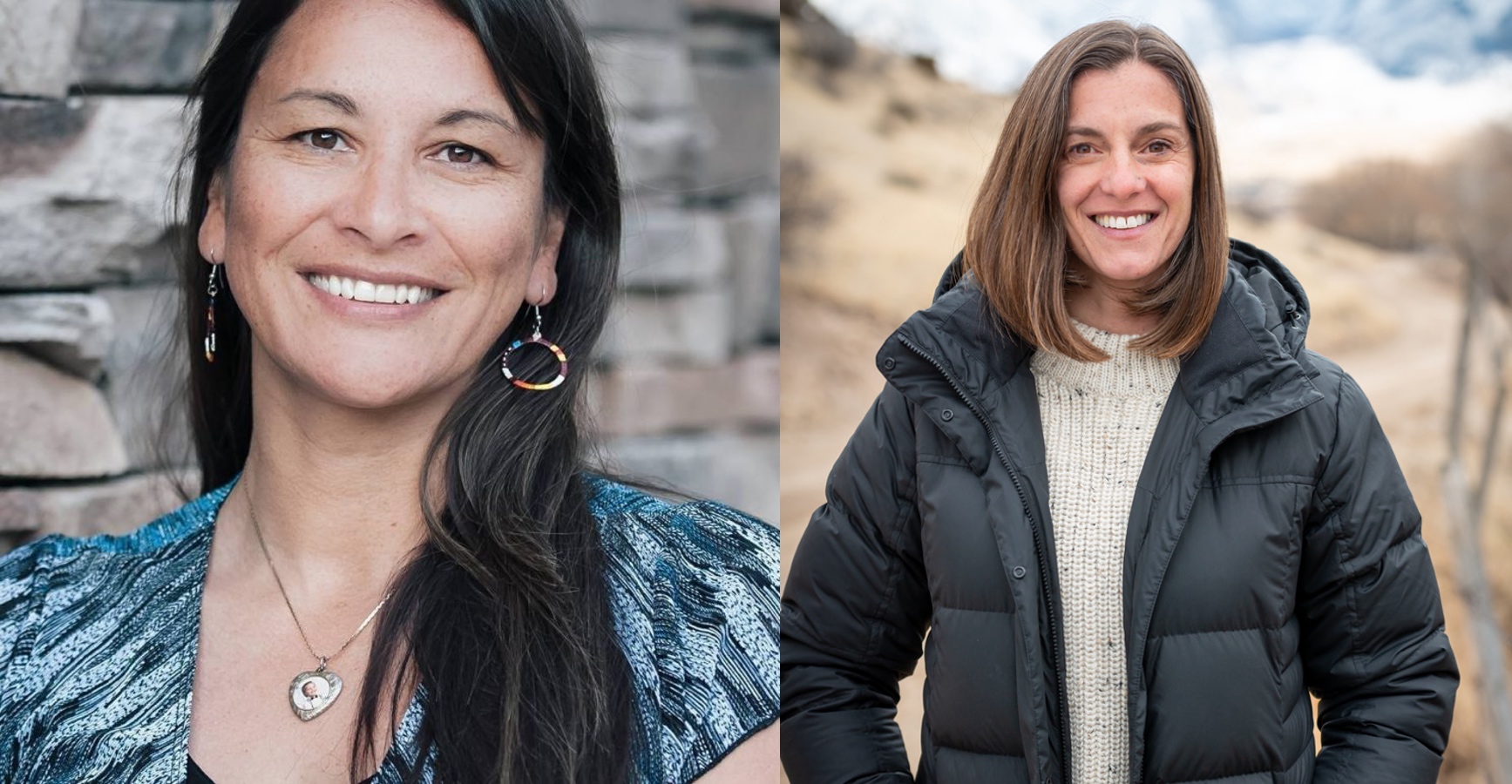
Marci McLean and Cora Neumann are joining me for another episode of my ongoing series called New West Dispatches. In each New West Dispatch, I break from the normal Mountain & Prairie format of discussing a guest’s personal experiences, influences, and life story, and instead we spend the hour diving deep into a specific, timely issue that is creating challenges in the American West. The goal of these episodes is to offer a clear-eyed examination of a pressing issue, then to highlight the people and ideas that are helping to solve these sometimes-overwhelming problems. These episodes are meant to educate and provide actionable information, while also offering hope and optimism in the face of challenges.
In today’s New West Dispatch, we’ll be discussing COVID’s impact on Native communities in Montana and throughout the American West. Marci and Cora are uniquely qualified to discuss this topic, as they have been on the front lines of Montana’s public health response to the devastating effects of COVID across tribal lands. Marci grew up on the Blackfeet Nation and currently serves as Executive Director of Montana Native Vote, an organization with the mission of building leaders in Montana’s Indian County. Cora Nuemann is a PhD-level public health expert and the founder of We Are Montana, an organization that supports public health leadership across rural and Native Montana. In early 2020, when it became clear that COVID was a true threat, Marci and Cora teamed up and took action, offering much-needed education, funding, and support to combat the virus in Native communities.
We had an enlightening and educational conversation, and I am so grateful to Marci and Cora for joining me to share their experiences and wisdom. We start out by discussing both Marci and Cora’s backgrounds, and how they decided to take action as the pandemic descended on Montana. We talk about the specific factors that made this pandemic so devastating to Native communities and why Native Americans suffered the highest death rates of any community in the United States. We discuss the Native response to the pandemic– what worked, what didn’t, and some specific success stories. And we also talk about vaccine rollout and how Marci and Cora see the next year playing out. Finally, they both offer up some excellent book recommendations on Native American history, culture, and current events.
The notes for this episode are even more robust than usual, so be sure to check them out for links to articles, resources, and further information on everything we cover. Thanks again to Marci and Cora for their hard work and focus on this important issue. I hope you enjoy and learn as much as I did!
Photos courtesy of Marci and Cora.
Download on Apple Podcasts
—
Download on Spotify
—
Download on Google Podcasts
—
Download on Overcast
—
EPISODE NOTES
Topics Discussed:
- 4:00 – Introductions
- 13: 15 – When did Cora and Marci know when COVID was going to be a big impact on their communities
- 20:45 – What worked in communicating public health in Cora and Marci’s community
- 24:00 – Reflections on how Indigenous communities responded to information coming from the Trump administration regarding COVID
- 27:15 – Why Indigenous communities are so vulnerable in pandemic scenarios like COVID
- 33:45 – Cora and Marci discuss the extensive work they have done in and around Indigenous communities in Montana regarding public health and COVID.
- 40:30 – The vaccine rollout progress in and around Indigenous Montana communities
- 42:00 – How do we get to the new normal
- 43:30 – How can people help in these efforts
- 47:45 – Book recommendations
- 51:15 – Parting words of wisdom
Information Referenced:
- COVID impacts on Indigenous Americans
- COVID impacts on Indigenous people in Montana
- Coverage of Cora and Marci’s work
- The 19th feature: As Montana’s tribal nations are threatened by COVID, women health leaders have stepped up
- Great Falls Tribune: Montana COVID-19 relief: Organizations help tribal communities
- Mansfield Center panel: Montana tribal leaders discuss fighting the pandemic | Local News | missoulian.com
- Intercept feature: Montana Tribes Hard-Hit by Covid-19 Brace for Republican Takeover Miranda Green
- Indian Country Today: Montana responds to local advocacy groups and adds American Indians in Phase 1B vaccine rollout
- Notes From The Field – COVID Local Blog – supporting Tribal leaders (this is work with the former White House pandemic team – who are now back in the White House!)
- New nonprofit aimed at tackling COVID-19 in Native, rural communities
- Social Media
- Vaccine rollout information:
- DPHHS report March 16th: Native Americans make up about 7% of Montana’s population, but represent 18% of reported COVID-19 related deaths in the state. COVID-19 was the 3rd leading cause of death in 2020.
- Blackfeet Nation is currently reporting 95% of eligible enrolled members are vaccinated—7,600 of 9,778
- More than 30% of the Crow Tribe’s eligible population had received at least one vaccine as of March 18.
- In Great Falls as of March 12, more than 75% of Indian Family Health Clinic (IFHC, an IHS-funded urban Indian organization) eligible patients had received their first dose of COVID-19 vaccine and 60% were fully immunized.
- Each week, the Centers for Disease Control and Prevention allocates COVID-19 vaccines to IHS, which then distributes them across their areas. IHS’ Billings-area location, which includes eleven Montana facilities, receives, on average, 1,200 Moderna doses, 1,170 Pfizer doses and 100 Johnson & Johnson doses each week. In the first eight weeks of distribution, every IHS site in Montana had a 100% vaccination rate, meaning no shots were wasted. So far, the IHS facilities across Montana have administered at least one dose to 29% of the eligible population, and 21% of the eligible IHS population is fully immunized.
- Blackfeet (Niitsitapi or Siksikaitsitapi)
- Medicaid expansion
- Two-spirit
- Montana Native Vote
- We Are Montana
- Indigenous Movements Interchange
- Elizabeth Cameron
- Crow Nation (Apsáalooke)
- Ember Singer
- CSKT Tribal Health
- Incident Command Center
- Food Sovereignty
- Roxanne Dunbar-Ortiz
- Percy Bullchild, Woody Kipp
- Sherman Alexie
- Joy Harjo
- Louise Erdrich
- David Treuer
- Chris La Tray
- One-Sentence Journal
- Becoming Little Shell (upcoming)
- Nick Estes
- Robin Wall Kimmerer
- Ruth Lister
- Jesmyn Ward
- Geoffrey Rose
- Paul Offit
Enjoy this episode? Then you might like these too:
- NEW WEST DISPATCH: Matt Skoglund – Ranching in the Age of COVID
- Juanita Vero, Part 2 – A Deep Desire to Serve
- Becky Edwards – Amplifying the Power of Women in the West
- Chris La Tray – Rediscovering His Past, Writing His Future
- Ivan McClellan – A New Look at the Old West
- Gabe Vasquez – Advocate for Equity in the Outdoors
- Len Necefer – Indigenous Advocate
- Carlos Fernandez – The Power of Partnerships
Brendan Leonard, Part 2 – On Running, Creating, and Other Irrational Passions
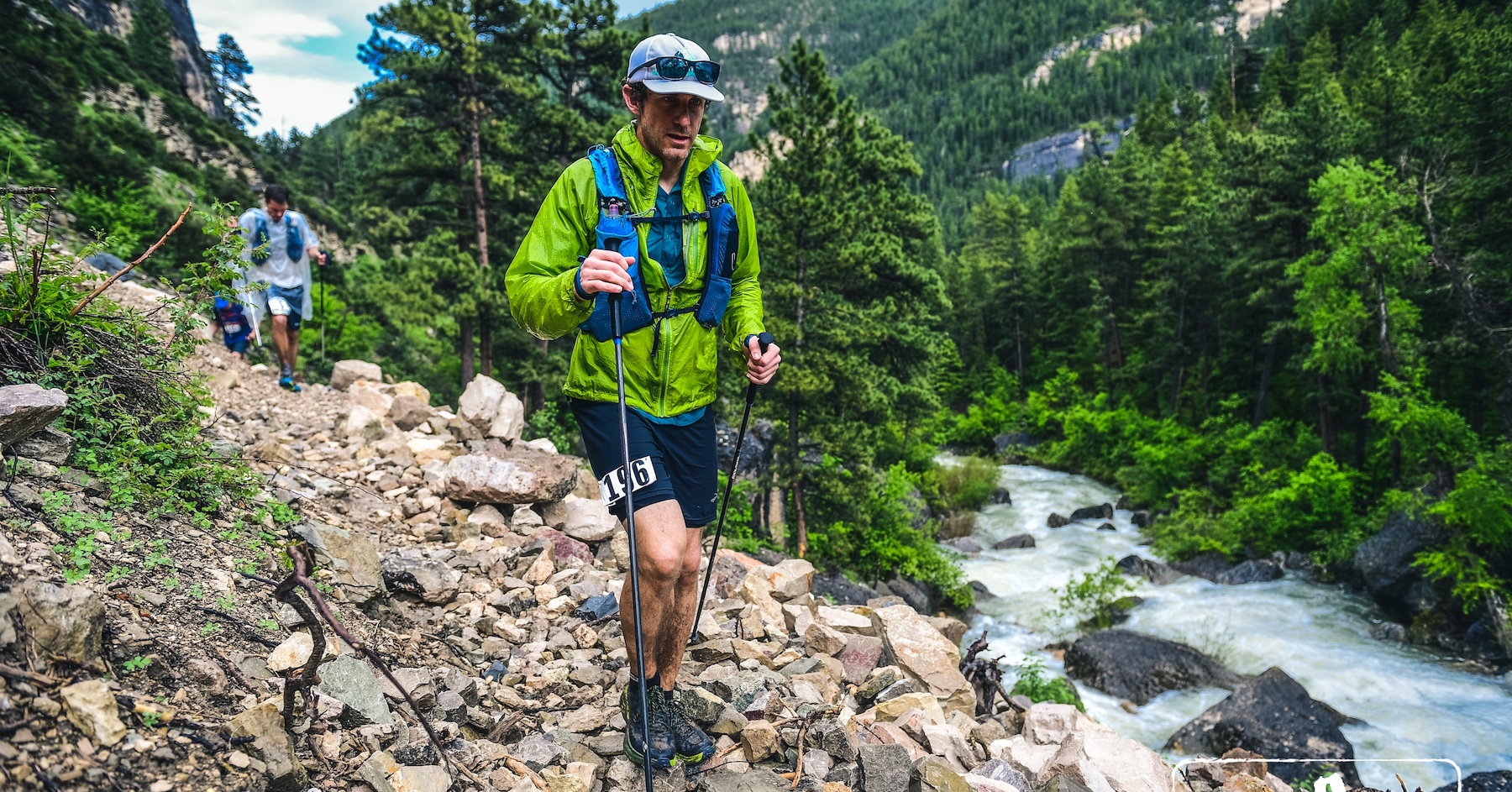
Brendan Leonard is a prolific writer and artist who is best known as the creator of Semi-Rad.com. He’s also the author of a brand new book titled I Hate Running and You Can Too: How to Get Started, Keep Going, and Make Sense of an Irrational Passion. The book offers motivation and witty insights into the sometimes-crazy pastime of running. And Brendan knows a thing or two about running irrational distances– he’s completed multiple 100-mile ultramarathons, ran 52 marathons in 52 weeks, directed the film How to Run 100 Miles, and co-hosts the Off The Couch Podcast, which features interviews with runners of all stripes.
Through his books, filmmaking, and writing on Semi-Rad.com, Brendan offers a unique perspective into the world of outdoor recreation and adventure. Rather than focusing on the mind-blowing feats of super-elite athletes, Brendan’s work highlights the passion and determination of regular people who enjoy pushing themselves hard in the outdoors. Brendan has also perfected the ability to draw larger life lessons from these outdoor adventures– lessons that can be applied to creative endeavors of any kind. You don’t have to be a runner or mountain athlete to glean actionable wisdom from Brendan’s work, and I personally credit Brendan’s influence with helping me to grow and evolve Mountain & Prairie.
Brendan and I connected a few days before the release of his new book and had a fun and wide-ranging conversation about everything from running to reading, from Ted Lasso to Matthew McConaughey. We started out by discussing his new book I Hate Running and You Can Too— how the book came to be, the process of writing it, and how its lessons can be applied to writing or other creative pursuits. We then discussed some of his own running achievements, including running 52 marathons over the course of 52 weeks and the life lessons he learned from that year-long commitment. We talked about the fallacy of looking for hacks in running or life, some of Brendan’s creative heroes, the importance of vulnerability, the process of finding his creative voice, recent good books, and much more.
If you’re the type of person who likes to push yourself creatively or physically, this episode is full of wisdom and insight that you can put to use immediately. I’d also encourage you to check out Brendan’s new book, and really all of his work– check out the links in the episode notes or just head to Semi-Rad.com. Huge thanks to Brendan, and I hope you enjoy.
Header image by Mile90 Photography; photo of Brendan and Rowlf courtesy of Brendan.
Download on Apple Podcasts
—
Download on Spotify
—
Download on Google Podcasts
—
Download on Overcast
—
EPISODE NOTES
Topics Discussed:
- 6:00 – Brendan discusses his latest book, I Hate Running and You Can Too
- 10:00 – Brendan discusses his progression as a runner
- 18:15 – Brendan talks about his experience running 52 marathons in 52 weeks
- 27:00 – The lessons Brendan learned from 52 marathon challenge
- 33:00 – Brendan explains how becoming a runner influenced other areas of his life
- 36:30 – Brendan discusses his claim that “there are no hacks” in running (or life)
- 42:00 – Who Brendan looks up to
- 50:30 – Brendan explores the process of finding his voice
- 55:30 – Brendan discusses vulnerability and the process of sharing his own experiences in his writing
- 1:02:30 – Brendan’s book recommendations
- 1:07:30 – Brendan’s parting words of wisdom
Information Referenced:
- Brendan Leonard
- On Instagram
- I Hate Running and You Can Too
- Sixty Meters to Anywhere
- The Camping Life (co-authored by Forrest Woodward)
- How to Run 100 Miles
- Off the Couch Podcast (co-hosted by Johnathan Ellsworth)
- Thanks for 10 years OR Finding A Voice
- Brendan’s first M&P episode
- Austin Kleon
- Run Rabbit Run
- Colfax Marathon
- Missoula Marathon
- New York City Marathon
- Strava
- Amelia Boone
- Ronny Coleman
- James Lucas
- The Voice
- American Idol
- Tim Ferris
- Aaron Draplin
- Adam J. Kurtz
- Judy Blunt
- Melissa Maerz
- Jay Rubin, Haruki Murakami
- Craig Mod
- Kevin Barry
- Andrew Forbes
- Road House
- Ted Lasso
- Do the Right Thing
- Heat
Enjoy this episode? Then you might like these too:
- Mike Foote – Perfection Is In the Process
- Anna Brones – Committed to Creativity
- Steve Casimiro – Voice of Adventure
- Chandra Brown – Fostering Creativity Through River Adventures
- Monte Burke – Exploring Obsession
- William deBuys – Sage of the Southwest
- Chris Burkard – The Art of Suffering
- Chris La Tray – Rediscovering His Past, Writing His Future
- Morgan Irons – Finding Her Muse
- Heather Hansman – Demystifying Water in the West
Virtual Event: Rivers, Writing, & Creativity with Chandra Brown
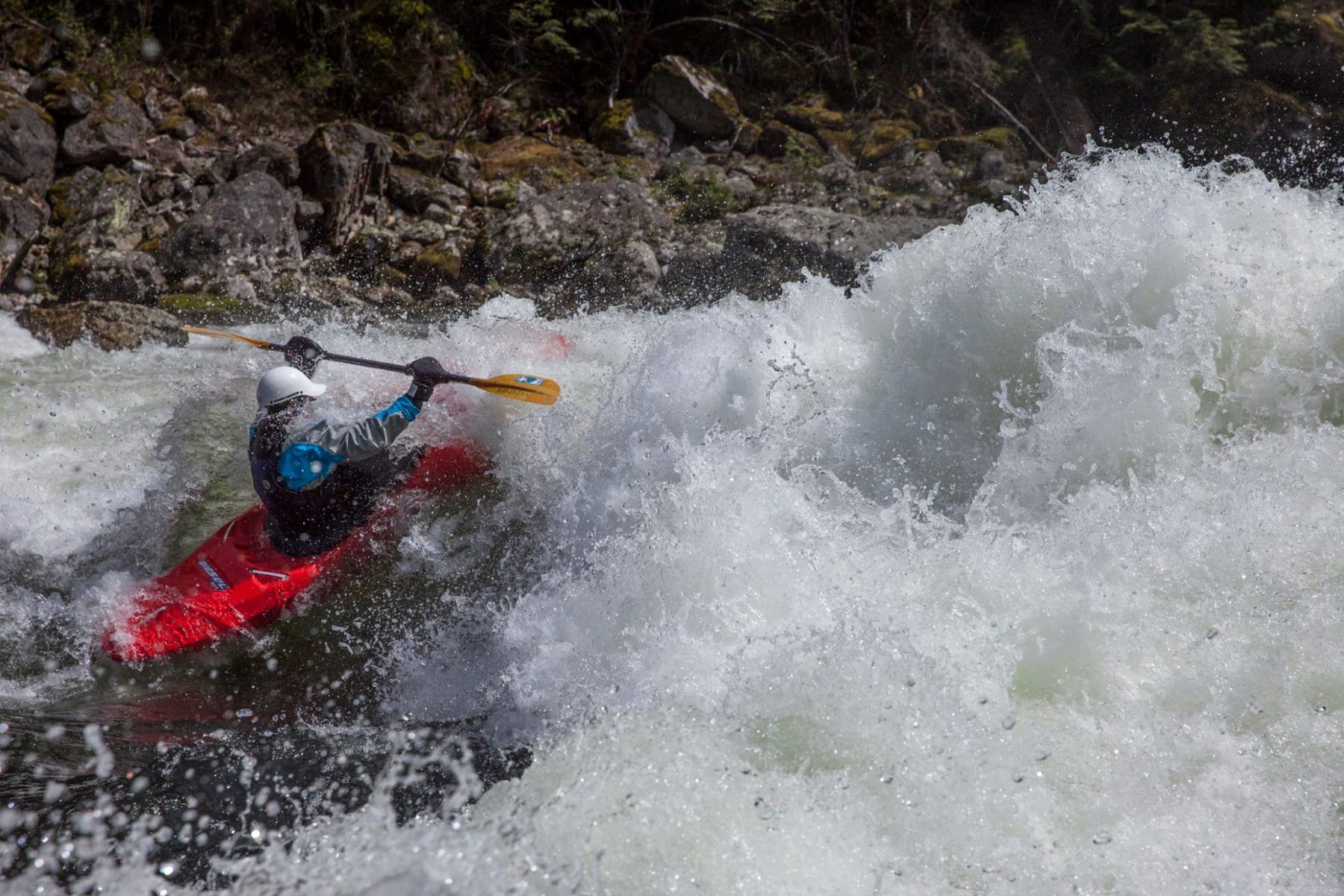
I hope you can join me this Wednesday evening, March 24, 2021 at 7:00 PM MDT for a video chat with Chandra Brown of the Freeflow Institute. Since Chandra and I chatted on the podcast back in February of 2019, the Freeflow Institute has continued to grow and evolve in exciting ways– Chandra and her team launched the Freeflow Foundation, recently started the Freeflow Podcast, are offering a fantastic lineup of courses for Summer 2021, and much more!
For all of you new listeners, the Freeflow Institute is a Montana-based organization that builds opportunities for creativity, space, and access to wild places for writers, artists, and leaders of all backgrounds. Freeflow eliminates the barrier between you, your ideas, and your environment by bringing emerging and established writers, leaders, artists, and communicators together into wild landscapes. The line-up of Freeflow instructors includes many guests of Mountain & Prairie, including Alexis Bonogofsky, Hal Herring, Bill deBuys, Brendan Leonard, Chris La Tray, and Heather Hansman.
Here’s a great Freeflow video featuring Chandra and the great Hal Herring that offers an excellent overview of the organization:
I’m very excited to catch up with Chandra, as we’ve got lots to discuss. We’ll obviously chat about all the Freeflow-related news, including their scholarship program, and then delve into some of the lessons she’s learned from working and adventuring alongside so many wonderful creative minds. We’ll also chat about books, creative inspiration, COVID’s effects on Freeflow’s work, and hopefully take some questions from the y’all.
This event is exclusively for Patreon Supporters, so Patreon supporters can access the Zoom registration link on the Mountain & Prairie Patreon Page.
For those of you interested in becoming a Patreon supporter, click the button below to check out all the options, which start at as little as $2 per month.
As usual, I will be recording this event and posting it for those who support at the Intense TR ($5) or more level– so if you can’t tune in live, keep an eye out here for the recording.
Thanks to Chandra for taking the time to join us. I’ll look forward to seeing y’all on Wednesday evening.
Thank you for your continued support.
Mitsu Iwasaki – Adventure, Advocacy, & Alpinism
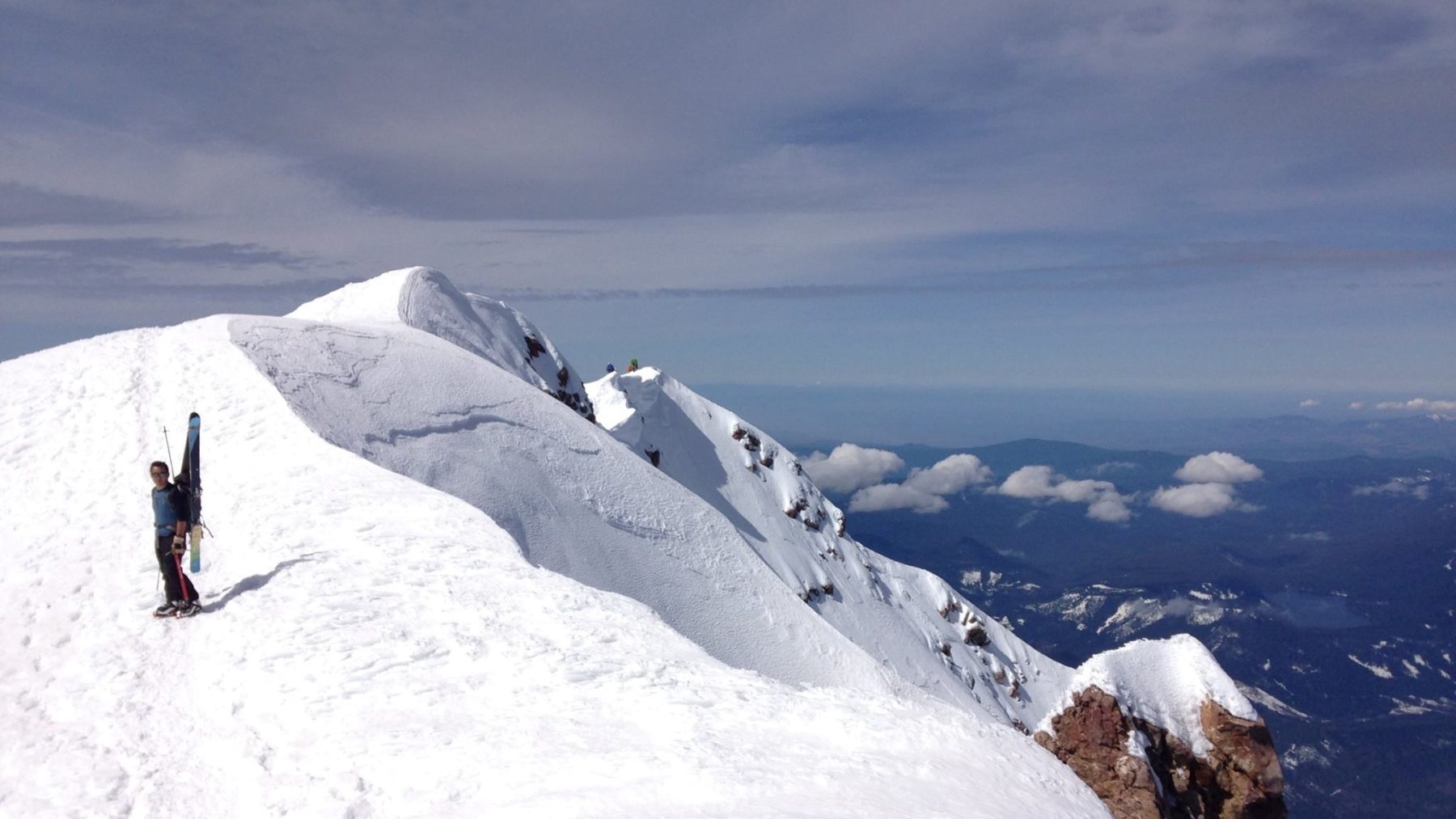
Mitsu Iwasaki is the CEO of the American Alpine Club (AAC), a historic and storied organization whose mission is to “share and support our passion for climbing and respect for the places we climb.” Founded in 1902, the AAC began as a social club for east coast elites who shared a passion for climbing, adventure, and conservation. But over the past 119 years, the AAC has evolved into an open and equitable organization, which provides “knowledge and inspiration, conservation and advocacy, and logistical support for the climbing community.” Mitsu took the helm of the AAC in the summer of 2020, ushering in a new phase for the Club’s growth and focus.
Mitsu was born in Japan but immigrated to Seattle with his family when he was six years old. In high school, at the urging of his father, Mitsu began spending his summers working on commercial fishing boats in Alaska, experiences that he credits as the genesis of his lifelong pursuit of adventure. He attended college in Washington State at the foot of the Cascade Mountains, then spent years as an Outward Bound instructor– successfully merging his love of climbing, skiing, and adventure with his career. A graduate degree in nonprofit management propelled Mitsu into leadership positions with several outdoor recreation organizations, which led him to his new role at the AAC.
For anyone interested in melding personal passions with lofty career aspirations, Mitsu’s life story will be both inspiring and instructional. We had a fascinating conservation covering everything from his days as a climber living out of his van to his current focus of creating more equitable access in the climbing community. We started by discussing the AAC– its history, goals, and evolution over nearly 120 years. We then talked about Mitsu’s personal background– moving to the US as a child, adjusting to life in the US while maintaining close connections to his Japanese heritage, lessons learned from working in commercial fishing, and experiences as an outdoor educator. We talk about his vision for the AAC, and he explains AAC’s exciting new equity initiative known as Climb United. We also discuss his mentors, favorite books, the best advice he’s ever received, and Mitsu offers some useful parting words of wisdom.
Be sure to check the episode note for a complete list of topics and links to everything we covered. Hope you enjoy.
Images courtesy of Mitsu Iwasaki
Download on Apple Podcasts
—
Download on Spotify
—
Download on Google Podcasts
—
Download on Overcast
—
EPISODE NOTES
Topics Discussed:
- 3:40 – Mitsu explains the history of American Alpine Club (AAC)
- 6:40 – Mitsu discusses programs and projects of AAC
- 9:25 – Mitsu discusses his role as CEO of AAC
- 12:10 – Mitsu explains some of his goals to adapt the AAC
- 14:10 – Mitsu discusses AAC’s work in the arena of climate change
- 19:10 –Mitsu discusses his early life and how he became interested in the outdoors, including his time spent on an Alaskan fishing boat
- 28:10 – Mitsu discusses his prior career with Outward Bound and his thoughts on experiential education
- 33:40 – Mitsu discusses his transition from outdoor enthusiast to executive
- 37:25 – Mitsu talks about his mentor, Brendan Leonard
- 41:25 – Mitsu talks about the AAC program, Climb United, and equity in the sport of climbing
- 48:55 – Mitsu’s book recommendations
- 52:25 – The best piece of advice Mitsu ever received
- 53:40 – Mitsu’s parting advice
Information Referenced:
- American Alpine Club
- International Climbing and Mountaineering Federation (UIAA)
- 10th Mountain Division
- 1939 attempt on K2
- 1963 first American expedition on Mt. Everest
- Glenn E. Porzak
- AAC Library
- Phil Powers
- Kamakura
- Shogun
- Bellevue, WA
- Anchorage, AK
- Naknek, AK
- Bristol Bay
- Chignik, AK
- Sebastian Junger
- Outward Bound
- National Outdoor Leadership School (NOLS)
- Brady Robinson
- Big City Mountaineers
- Brendan Leonard
- Climb United
- Leave No Trace (LNT)
- Marc Reisner
- Wallace Stegner
- Nina McConigley
Enjoy this episode? Then you might like these too:
- Mike Foote – Perfection Is In the Process
- Gabe Vasquez – Advocate for Equity in the Outdoors
- Jessica Wahl Turner – Outdoor Recreation & Rural Economies
- Chris Burkard – The Art of Suffering
- Kyle Richardson – Mountains & Music
- Rachel VandeVoort – Harnessing the Power of Outdoor Recreation
- Hal Herring – A Man of Words & Wild Places
- Juanita Vero, Part 2 – A Deep Desire to Serve
Jason Gardner – A Life of Purpose & Service
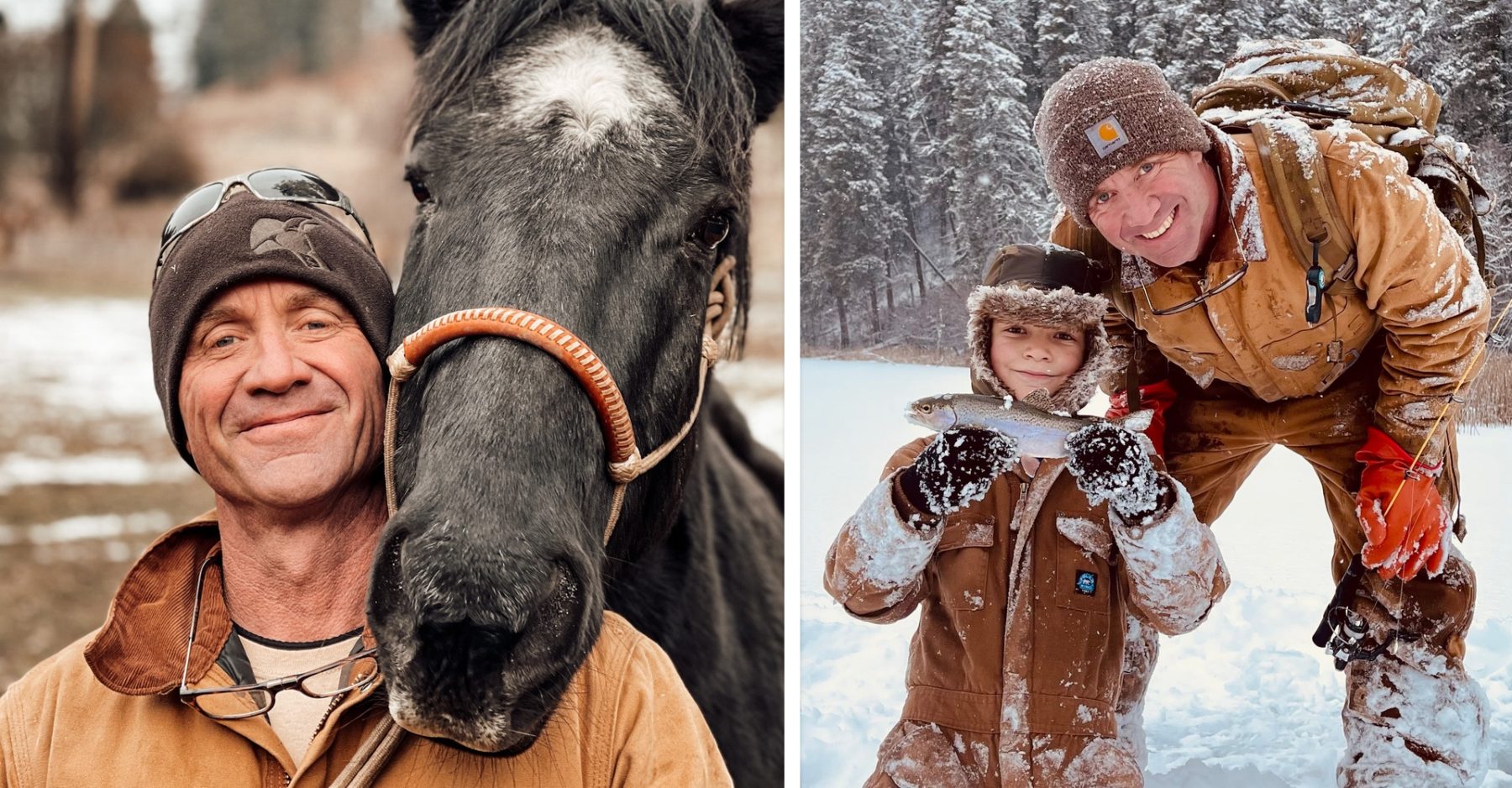
Jason Gardner is a father, homesteader, leadership instructor, and regenerative agriculture devotee who lives with his family on a remote property in the mountains of northeastern Washington State. Jason is also a retired Navy SEAL Master Chief who spent nearly thirty years in the SEAL teams and is a recipient of the Silver Star, two Bronze Stars, a Purple Heart, and numerous other awards. As you’ll hear in our conversation, Jason applies the lessons learned from his years of service toward building a meaningful life for his family in the wilds of Washington– a life lived with purpose and intention, built on a deep respect for the land.
If Jason sounds familiar, it’s because he’s the husband to Iris Gardner, who was a guest on the podcast just a few weeks ago. Given all of the wisdom that Iris shared regarding parenting and intentional living, and how fondly she spoke of Jason as a father and husband, I thought it would be fun to have Jason join me for a conversation. It was fascinating to hear Jason discuss many of the same topics that Iris and I covered, as he provided a complementary perspective on subjects including parenting, marriage, and thriving as a family in such a remote, wild region of the West.
This was a fantastic conversation, and I can’t thank Jason enough for taking the time to share his wisdom with me. We talked a lot about his military service– from his decision as a high-schooler to join the SEALs to his long and diverse career as a SEAL leader. We also discuss his life-long love of wild, mountainous places, and why he and Iris have chosen to raise their family in northeastern Washington. We talked about how to find purpose in work, no matter what your chosen career. We discuss the idea of having a warrior’s mentality and how he applies that idea to parenting and his current career as a leadership consultant. Jason explains the dichotomy of being an elite special forces operator and gentle father and husband. And we also talk about regenerative agriculture, the many life lessons he’s learned from training horses, influential music, his favorite books, the best advice he’s ever received, and much more.
There are so many insights and resources packed into this episode, so don’t forget to reference the episode notes for a full list of topics and links to everything we discussed. And if you’d like more insights into Jason and Iris’s life in Washington, you can check out their Youtube channel, which I’ve linked to in the notes. Thanks again to Jason, and I hope you enjoy.
Images courtesy of Jason Gardner
Download on Apple Podcasts
—
Download on Spotify
—
Download on Google Podcasts
—
Download on Overcast
—
EPISODE NOTES
Topics Discussed:
- 3:50 – Where Jason grew up
- 5:50 – How Jason developed a love of wild places
- 6:10 – When Jason first started considering military service and the SEALS
- 10:05 – How music helped frame Jason’s mindset
- 12:50 – Jason explores the dichotomy of his military and personal life
- 17:50 – What makes Jason so good at his job
- 19:20 – How Jason knew it was time to retire
- 23:20 – Jason explores the intentionality that enabled he and Iris to live the life they do
- 24:35 – How Jason’s approach to parenting has changed since retiring from the SEALS
- 28:20 – How did Jason come up with the points of To My Daughter
- 32:20 – What being a warrior means to Jason
- 34:35 – Jason explores how marriage works between two strong-willed individuals
- 37:50 – Jason discusses his recent work with horses and its impact on himself
- 43:50 – Jason’s advice on finding purpose, told through the lens of sniper training and “the stalk”
- 52:05 – Jason discusses his current role as a leadership coach
- 56:35 – Jason discusses books that have been important to him
- 58:05 – Jason discusses regenerative agriculture
- 1:01:05 – What Jason does for fun
- 1:02:50 – The best piece of advice Jason ever received
- 1:06:20 – Jason’s parting words of wisdom
Information Referenced:
- Jason Gardner on Instagram
- Jason’s motivational battle speech
- Iris Gardner
- Echelon Front
- Marin Corps Air Station El Toro
- San Clemente
- Camp Pendleton
- Okinawa (Kadena Air Base)
- Navy SEALS
- Marine Corps
- Hardcore (punk)
- Punk Rock
- Metallica
- Dead Kennedys
- Cro-Mags
- Minor Threat
- Uniform Choice
- Ill Repute
- Stalag 13
- Speed Metal
- Danheim
- Faun
- Wardruna
- Jocko Willink and Leif Babin
- Slayer
- Chris LeDoux
- To My Daughter
- Jocko Willink (podcast)
- Jordan Peterson
- Marcus Aurelius
- Larry McMurtry
- Akiva Silver
- Gabe Brown
- Joel Salatin
- The Daily Stoic
- Stoicism
- Jim Howell
- Dungeons and Dragons
- Jocko, “Good”
- Sisyphus
Enjoy this episode? Then you might like these as well:
- Iris Gardner – Living with Intention
- Chris Douglas – An Unexpected Artistic Journey
- Chris Burkard – The Art of Suffering
- George Hodgin – Mission-Driven Entrepreneur
- Daniela Ibarra-Howell – Healing the Land Holistically
- Kate Kavanaugh – Regeneration & Restoration
- Matt Skoglund – Adventures in Bison Ranching
- Hampton Sides – Live at the Aspen Institute
Kelsey Johnson – Chasing Her Artistic Ambitions
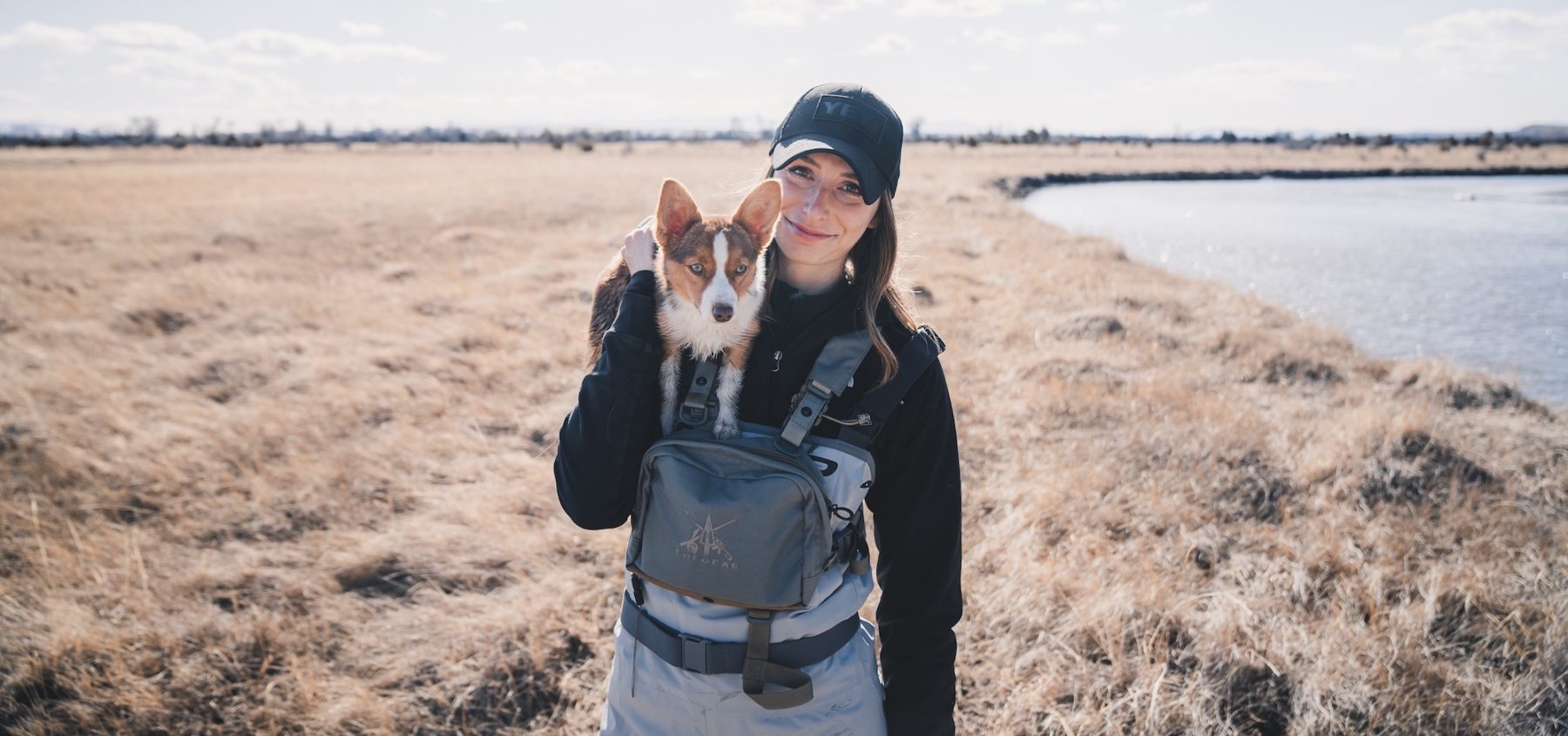
Kelsey Johnson is a Bozeman-based artist whose work highlights the epic wildlife, people, and landscapes of the American West. Using graphite pencils and oil paints, Kelsey creates stunning, life-like artwork– works that you would assume were created by a full-time artist with decades of experience. But in reality, Kelsey is new to professional art– she balances her artistic endeavors with a full-time job, and she actually started her art business only a few years ago, back in 2018. While Kelsey’s artistic career will undoubtedly continue to grow and flourish in the coming years, I am inspired by the commitment and work ethic she exhibits on a daily basis to turn her creative passions into a self-sustaining business.
Growing up in Pennsylvania, Kelsey was always artistic, but she put art aside and earned her undergraduate degree in agricultural business and agronomy. After graduation, she began a career with a large corporation where she sold corn and soybean seeds across the United States. While the job was safe and steady with plenty of upward mobility, she couldn’t shake the feeling that she was not completely fulfilled by her work. So, as you’ll hear her describe, a series of events came together that prompted her to pack up and move to Montana, where she rededicated herself to her artistic inclinations.
I greatly admire Kelsey and the way she has created a life and career here in the West. I also feel that she serves as a perfect example of how to balance professional, practical obligations with the pursuit of artistic goals. If you’ve got creative ambitions but struggle to fit them in between the other demands of life, you’ll find Kelsey’s story inspirational. We had a wide-ranging conversation, discussing everything from her childhood on the east coast to her eventual move to Montana. We talked about her evolution as an artist, some of her artistic breakthroughs, and her creative influences. She talks a lot about juggling professional and artistic commitments, and she also offers up some excellent book, music, and film recommendations.
And as you’ll hear in the episode, Kelsey and I will be doing a giveaway of a print of her newest painting, titled “Land of the Desert Poppy.” If you want to enter to win, follow me on Instagram and look for a post about the giveaway later this week, the week of February 22, 2021.
Thanks so much to Kelsey for taking the time to chat. Hope you enjoy this conversation.

Images courtesy of Kelsey Johnson
Download on Apple Podcasts
—
Download on Spotify
—
Download on Google Podcasts
—
Download on Overcast
—
EPISODE NOTES
Topics Discussed:
- 3:45 – Where Kelsey grew up
- 4:45 – How Kelsey initially got into agriculture
- 6:30 – When did Kelsey realize that agriculture was not the path for her
- 8:45 – How did Kelsey come to set her eyes on Montana
- 12:15 – What did Kelsey have to do to move to Bozeman
- 14:45 – Kelsey’s art
- 18:30 – How the art community in Southwest Montana influenced Kelsey’s art
- 20:45 – The first time Kelsey sold art
- 23:45 – Kelsey’s experience balancing her art with the rest of her life
- 25:45 – Kelsey’s biggest surprise in setting up her art business
- 26:45 – Kelsey discusses “big break” moments that helped get her work in front of more people
- 30:30 – Kelsey’s role models in the creative community of the American West
- 33:45 –Kelsey discusses how she knows she’s finished with a piece and explores those moments when a piece just “doesn’t work out”
- 37:15 – Kelsey’s advice for those getting started in creative pursuits
- 35:30 – Kelsey’s most recently finished piece (ft. information on a print giveaway!)
- 42:30 – Kelsey’s adventures in hunting
- 45:45 – What Kelsey does for fun
- 46:30 – Kelsey’s favorite books
- 50:00 – Kelsey’s favorite musicians
- 53:00 – Kelsey’s favorite movies
- 55:30 – Parting words of wisdom
Information Referenced:
- Kelsey Johnson
- Kelsey on Instagram
- KRae Artworks
- Helena, MT
- Custer, SD
- Black Hills
- Bozeman, MT
- Modern Huntsman
- Tyler Sharp
- Seth Godin
- Meat Eater
- Steven Rinella
- Mark Maggiori
- Jill Soukup
- AD Maddox
- Morgan Irons
- Joe Rogan
- Sara Dant
- Frank Church
- Frank Church River of No Return Wilderness
- James Galvin
- Becca Aceto
- Jim Morrison
- The Doors
- Allman Brothers
- Neil Young
- Traffic
- Cream
- Led Zeppelin
- Jose Gonzales
- Avett Brothers
- Out of the Furnace
- Roadhouse
- Big Land
Enjoy this episode? Then you might like these as well:
- Becca Aceto – Forging Her Own Path in the West
- Morgan Irons – Finding Her Muse
- Jessica Lewis – Doing More With Less
- Anna Brones – Committed to Creativity
- Kate Kavanaugh – Regeneration & Restoration
- Logan Maxwell Hagege – Artistic Evolution
- Melissa DiNino – Building a Unique Life in Big Sky Country
- Sara Dant – A Deep Dive Into the History of the West
- Daniel Vergés – The Pursuit of Simplicity in Art & Life
VIRTUAL EVENT – In Conversation with Stephen Smith
I hope you’ll join me on Thursday evening, February 18th at 7:00 PM MST for what is sure to be a fun video chat with my pal Stephen Smith, Founder and CEO of Onda. If you’re a longtime listener of the podcast, Stephen’s story will be familiar– he’s been on the podcast twice, discussing everything from professional photography to regenerative ag, entrepreneurship to international adventure.
In Thursday’s video chat, you can expect a wide-ranging conversation covering how Onda has evolved as a company during COVID times, Stephen’s commitment to partnering with regenerative agricultural producers, how Stephen has grown as a leader and business owner, how he has dealt with the influx of competition into the CBD market, and much more. We’d love for the conversation to be as interactive as possible, so please have your questions ready!
This video chat is exclusively for Mountain & Prairie Patreon supporters, so current supporters can access the Zoom registration link on the Patreon page.
For those of you interested in becoming a Patreon supporter, click the button below to check out all the options, which start at as little as $2 per month.
A sincere thank you to everyone who has so generously supported the podcast through Patreon over the years– its means the world and has allowed me to expand the podcast in ways that I never thought possible!
Stephen and I will look forward to seeing you on Thursday evening!
Iris Gardner – Living with Intention
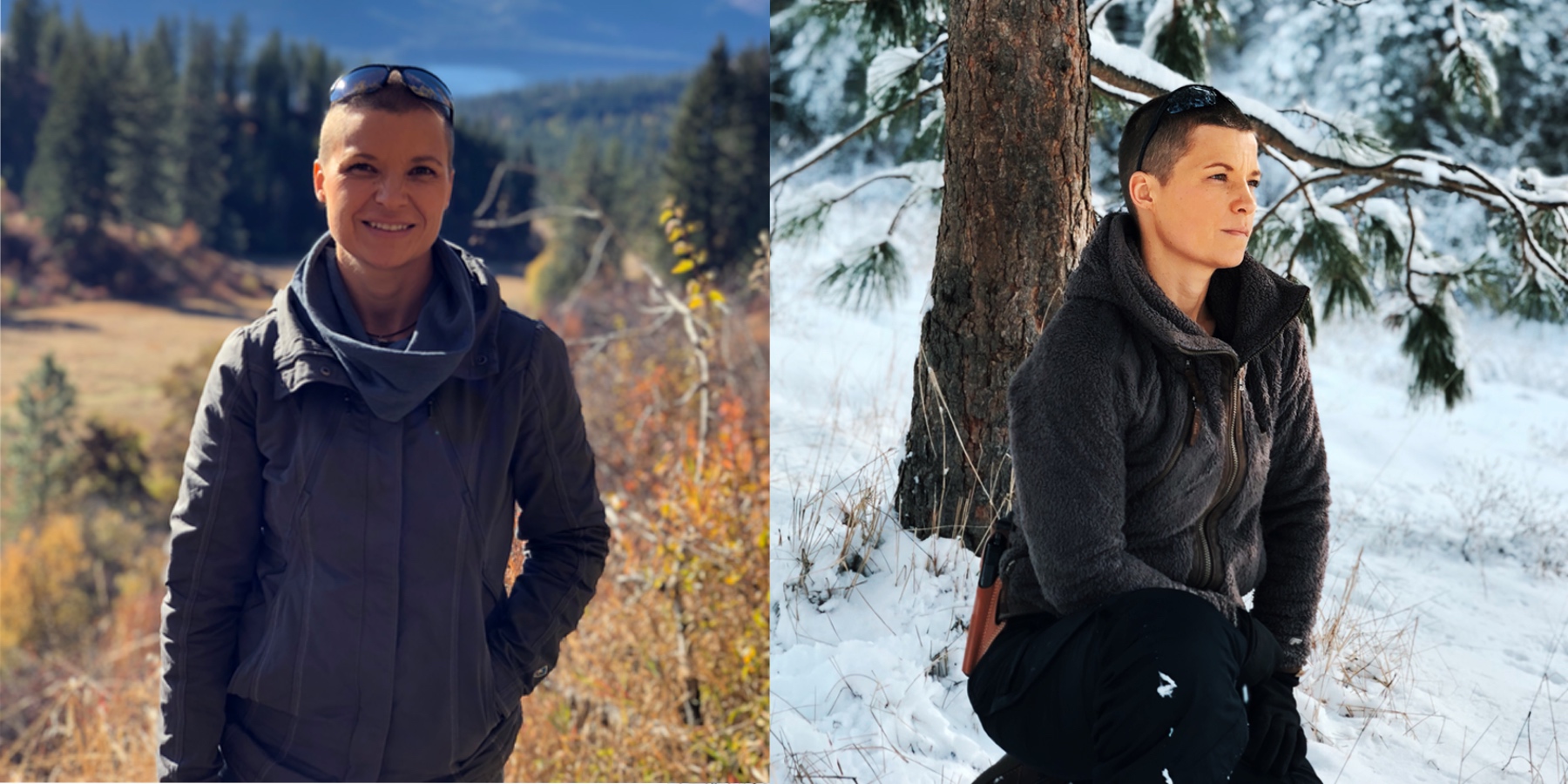
Iris Gardner is a writer, horse wrangler, mother, and former organic farmer who lives with her family on a homestead in northeastern Washington State. After many years of living and farming in southern California, Iris, her husband Jason, and their two children moved to their current home– a rural property located close to the Canadian border and more than two hours from the nearest city. As you’ll hear in our conversation, Iris and Jason have chosen to live and raise their children deliberately, with intention, and close to nature– in a beautiful landscape far removed from many of the so-called conveniences of modern life.
Iris grew up off the grid in rural Washington, in an area so remote that her home did not have electricity. During her childhood, she developed a deep love of reading, horses, and wild landscapes– all passions that are still of great importance to her and her family today. Iris’s husband Jason is a retired, highly decorated Navy SEAL who shares her devotion to intentional living and parenthood. Working as a team, Iris and Jason are building a meaningful and unique life for their family in the wilds of eastern Washington– a life that I have found both inspiring and instructional.
Iris and I have been following each other online for years, so it was wonderful to finally get the opportunity to have a conversion. We spent a lot of time discussing parenting– how she is raising her children to be both tough and compassionate, and how she balances managing risk with letting her kids learn from their own mistakes. We discuss her marriage with Jason and how they have grown as a couple through the various phases of their lives and careers. Iris is an enormously talented writer, and she is currently finishing up her first book, so we discuss her writing process, and she offers some excellent advice for people interested in pursuing creative endeavors. We also discuss the power of positivity, our shared love of reading, Iris’s heroes and mentors, and Iris offers some valuable words of wisdom.
If you want to learn even more about Iris’s journey, I’d encourage you to watch or listen to her conversation with retired Navy SEAL Jocko Willink on the Jocko Podcast. You’ll hear us reference Jocko often in our conversation, and that podcast episode is one of the most powerful conversations I’ve ever heard in my life, no exaggeration.
Iris is an inspiring, strong, tough, talented, and thoughtful woman, and I know you’ll enjoy our conversation. Thanks for listening.
Photos courtesy of Iris Gardner
Download on Apple Podcasts
—
Download on Spotify
—
Download on Google Podcasts
—
Download on Overcast
—
EPISODE NOTES
Topics Discussed:
- 3:40 – Iris describes her homestead
- 7:10 – Iris discusses parenting
- 12:40 – Iris describes raising kids tough
- 20:40 – Iris shares whether she always planned on being a mother
- 21:55 – How Iris and her husband, Jason, met
- 24:10 – Iris discusses the transition in her husband’s work (from SEAL to leadership consultant) and building independence within a marriage
- 26:55 – Iris talks about learning from each other in a marriage
- 29:55 – Iris discusses her memoir
- 31:40 – Iris discusses the relationship between reading and writing in her life
- 34:10 – Iris discusses her relationship with social media
- 39:10 – Iris’s advice for people with creative impulses/aspirations
- 43:55 – who are Iris’s heroes/mentors
- 46:25 – Why Iris feels positivity is important in the face of challenges
- 51:40 – How Iris uses the outdoors for introspection
- 53:10 – How Iris sets examples and encourages introspection, communication, and connection with her kids
- 1:00:40 – How having kids has impacted Ed and Iris
- 1:02:00 – Iris’s book recommendations
- 1:10:25 – Words of wisdom
Information Referenced:
- Iris on Instagram
- Watch Iris on Jocko Podcast
- Listen to Iris on Jocko Podcast
- Jason Gardner on Instagram
- J.R.R. Tolkein
- San Diego, CA
- Tecate, Mexico
- Navy SEALS
- Jocko Willink
- Echelon Front Leadership Consulting
- John Steinbeck
- Ken Kesey
- Edward Abbey
- High Country News
- Enneagram Personality Test
- David James Duncan
- Mike Foote
- Harry Potter series
- Jim Dale
Enjoy this episode? Then you might like these as well:
- George Hodgin – Mission-Driven Entrepreneur
- Kate Kavanaugh – Regeneration & Restoration
- Alexis Bonogofsky – Taking a Stand for the West
- Ivan McClellan – A New Look at the Old West
- Mark Kenyon – A Passion for Public Lands
- Duke Phillips IV – Living with the Land
- Juanita Vero – A Deep Love of Place
- Russ Schnitzer – A Life Devoted to Western Landscapes
My 12 Favorite Books of 2020
My 12 Favorite Books of 2020 (plus some rambling thoughts on gratitude)
2020. What a ride. Thankfully, my family and I were lucky enough to emerge from the year’s insanity unscathed– we’re healthy, employed, and more grateful than ever for our home and community. For better or worse, I discovered that I am not cut out to be a preschool teacher, and, out of necessity, my time management skills improved by leaps and bounds.
Books were even more important to me in 2020 than ever before, but, for the first time, making the space to read them proved to be a challenge. As usual, reading brought me contentment and stability, as well as the numerous benefits I’ve mentioned in the past. But there was one new and unexpected product of reading during 2020: Gratitude.
The fact that I could sit back and take the time to enjoy a book– knowing damn well that millions of people were suffering physically, mentally, economically– once again reinforced just how lucky I am. (And I’m convinced that it all boils down to luck, not my work ethic or any other self-congratulatory character traits. Read Sam Harris’s Free Will to understand my thinking on this subject.) During any time period, reading for pleasure has been pretty near the top of the hierarchy of needs, but during a global pandemic, its opulence is even more pronounced.
Lucky and grateful. I’m lucky that my life has worked out so that incessant reading for pleasure is even an option. Grateful that I have the resources to devote my time and attention to something as luxurious as reading, during this pandemic or ever. Lucky that I live in a country where I’m free to explore any ideas I want. Grateful that I’ve somehow managed to retain my ability to concentrate, despite Zuckerberg’s best efforts. Lucky that books give me a sense of nuance in an increasingly binary world. Grateful that you are spending your valuable time reading this. And the list goes on, and on, and on.
During good times and bad, a focused, deliberate, daily practice of gratitude has always made me happier and a more productive member of society. And during 2020, these repeated micro-doses of gratitude delivered via books provide a much-needed mental boost during an overall gloomy year.
But despite the unexpected upsides of reading in 2020, there was a downside: Between the time commitments of my job, family, podcast, and trying to stay in shape, I didn’t muster the energy to challenge myself with my book choices. I read exclusively for enjoyment and rarely left my comfort zone with authors and topics. While I loved every book that I read in 2020, reviewing the list reminds me (once again) that I need to push myself harder to explore new subjects and authors. For me, the point of reading is to expand my perspective and broaden my horizons– neither of which will happen if I don’t force myself out of my comfort zone.
So in 2021, you can expect my lists to include a much more diverse array of subjects, genres, themes, and authors. If I can push myself to run silly-ass laps around my neighborhood for 24 hours straight, I sure as hell can push myself to increase my empathy, compassion, and understanding of the world through books.
Here’s to maintaining that sense of gratitude every time I pick up a book in 2021 and beyond. And to a renewed commitment to seeking out new ideas, diverse perspectives, and uncomfortable realities that will challenge my thinking and fuel my personal evolution.
Onward!
I had a tough time narrowing them down, but below, in the order that I read them, are my favorite books of 2020.
The Last Cowboys: A Pioneer Family in the New West by John Branch – One of the best books I’ve read on the challenges facing modern-day ranching families in the West, layered on top of an insider’s look into the bone-breaking sport of rodeo. I recommend this book often to friends and colleagues who want to understand the economic and social realities of ranching in the contemporary West. [IndieBound]
Acid for the Children: A Memoir by Flea – I’m not a die-hard Chili Peppers fan and knew next to nothing about Flea before reading this book. So I’m surprised to say that this is one of the top three memoirs I’ve ever read– Flea is a fascinating, complex character, and the book is written in a unique and engaging style unlike any I’ve ever read. [IndieBound]
Perennial Seller: The Art of Making and Marketing Work that Lasts by Ryan Holiday – I highly recommend this book to anyone with aspirations of doing creative work that will stand the test of time. I underlined passages on almost every page, immediately implemented some of his tactical advice, and have revisited the book many times since first reading it. [IndieBound]
August: A Novel by Callan Wink – For some weird reason, I mostly shy away from fiction, but I cranked through this entire book in a day and a half. If you love beautiful prose, thoughtful character development, and stunning descriptions of Montana landscapes, August deserves your full attention. [IndieBound]
Ghost Soldiers: The Epic Account of World War II’s Greatest Rescue Mission by Hampton Sides – I’ve said it before, and I’ll say it again: Hampton Sides is a damn genius. Ghost Soldiers was the only Sides book that I had not yet read, and I’m glad I waited until 2020 to do so. A great reminder of how tough humans can be when driven by purpose, and another timely reminder of how lucky I am to be sitting around reading books instead of being held in a POW camp. [IndieBound]
Leave It As It Is: A Journey Through Theodore Roosevelt’s American Wilderness by David Gessner – One of my all-time favorite authors writing about one of my all-time favorite historical figures– it doesn’t get much better. Like all Gessner books, this one is fun, funny, educational, and perspective-expanding. I especially appreciated Gessener’s willingness to clearly examine TR’s legacy– the good, the bad, and the ugly. [IndieBound]
Conscious: A Brief Guide to the Fundamental Mystery of the Mind by Annaka Harris – A very short book, but hands down the densest one on this list. If you are intrigued by all matters related to consciousness– from the basic definition of the word to the intricacies of non-dual awareness– this book is well worth several readings. [IndieBound]
Atomic Habits: An Easy & Proven Way to Build Good Habits & Break Bad Ones by James Clear – I generally try to avoid getting bogged down in the self-help genre, and I had passed on this book several times. But I’m so thankful I finally read it– Clear hammers home the critical importance of good habits and offers up tactics that have added significant value to my life. [IndieBound]
One Sentence Journal: Short Poems and Essays From the World at Large by Chris La Tray – Chris La Tray is obviously an insanely gifted writer, thinker, and poet, which makes his down-to-earth style and demeanor all the more impressive. He has a unique ability to write poetry that’s meaningful and deep, without all the high-brow haughtiness that is all-to-often associated with poetry.
Lords of the Fly: Madness, Obsession, and the Hunt for the World-Record Tarpon by Monte Burke – I love reading books about people who are maniacally obsessed with their craft, and this tale of maniacs chasing tarpon with fly rods is one of the best I’ve ever read. Rich character sketches combined with beautiful descriptions of Florida’s one-of-a-kind ecosystem make for an excellent read. [IndieBound]
The Grapes of Wrath by John Steinbeck – An American classic that I somehow avoided reading in high school and college. It’s a timeless masterpiece– unfortunately, many of the disturbing societal and economic themes presented in the book are just as relevant today as they were during the Great Depression / Dust Bowl era. [IndieBound]
Painted Horses by Malcolm Brooks – A wildly ambitious, sweeping epic of the American West that absolutely nails it on every level. Quite an accomplishment for an author of any age, much less for a first-time novelist like Brooks. If you’re a fan of Lonesome Dove as I am, this novel should be at the top of your reading list. [IndieBound]
2020 Reads
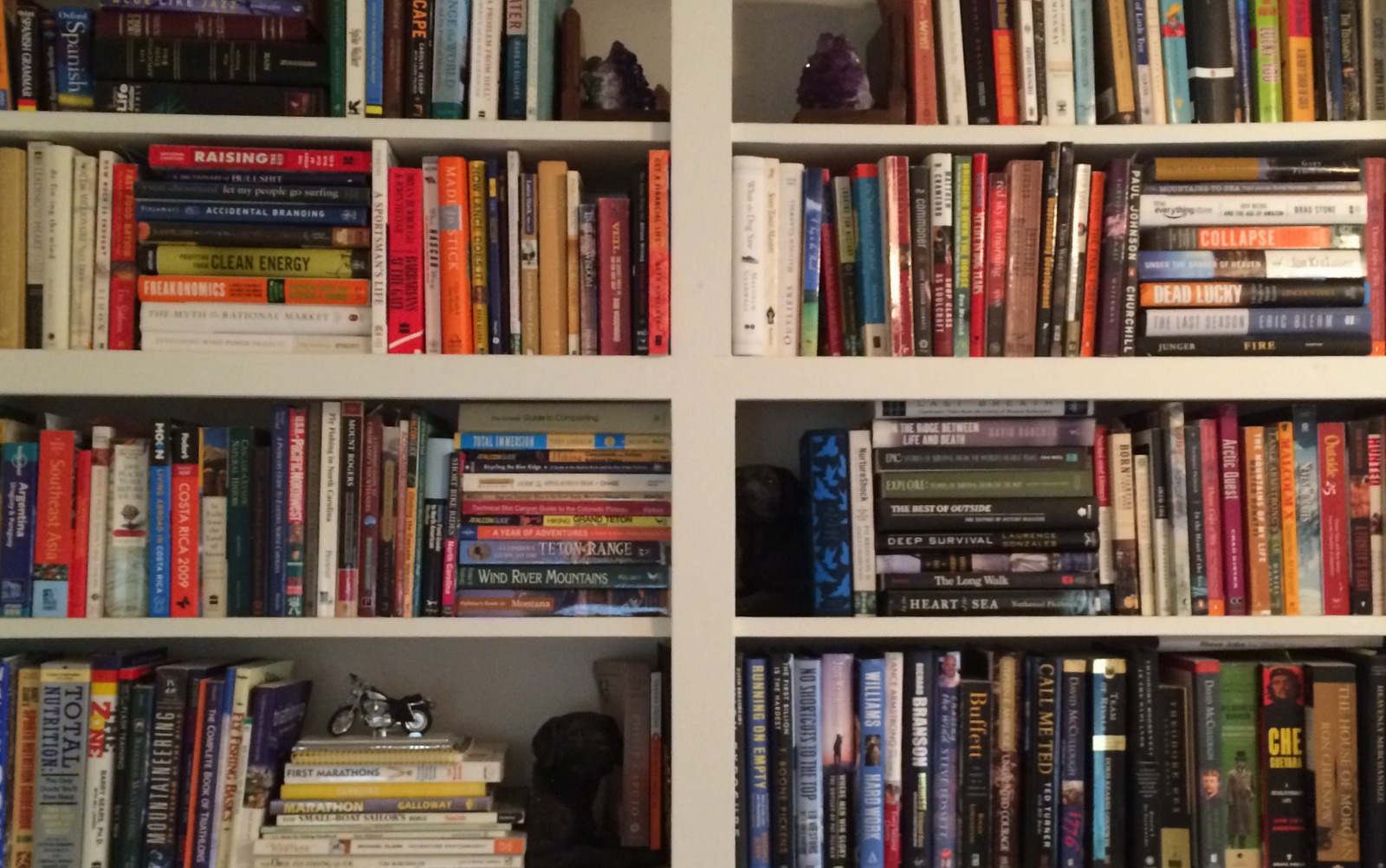
A comprehensive list of every book I recommended in 2020, taken directly from my bimonthly book recommendations email.
The Last Cowboys: A Pioneer Family in the New West by John Branch – This book had been on my need-to-read list for quite a while, so I snagged it while browsing at Bookbinders Basalt. I started reading it on a Friday and was finished by Sunday morning– an excellent book! Having worked closely with the ranching community for almost a decade, I was well aware of how many ranching families paired a love of rodeo with the business of ranching, using winnings from the former to keep the later afloat. This book perfectly captures the lifestyles and hard realities of both rodeo and ranching– the long hours, physical and financial dangers, and the seemingly endless treadmill of debt, tight cash flows, and uncertainty. I particularly appreciated Branch’s ability to highlight the economic pressure caused by escalating land prices, a real and often understated challenge facing food producers in the West. With the skill of a seasoned sportswriter and the eye of a top-notch storyteller, Branch conveys important, timely information in a fun-to-read narrative. [For another valued perspective on the ever-changing West, I highly recommend Sara Dant’s Losing Eden: An Environmental History of the American West.]
Acid for the Children: A Memoir by Flea – I’m nothing more than a casual fan of the Red Hot Chili Peppers, but after listening to Malcolm Gladwell’s podcast conversation with Chili Peppers’ bassist Flea, I immediately bought the book. Wow, what an insane childhood this guy had. It’s truly unbelievable and about as far from my life as I could ever imagine. I honestly think I would feel more out of place running the streets with Flea and his crew of delinquent friends than I would feel if I somehow found myself instantly and inexplicably deposited into an uncontacted Amazonian tribe. That being said, I thoroughly enjoyed the book, which covers Flea’s life from birth through just before the formation of the Chili Peppers. While Flea was definitely a “bad kid” on the outside– stealing, vandalizing, abusing every substance he could get his hands on– internally he was (and seems to still be) a kind, sensitive, shy, truly sweet person. Even after marinating on the book for a few weeks, I still can’t get my mind around Flea’s complex and intriguing personality. But the fact that I’m still thinking about him proves that the book was worth reading. [For another surprisingly good autobiography, check out Open by Andre Agassi.]
Animal, Vegetable, Miracle: A Year of Food Life by Barbara Kingsolver – My wife has been raving about this book for years, as do many of my podcast guests. And as my professional path as veered deep into the world of farming, I have become more and more curious about the ins and outs of food production. The book is structured around Kingsolver’s family’s attempt only to consume food that they grew on their family farm– a 100-acre plot of land in rural Virginia. For me, the book highlighted fundamental truths about food that I often overlook (or ignore), such as how ridiculous it is to expect fresh tomatoes in Colorado in mid-February or mangoes in the United States at any time of year. It also provided some new-to-me perspectives into the downsides of industrialized agriculture, sans the holier-than-thou attitude sometimes found in food books. Given my work with farmers in the arid West, the book also reinforced my thoughts on the “water richness” of the east coast, and how a local food experiment like this would be next to impossible in the water-starved plains of Colorado. [Michael Pollan’s The Omnivore’s Dilemma: A Natural History of Four Meals covers similar ground and is fun to read.]
Iacocca: An Autobiography by Lee Iacocca – This book has been sitting on my shelf for years, likely a remnant from my time in business school. Similar to the Flea book above, I don’t have any deep connection to the specifics of Iacocca’s story– I have little interest in cars, car companies, and definitely not minivans. But there is something about Iacocca’s story that is uniquely American and perfectly captures the flavor of the post-WWII corporate business world. Iacocca was the son of Italian immigrants who joined the big, bad Ford Motor Company immediately after college. Through charisma, a nose-to-the-grindstone work ethic, brashness, ego, and a deep commitment to his “company man” persona, he became one of the most revered business leaders of the late 20th century– a precursor to Jack Welch and other big-company business gurus. I enjoyed the book, not for its management lessons or leadership insights, but more as a historical document that highlights just how much “big business” in America has changed in my lifetime. A fascinating look back in time that provides context for where American business is today. [A similarly interesting book is Sam Walton: Made in America by Sam Walton of Walmart fame. For some time period contrast, read The Everything Store: Jeff Bezos and the Age of Amazon by Brad Stone.]
The Art of Taking Action: Lessons from Japanese Psychology by Gregg Krech – I originally read this book in 2015, which was, in many ways, a lifetime ago– no kids, no podcast, a vastly different job, living in a different city, with less than three years of focused meditation practice under my belt. Rereading this book in 2020, with a much fuller schedule and a seemingly less discursive mind, I enjoyed the book even more. It is loosely based around the principles espoused by Japanese psychologist Shoma Morita and focuses on the importance of taking action over self-analysis, rumination, endless planning, and the like. Krech discusses the psychological harm that can result from procrastination, the downsides of choosing inaction, and the deep relief and contentment that can result from taking action consistently. There are no “hacks,” no secret formula, no way to make taking the initial step of action more pleasant– the trick is to simply begin, build momentum, repeat. Simple, yes. Easy, no. [My second reading of this book was made richer by my daily use of Sam Harris’s Waking Up meditation app. Use this link to try it out free for a month, no strings attached.]
Stillness is the Key by Ryan Holiday – I finished this book just before COVID-Mania took over all forms of media, and I credit it with preemptively reminding me of the importance of calmness, quiet, and mindfulness during what has become an anything-but-calm situation. Following his time-tested formula for weaving together history, biography, and self-help, Holiday makes the case for the value of stillness of mind, even in the most chaotic of circumstances. Citing historical examples ranging from Confucius to Marcus Arelius, JFK to MLK, and even Mr. Rogers, Holiday demonstrates how a cool head in the midst of chaos has made all the difference in high-stakes, stressful situations. And for some possibly odd reason, I really enjoyed his examples of those whose lack of stillness and mindfulness led to their downfalls, with Tiger Woods’ public collapse being Example #1. A timely, useful, and actionable book. [For more assistance calming your mind, Sakyong Mipham’s Turning the Mind Into an Ally is worth a read.
Perennial Seller: The Art of Making and Marketing Work that Lasts by Ryan Holiday – Same author as above, but a completely different subject: Marketing. This book was recommended by a writer/filmmaker/creator that I greatly admire—a person who has managed to build a large, loyal following while maintaining his own unique, authentic voice… all while avoiding the trap of being an annoying salesman or self-promoter. The book lays out simple, practical strategies for creating work that is “evergreen”—that will remain relevant and useful for years or decades after it is published. I underlined passages on almost every page and have revisited the book several times since finishing it in mid-March. I also recommended that everyone at my office read it, as I believe many of its principals could easily be applied to marketing land conservation. Highly recommended. [For another useful book about marketing for those who may not really enjoy selling or self-promotion, check out Seth Godin’s This is Marketing: You Can’t Be Seen Until You Learn to See. Or really anything by Seth.]
Dog Run Moon: Stories by Callan Wink – I heard about Callan Wink from a buddy of mine who insisted that I check out his work. Wink’s resume seemed too good to be true—he’s a summertime Montana fishing guide and a wintertime California surfer, who also happens to write so well that he’s been compared to a Hemingway, Harrison, McGuane, and McCarthy. And even though I’m far from a fiction or literature expert, I’d have to agree that Wink is a damn extraordinary writer. This book is a collection of short stories, many of which are set in southwestern Montana or northern Wyoming—places near and dear to my heart. I loved his vivid descriptions of the region’s landscapes and was blown away by his ability to create such vivid characters with a relatively small number of words. I actually had several dreams about the stories and characters, which is always the sign of an impactful book worth reading. [For a book of powerful non-fiction stories, check out McGuane’s The Longest Silence: A Life in Fishing.]
August: A Novel by Callan Wink — I started this book immediately after finishing the one above, and devoured it at a similar breakneck pace. August is Wink’s first novel, and it’s an expansion of one of his stories from Dog Run Moon. It follows a young man’s life from age 12 through 19, through a series of formative, sometimes tragic, life events, including moving from his home in Michigan to Montana. Wink’s descriptions of Livingston and the surrounding Montana landscapes made me really miss that part of the world, but what really made the book so damn engaging were the characters. I don’t know how Wink did it, but by the end of the book, I felt that I really knew the main character, as well as many of the supporting characters. Wink is a master of dialogue and seems to have an uncanny ability to describe tiny, yet very telling, personality quirks that can clearly define a personality. [Callan will be coming on the podcast soon, so I’m excited to interrogate him about how in the hell he can write like this!]
Ghost Soldiers: The Epic Account of World War II’s Greatest Rescue Mission by Hampton Sides – This was the only Hampton Sides book that I had not yet read, and it was a good one for me to read during this COVID crisis. One of the benefits of reading history is that it reminds me that we humans have had it tough before, sometimes so damn tough that it’s impossible to understand. I picked this book up during a moment of feeling sorry for myself, and it quickly cured me of that unacceptable silliness. The book is the story of the rescue of American prisoners from a Japanese POW camp—a place so brutal that only an author of Sides’ caliber could accurately describe it. The rescue mission plot is combined with details of the Bataan Death March, a horrific chapter of history that was new to me. And as an added personal layer, my maternal grandfather fought in the WWII Pacific Theater, so I grew up hearing stories of his experiences there (along with the Great Depression, another historical rough patch). So if the idea that “things could always be worse” helps you persevere tough times, this book might be for you. [If you’re tired of my writing about books and would rather watch me talk about books, check this video of Hampton and me at the Aspen Institute discussing Blood and Thunder.]
And as is the case with many of us with small children, I’ve started a side career as a preschool teacher. My specialties are reading and recess, with a little math, Magnatiles, gymnastics, and wrestling mixed in. But in all seriousness, it’s been a real joy to read My Side of the Mountain by Jean Craighead George aloud to my oldest daughter, as it was one of my favorite and most formative books from my childhood. We’ve also been thoroughly enjoying Where the Sidewalk Ends and Every Thing On It by Shel Silverstein—fun, clever, hilarious, and impressive. With all three of these books, it seems that my daughter and I are enjoying them equally, which is rare (no offense intended toward Little Blue Truck).
Leave It As It Is: A Journey Through Theodore Roosevelt’s American Wilderness by David Gessner – I’ve been eagerly anticipating this book’s publication for nearly three years, and I’m thrilled to report that it surpassed my lofty expectations. One of my all-time heroes (TR) gets the full literary treatment from one of my all-time favorite authors (Gessner), and the result is a unique and useful examination of TR’s influence on conservation, public lands, and the modern-day environmental movement. Gessner’s goal is to examine TR’s legacy clearly, warts and all. There’s no TR sugar-coating in this book—Gessner thoroughly acknowledges and investigates TR’s personal flaws and political failings, just as freely as he praises TR’s positive, seemingly superhuman traits. I’ve plowed through way too many books about TR over the years, and this is hands-down the most balanced, clear-eyed examination of the man I’ve read to date. But it’s not a biography or a straight-up history book, although there’s plenty of both within the pages. It’s a search to capture the best of TR’s conservation ethos, to discard the worst, and to use the balance to build a new, holistic model for conservation and environmental justice—one that melds together a new confluence of ideals that acknowledges the wrongs of the past and sets an equitable, sustainable course for the future. [This book will be released on August 11, 2020. You can pre-order it now, or get warmed up with Edmund Morris’s The Rise of Theodore Roosevelt,the best straight-up biography of TR on the shelf.]
Conscious: A Brief Guide to the Fundamental Mystery of the Mind by Annaka Harris – I picked up this relatively short book thinking I could breeze through it, write a summary, then move on to the next title on my list. But there was no breezing. In fact, I probably spent more time on this book’s 110 pages than any of the other books mentioned in this email, and I consider that a good thing. As the title suggests, it’s a high-level overview of consciousness—basic definitions, descriptions of sometimes-competing theories, and an honest explanation of just how little we truly understand about the concept. The book expands on some of the ideas mentioned in her husband Sam Harris’s books Free Will and Waking Up, and I found Annaka’s explanations more digestible for my not-so-smart brain. Even though this book is dense and presented some challenging concepts, it was a very enjoyable read and kept my often-scattered attention locked in. [For a slightly different exploration of consciousness, check out Michael Pollan’s How to Change Your Mind.]
Atomic Habits: Tiny Changes, Remarkable Results by James Clear – I generally try to steer clear of “self-help” books, and I purposefully avoided this one for nearly two years because I unfairly deemed the title to be gimmicky. But after listening to a super-engaging, long-form interview with the author, I ordered the book, read it, and thoroughly enjoyed it. For me, the most valuable aspect of the book was Clear’s framing of the importance of long-term good habits for living a fulfilling, enjoyable, successful life. He also offers some new-to-me insights on why good habits can be so difficult to create and why bad habits can so quickly spiral out of control. Yes, the book does suggest some specific tips and tactics for building good habits, but those “hacks” are much less interesting to me than this new way of thinking about the need for consistent, deliberate action, day after day. [If you’re looking for a no-nonsense “self-help” book, check out former Navy SEAL Jocko Willink’s Discipline Equals Freedom: Field Manual. Here’s a taste: “People constantly ask me for the secret of getting up early. I tell them it is simple: Set your alarm clock and get out of bed when it goes off.”]
One Sentence Journal: Short Poems and Essays From the World at Large by Chris La Tray – In 2015, following the death of his father, Chris La Tray quit his well-paying job as a manufacturing consultant to pursue a career as a full-time writer. A few years later, he published this book, which has gone on to win both the Montana Book Award and High Plains Book Award. Almost all of the essays and poems are deeply connected to La Tray’s home state of Montana, specifically the area in and around Missoula. La Tray is an enrolled member of the Little Shell Tribe of the Chippewa Indians and provides an incredibly important Indigenous perspective on life in the West. And I greatly appreciated La Tray’s down-to-earth writing style—both his poetry and his essays were welcoming and engaging, allowing me to expand my literary horizons without feeling stupid or self-conscious. [Hate reading? Then listen to my recent podcast conversation with Chris.]
Braided Creek: A Conversation in Poetry by Jim Harrison and Ted Kooser – In the preface of One Sentence Journal, La Tray mentions that reading this book of poetry was a foundational aspect of his journey as a poet. And many of my western writer friends cite Harrison as one of their greatest heroes and influences. The book is a catalog of a long-term, back-and-forth correspondence between Harrison and Kooser, in which they only communicate in poems. Neither man is specifically attributed to any one poem, so I naturally tried to figure out who was writing what (and, sometimes also tried to figure out what the hell they were talking about!). I approached reading this book as I do listening to music—no agenda, not anxiously trying to absorb all the details, not stressed out—just reading it, enjoying it, and letting it rattle around in my brain. Given the stress and anxiety of our current moment in history, this book was a welcome treat. [Another poetry book I love is Ragged Anthem by Chris Dombrowski.]
Deep Work: Rules for Focused Success in a Distracted World by Cal Newport – I first read and recommended this book back in 2016, and it has held a spot in my brain as one of the most influential books I’ve read in the past ten years. Newport recently started a very simple yet valuable podcast, which prompted me to revisit this book. The basic premise is that the most valuable skill we can have in today’s society is the ability to focus intensely for long periods of time. Unfortunately, phones, social media, email, etc. erode our ability to hone these important concentration skills. While re-reading, I was struck by 1) how well Newport’s arguments hold up four years later, and 2) how much worse all the electronic distractions have become in a relatively short time period. It also led me to delete my personal Facebook account, which is a bonus. [If you like Deep Work, check out Newport’s most recent book Digital Minimalism.]
Not officially books, but just as important: Adventure Journal, Modern Huntsman, and The Surfer’s Journal. I obviously love books, but I’m also a huge fan of any long-form, thoughtful journalism that goes deep into the topics I love. These three are my all-time favorite publications—independent, scrappy, beautifully crafted, substantive magazines that offer unique perspectives into topics that are very close to my heart. The business of niche publications is not for the faint of heart, even in a booming economy. And during an economic downturn, things can get real dicey, real quick. I’m supporting these three with my dollars, and I’d encourage you to do the same for whatever publications are important to you.
Legends of the Fall by Jim Harrison – I’ve seen the movie multiple times, had numerous podcast guests rave about it, and the book has been sitting on my shelf for years– it’s about time I read Legends of the Fall. I know I’m inexcusably late to the party here, but now I finally understand what all of the Jim Harrison hoopla is about. It only took three pages to become completely engrossed, and I’d finished the entire book by the following afternoon. The book is three separate novellas, all unrelated in their storylines, but each showcasing different aspects of Harrison’s literary wizardry. The final novella was the basis for the Brad Pitt movie that you’ve probably seen, but the first two novellas are just as engrossing, if not more. There’s no point in my attempting to describe this masterpiece– I just encourage you to read it as soon as you can. [Callan Wink is being hailed as the new Jim Harrison, and I loved his book Dog Run Moon.]
Compton Cowboys: The New Generation of Cowboys in America’s Urban Heartland by Walter Thompson-Hernández – Through my reading, podcast interviews, and real life, I’m always encountering people who’ve had their lives changed for the better by horses. Whether we’re talking about injured combat veterans or multi-generational ranchers or city-dwelling artists, horses seem to have a magical ability to form deep connections with humans. This book examines another example of horse-human relationships, specifically in Southern California’s urban landscape. Before reading this book, the only thing I knew about Compton was what I’d heard from Snoop– so every page of this book exposed me to ideas, lifestyles, and culture that were entirely new for me and my experience as a southern white guy living in the Rockies. But as is the case so much of the time, when we scratch through the surface, we find that we share more in common than not. A wonderful book that is perfectly suited for the current moment in history. [For another human-animal connection book, check out The Wolf in the Parlor: How the Dog Came to Share Your Brain by Jon Franklin.]
Raising Good Humans: A Mindful Guide to Breaking the Cycle of Reactive Parenting and Raising Kind, Confident Kids by Hunter Clarke-Fields – In just over five years of being a dad, I had only read two parenting books– I couldn’t find any good titles that seemed to align with my thoughts on raising kiddos. But my wife thankfully stumbled upon this book, and I found it to be enlightening, practical, and actionable. It applies lessons from mindfulness practices to the frequently chaotic process of raising kids, laying out a framework for communication with kids that does not involve threats, bribes, or drill-sergeant-like orders. And much to my surprise, the techniques work, at least with my five-year-old. To be clear, I’m an eastern NC native who firmly believes that Dale “The Intimidator” Earnhardt is the best athlete of all time. I’m not some hippy-dippy yuppy who would likely be associated with a book with this sort of title. [The other two parenting books I’ve read are Bringing Up Bébé by Pamela Druckerman and The Happiest Baby on the Block by Harvey Karp
Kettlebell: Simple and Sinister by Pavel Tsatsouline – Pavel makes the rounds on the “podcasts for middle-aged-dudes” circuit, so I’ve heard him interviewed numerous times. Thanks to his tough-guy demeanor and thick Russian accent, I wrongly assumed that his workouts would be over-the-top brutal (e.g., Rocky IV training montage). Despite his incessant use of the word “manly,” this book lays out one of the most reasonable and effective workout routines that I’ve encountered. It’s simple: kettlebell swings and Turkish get-ups, broken up into small sets, with ample rest and explicit instructions to never red-line your cardio. You perform the workout every day, no exceptions, and it should recharge your body rather than deplete it. In just over two months of following the routine, I’m absolutely amazed by my strength gains (gainzz?) and flexibility improvements. And as a bonus, my running has improved, and my knees don’t hurt. If you’re feeling at a loss for home exercise options during these strange times, this is your book. [If sore knees are what you desire, read Born to Run: A Hidden Tribe, Superathletes, and the Greatest Race the World Has Never Seen by Christopher McDougall, then run nonstop for 30+ hours.]
Mop Rides the Waves of Life by Jaimal Yogis & Matt Allen – I’ve read hundreds of children’s books to my daughters, many of them hundreds of times each. God bless Margaret Wise Brown, but the 287th time reading Goodnight Moon can break the strongest of men, possibly even Paval Tastsouline. Mop Rides the Waves of Life is the first kids’ book that seems to get better with each reading. Written by one of my favorite (adult) authors, it’s a kids’ introduction to mindfulness, told through the story of a pint-sized surfer dude with great hair. Both of my girls love it and, no joke, my oldest snapped out of a mini-tantrum when I reminded her to “be like Mop.” This is one of those rare kids’ books that is just as useful for parents as it is for kiddos. [Jaimal wrote one of my all-time faves: Saltwater Buddha: A Surfer’s Quest to Find Zen on the Sea.]
The Fish That Ate the Whale: The Life and Times of America’s Banana King by Rich Cohen – I didn’t finish as many books as normal during July-August, so I’m throwing in a bonus recommendation. I read this book a few years before starting this email list, and I think about it often. It’s the story of Samuel Zemurray, an immigrant who began his career in the United States peddling bananas out of a broken-down cart. Fast-forward a few decades, Zemurray has dominated the United Fruit Company for control of the global banana trade, incited a revolution in Central America, and established himself and one of the richest and most powerful men in the United States. He’s the walking, talking example of “only in America,” and Cohen does an excellent job highlighting both the impressive and despicable aspects of this one-of-a-kind businessman. A fun, memorable, and easy-to-read book. [Another memorable titan-of-industry profile is The Snowball: Warren Buffett and the Business of Life by Alice Schroeder.]
Chasing the Light: Writing, Directing, and Surviving Platoon, Midnight Express, Scarface, Salvador, and the Movie Game by Oliver Stone – Every time I’ve seen Oliver Stone interviewed, I’ve made a mental note along the lines of “That guy seems like quite a character. I wonder what his story is?” Well, after plowing through 300+ pages of his memoir, I can say with certainty that he is quite a character, and a super-intense one at that. This book covers his life up through the production of Platoon– from his service and bravery in Vietnam to his dark days of rampant drug use in Hollywood, from hanging out with international organized crime bosses to scraping together funding for his films. Stone offers up the full blow-by-blow of his wild and intense life, and doesn’t seem to hold anything back. Reading the book gave me a little taste of what it must be like to be inside the head of someone genuinely, perhaps unhealthily, obsessed with their art. Exhausting at the times, but memorable, instructive, and entertaining as hell. [Surprisingly, one of my all-time favorite memoirs is Flea’s Acid for the Children.]
Essentialism: The Disciplined Pursuit of Less by Greg McKeown – The pandemic and its associated insanity forced me to take a hard look at how I spend my time, evaluating what is truly important for my family and me. This book popped into my life at just the right moment and confirmed some ideas that I’d been considering, but did not have the confidence to act on fully. Namely, that saying yes to all opportunities is a bad idea, and that it is impossible to do meaningful, effective work if stretched too thin. Seems like common sense, huh? Most conscientious people seem to understand the downsides of too many commitments, but (like me) have trouble figuring out what to keep and what to eliminate. Essentialism offers some specific techniques for saying no and reducing commitment clutter– not cute little “life hacks” but concrete, useful, simple-but-not-easy frameworks for cutting out life’s nonsense. I’d recommend this book at any time, but it’s especially important now, during these nutty, hectic days. [For more on focus and eliminating distraction, I once again recommend Cal Newport’s Deep Work: Rules for Focused Success in a Distracted World.]
White Working Class: Overcoming Class Cluelessness in America by Joan C. Williams – If you’re like me, you’ve probably spent much of the past few years trying to understand what the hell is going on with politics in the United States. As many of you know from this email list, I obsessively consume history. Still, I’ve been at a loss to find any historical framework to clarify this current political, economic, and social moment. One of the smartest, rational, most measured humans I know recommended this book, and I’m very glad I read it. It’s short and easy to crank through, but it offers some very valuable context around the socio-economic shifts that have slowly transformed many long-standing norms in the U.S. I have to admit that I was previously “clueless” to many of the ideas presented in this book– thankfully, it provided a much-needed broader perspective, helping me be more compassionate and open minded when encountering political beliefs different than my own. [For more on cultivating compassion, look no further than my guru Pema Chodron. Start With Where You Are: A Guide to Compassionate Living is a good entry point.]
Greenlights by Matthew McConaughey – I have a severe aversion to anything associated with celebrities, with two glaring exceptions: The Rock and McConaughey. So obviously, when I heard that McConaughey was releasing a memoir, I bought it the day it was published (and I’ll do the same when/if The Rock publishes one). If the Stone memoir above is on one side of the intensity spectrum, Greenlights is its polar opposite. And spending time in McConaughey’s head is a much more fun place to be than Stone’s. But this book is not cotton candy silliness– there are valuable life lessons throughout the book, useful ideas around focus, risk, hard work, preparation, intention, and optimism. For years, I have admired McConaughey’s transformation from rom-com pretty boy to super-committed, risk-taking Oscar winner, and this book provides the backstory on that evolution. It’s also important for me to see that someone can be an focused, self-reflective, fully committed creator, without the over-the-top self-loathing that plagues so many world-class artists. If you are at all intrigued by McConaughey and his one-of-a-kind style, you’ll love this book. [Another all-time favorite memoir is Shoe Dog: A Memoir by the Creator of Nike by Phil Knight.]
Lords of the Fly: Madness, Obsession, and the Hunt for the World-Record Tarpon by Monte Burke – This book was awesome. I loved it. I’m by no means an obsessed fisherman– if I’m taking a trip to the beach, it’s to surf, not cast a fly rod. But if you love to learn about people who are maniacally obsessed with their craft, you’ll be consumed by this story. As the subtitle states, it’s the history of fly fishing for tarpon in Florida, from the earliest known instances of the sport to the big-money, high-tech, ultra-competitive pursuit of world records. Burke is obviously a master when it comes to writing about fly fishing, the coastal ecosystem, and epic man vs. tarpon battles. But what really drew me in were his vivid descriptions of the eccentric wildmen who’ve devoted their lives to chasing these prehistoric fish. From the 70s in Key West with legends like Tom McGuane and Jim Harrison, to modern-day obsessives like David Mangum, (who physically fights people encroaching on his secret spots), I could not get enough of Burke’s mini-biographies of crazed and committed anglers. [Monte also wrote one of my favorite biographies of another obsessed record-chaser: Saban: The Making of a Coach.]
The Grapes of Wrath by John Steinbeck – This book has been recommended time and again, year after year, and my recent podcast conversation with Mike Foote convinced me to move it to the top of the bedside table stack. Wow, what an amazing work of art. While I was quickly drawn into the novel’s plot and enjoyed almost every page, the book’s real power comes from its examination and subtle critique of American society. The book caused me to think long and hard about many of the incentives that drive the US economy—both back in the days of the Dust Bowl and Depression, all the way up to our current pandemic-influenced economic and employment crises. Portions of the book absolutely infuriated me, not because of the make-believe tragedies happening to Steinbeck’s make-believe characters, but because versions of these tragedies are still happening to real people today, nearly a century later. As a person who reads far too little fiction, I can say that this book has led to more self-examination and analysis of critical societal issues than any non-fiction book I’ve read recently. [For a memorable/terrifying portrait of the brave souls who chose to stay in Oklahoma rather than strike out to California, check out Timothy Egan’s The Worst Hard Time: The Untold Story of Those Who Survived the Great American Dust Bowl.]
The Practice: Shipping Creative Work by Seth Godin – If Seth Godin writes it, I’m going to buy it and read it—so know that this recommendation is heavily biased. This book was written for anyone who does (or dreams of doing) creative work, yet struggles with the surprisingly tough challenge of consistently putting their creation out into the world. Even though it is broken up into more than 200 short, quick chapters, this may be Seth’s most dense book to date. I underlined passages on almost every page, and, at times, felt overwhelmed by the amount of actionable wisdom that Seth was cramming into my brain. I’ve been reading Seth closely for years, and this book presented many new ideas and reinforced many of his time-tested thoughts on the creative process. This is one of those books I will revisit regularly, and I’m thankful to have it as a resource for years to come. [You can’t go wrong with any of Seth’s books, but my favorites are Purple Cow, Tribes, What To Do When It’s Your Turn, Linchpin, and This is Marketing.]
Ninety-Two in the Shade by Thomas McGuane – After reading Monte Burke’s amazing Lords of the Fly, I became obsessed with trying to imagine Key West in the 1970s. Monte’s stories of Tom McGuane, Jim Harrison, Richard Brautigan, Russell Chatham, Jimmy Buffett, and Hunter S. Thompson’s exploits related to fishing and art captured my imagination to the point that I had a few dreams about it. Several trusted voracious readers recommended Ninety-Two in the Shade as the best representation of the wild times and nutty characters that created the community of 1970s Key West. Even though it’s a novel, the book delivered—although I’ve never been to Key West, I felt like I’d spent a few days there. The book is hilarious, insane, and beautifully written in a style that only McGuane can offer. I’d love to know the backstories of this book’s main characters, as I suspect they are based on real people and real events from 40+ years ago—events that very well could have been even wilder and stranger than fiction. [Check out my recent podcast with Monte Burke to hear a discussion of Key West in the 70s and its foundational influence on today’s art and literature here in the American West. And for another wonderful book about fishing, check out Chris Dombrowski’s Body of Water: A Sage, a Seeker, and the World’s Most Alluring Fish.]
Zero to One: Notes of Startups, or How to Build the Future by Peter Thiel – I love books written by uber-successful people that confidently contradict conventual wisdom—particularly wisdom related to economic and business, my fields of study back in the day. In this book, Thiel—founder of PayPal and first investor in Facebook—turns many well-worn theories on their heads, including ideas related to monopolies, competition, and goal-driven societies. Many of the ideas were 100% new to me. Despite the heavy subject matter, the book is relatively short, easy to read, and entertaining– much more fun to read than most books from my formal education. I’ll be interested to see how Thiel’s ideas age as they marinate in my brain over the coming months. But as of today, I’d say that this book shifted my thinking ever so slightly– the mark of a great book. [One of the most memorable and useful books from graduate school was The Art of Strategy: A Game Theorist’s Guide to Success in Business and Life. I reference it often, even after reading it more than a decade ago.]
Painted Horses by Malcolm Brooks – I think the personal and societal shifts brought about by the pandemic may have altered my brain chemistry because I’m reading (and loving) novels more than ever before. If you enjoyed McMurty’s Lonesome Dove, then I can just about guarantee you will love Painted Horses. It’s a large-scale epic of the American West that marries rich characters, stunning landscapes, real-life history, and beautiful lyrical prose into a one-of-a-kind novel you won’t be able to put down. The novel is set in 1950s Montana, a time period I haven’t read much about (or if I did, it must not have made much of an impression). Like Grapes of Wrath above, Painted Horses illuminated many real-world historical issues and timeless truths, but in an entertaining manner that is much richer than plain-old history. Amazingly, Painted Horses was Brooks’s first published novel, so I’m anxiously awaiting his next one, set to be published this spring. [Malcolm was kind enough to join me on the podcast to discuss this book and his writing process, as well as to answer my question about how in the hell a human can write so epically. Also, if you haven’t already, read Lonesome Dove.]
The Ramblings of a “Conquistador of the Useless”
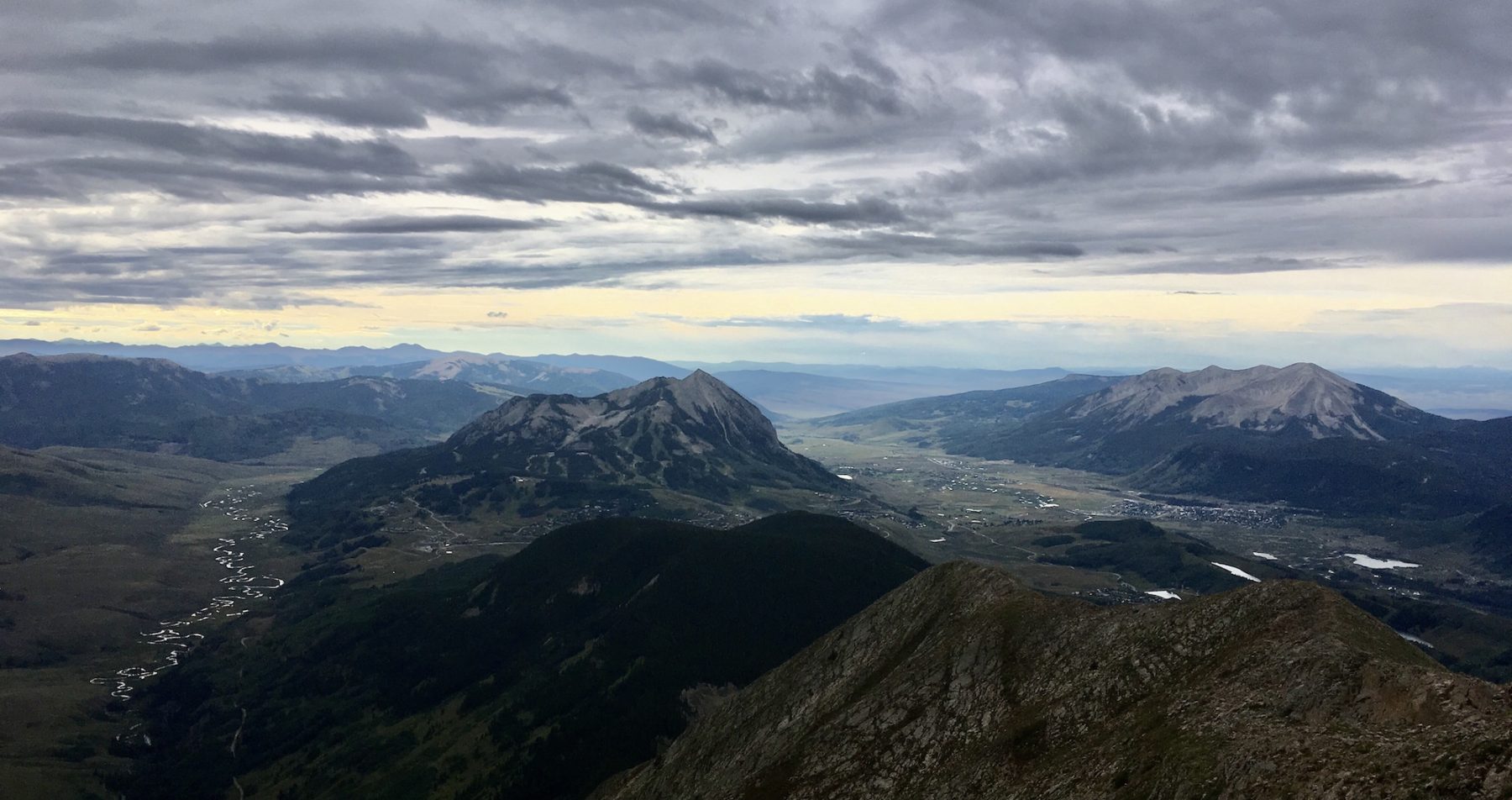
This episode is a little different than normal– it’s me being interviewed on the Off the Couch podcast by my friends Jonathan Ellsworth and Brendan Leonard. Brendan is likely familiar to many of you long-time listeners– he joined me on the podcast a few years ago to discuss his writing career, his film “How to Run 100 Miles” and his blog Semi-Rad. Jonathan is the creator of Blister, an amazing online resource that includes outdoor gear reviews, a podcast network, and much more. Jonathan will be joining me on this podcast in the coming months.
Jonathan and Brendan were nice enough to invite me on Off the Couch to discuss a somewhat silly challenge that I imposed on myself on my 43rd birthday. Every hour on the hour for 24 hours, I ran a 1.3-mile loop around my neighborhood. In between laps, I did a long list of tasks that I had been putting off, including stacking firewood, cleaning and rearranging my basement, sending a ridiculous number of emails, and other mindless tasks. The whole thing was based on a film by a guy named Beau Miles who did a similar challenge in Australia. I stumbled across the film on Youtube and decided to give it a shot a few days later. I’ve linked to that film in the episode notes.
That birthday challenge was just one part of what turned out to be a wide-ranging conversation about a ton of fun and funny topics. We discussed the backstory on the Mountain & Prairie, my experiences running 50 and 100-mile races, some scary moments I’ve had running ultras, why I’m so obsessed with reading books, and some of my favorite books from 2020. There were enough interesting topics that overlap with what we discuss here on Mountain & Prairie, so I thought some of y’all might enjoy it and get a few laughs at my expense.
If you’re interested in running and some of the fascinating characters that the sport attracts, I encourage you to check out Off the Couch. You’ll recognize a few past Mountain & Prairie guests, including Mike Foote and Joe Grant, but all of the episodes are fun and inspiring. There’s a link in the episode notes, so check it out. Enjoy!
Top photo by Ed, from the top of Gothic Mountain outside Crested Butte
Download on Apple Podcasts
—
Download on Spotify
—
Download on Google Podcasts
—
Download on Overcast
—
EPISODE NOTES
Topics Discussed:
- Ed’s podcast, Mountain & Prairie (3:32)
- The Procrastinator’s Punishment 50k (11:49)
- Ed’s Scary DNF (33:02)
- Ed’s Gross DNF (39:21)
- Triathlon community vs the Ultra community (42:11)
- Ed’s bi-monthly book recommendations (47:20)
Information Referenced:
- Off the Couch
- Blister
- Semi-Rad
- Beau Miles – A Mile An Hour
- Blister Podcast Network
- All of Brendan’s Books
- How to Run 100 Miles film
Enjoy this episode? Then you might like these as well:
- Brendan Leonard – Grinding It Out
- Mike Foote – Perfection Is In the Process
- Chris Burkard – The Art of Suffering
- Kyle Richardson – Mountains & Music
- Joe Grant – Self-Powered Alpine Adventurer
- Steve Casimiro – Voice of Adventure
Chris Douglas – An Unexpected Artistic Journey
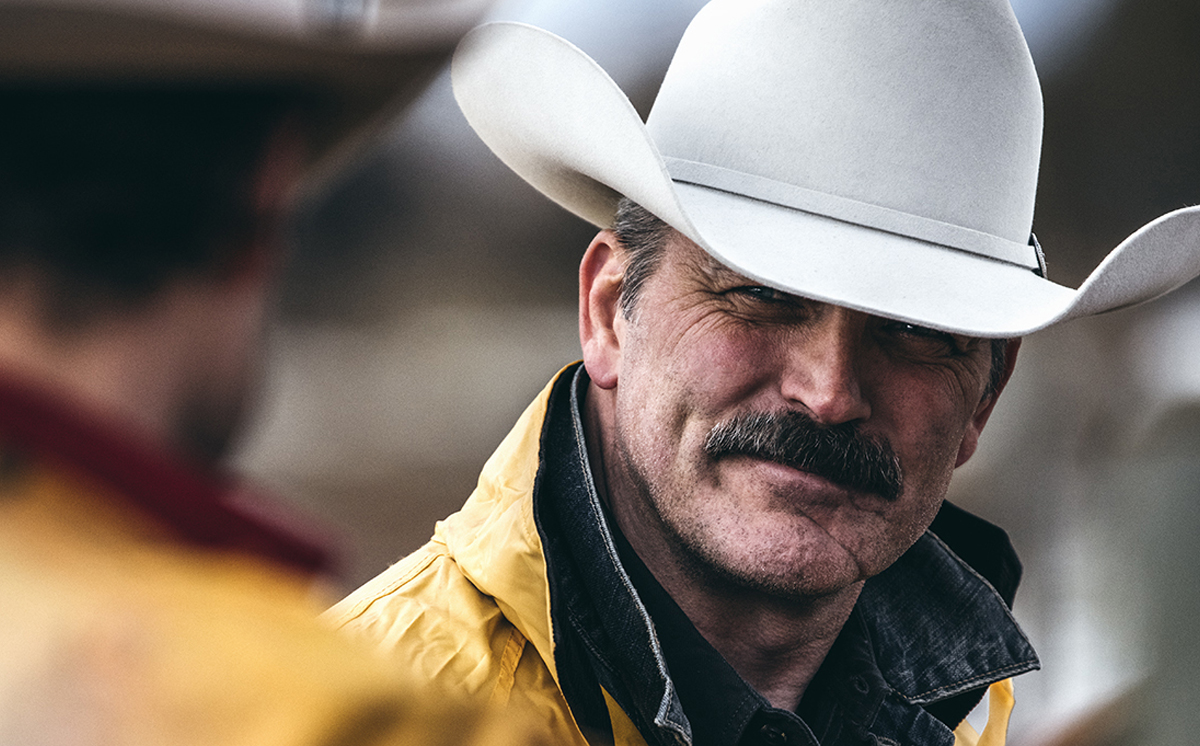
Chris Douglas is a Montana-based photographer and creative director who is one of the most sought-after visual storytellers in the American West. Chris is a go-to photographer for iconic brands such as Filson, Stetson, and Mossy Oak, and his editorial work appears regularly in publications including Modern Huntsman and Men’s Journal. In a world flooded with iPhone photography and armchair creatives, Chris’s work stands out as being artistically stunning and of the highest professional caliber.
When viewing Chris’s work, most people would assume that he’s been laser focused on photography for his entire career. But even though his interest in photography began at age ten, the first half of his career was spent in front of the lens– first as an international model for brands such as Versace, and then as a successful television actor. But life moving between LA, New York, and Milan was not a fit with his love of the outdoors, so Chris eventually moved to Montana, where he continued his life-long passion for hunting and adventure. Then, as you’ll hear him describe, Chris was severely injured in a horse accident, which became the catalyst that led him to leave acting behind and devote his full energies to photography.
Those of you who are long-time listeners know that I spend a lot of time preparing for each of these interviews, but, as you’ll hear, I was completely surprised by much of Chris’s story. Chris is unbelievably humble and keeps a low profile, so I was honored that he was open to sharing his full journey with me on the podcast. We started out chatting about his upbringing in east Tennessee and his tight-knit, supportive family that he credits with being the foundation for all of his success. Then we discussed his fascinating career trajectory– from international model to soap opera star to television host to photographer. We had a great conversation about his Native American ancestry and how Native culture has influenced his work and family’s life in Montana.
Chris’s story is both entertaining and instructive– he is a wonderful example of how life’s unexpected twists and turns can lead people on the most interesting journeys. And how hard work, humility, creativity, and professionalism can result in a one-of-a-kind life and career. Check out the extensive episode notes for links to everything we discuss. Enjoy!


Photos courtesy of Chris Douglas, top photos of Chris by Paul King
Download on Apple Podcasts
—
Download on Spotify
—
Download on Google Podcasts
—
Download on Overcast
—
EPISODE NOTES
Topics Discussed:
- 5:00 – Where Chris grew up
- 6:45 – How did Chris become interested in photography?
- 10:00 – Chris’s other artistic talents
- 11: 15 – Chris beginning to work with Bruce Weber
- 16:00 – Chris learning more about photography through observation
- 18:00 – Social media’s impact on photography from Chris’s perspective
- 19:00 – Chris pursuing his passion for hunting while modeling
- 22:45 – Chris reflects on the best and worst parts of his career in front of the camera
- 24:30 – What pushed Chris to spend time in the outdoors in the middle of a successful modeling/acting career
- 26:00 – Why Chris decided to move to Montana
- 28:30 –Chris’s gradual transition to professional photography behind the lens
- 30:30 – Chris’s horse accident
- 39:30 – Chris reflects on all the jobs that got him to where he is now
- 42:00 – Chris’s keys to success in business and photography
- 47:00 – Chris’s Native heritage
- 50:00 – Chris reflects on learning about his heritage
- 55:43 – Where Chris thinks his career will go from here
- 58:15 – Book recommendations
- 1:01:45 – Parting words of wisdom
Information Referenced:
- Chris Douglas Photography
- Clinton, Tennessee
- Clinch River
- Melton Hill Dam (lake)
- Cannon AE-1
- Dale Hollow Lake
- Bruce Weber
- Versace
- Steven Meisel
- Arthur Elgort
- Soft Box light
- Bob Frame
- Norman Seeff
- KISS
- Calvin Klein
- Ralph Lauren
- One Life to Live
- North Salem, NY
- Broadhead arrows
- Great Smoky Mountains National Park
- Yellowstone National Park
- McAllister, MT
- Ennis, MT
- Bozeman, MT
- Trail Creek trail
- The Young and the Restless
- Passions
- Scott Gurney/Gurney Productions
- NFR (National Finals Rodeo)
- Leo Burnet
- Marlboro ad campaigns (Marlboro Man)
- Yeti
- Cherokee
- Pocahontas
- Ellijay, GA
- Panthertown, NC
- Lame Deer, MT
- Powwow
- Crow
- Charles Frazier
- Mari Sandoz
- Charles Eastman
- Lakota
- Filson
- Rick Bass
- E. Donnall Thomas
- Cormac McCarthy
- Michael Fox
- Robert M. Pirsig
Enjoy this episode? Then you might like these as well:
- Ivan McClellan – A New Look at the Old West
- Chris Burkard – The Art of Suffering
- Pete McBride – A Passion for Water & Wild Places
- Alexis Bonogofsky – Taking a Stand for the West
- Jessica Lewis – Doing More With Less
- Heather Hansman – Demystifying Water in the West
- Hal Herring – A Man of Words & Wild Places
- Duke Phillips III – A Vision for the New West
- Duke Phillips IV – Living with the Land
Monte Burke – Exploring Obsession
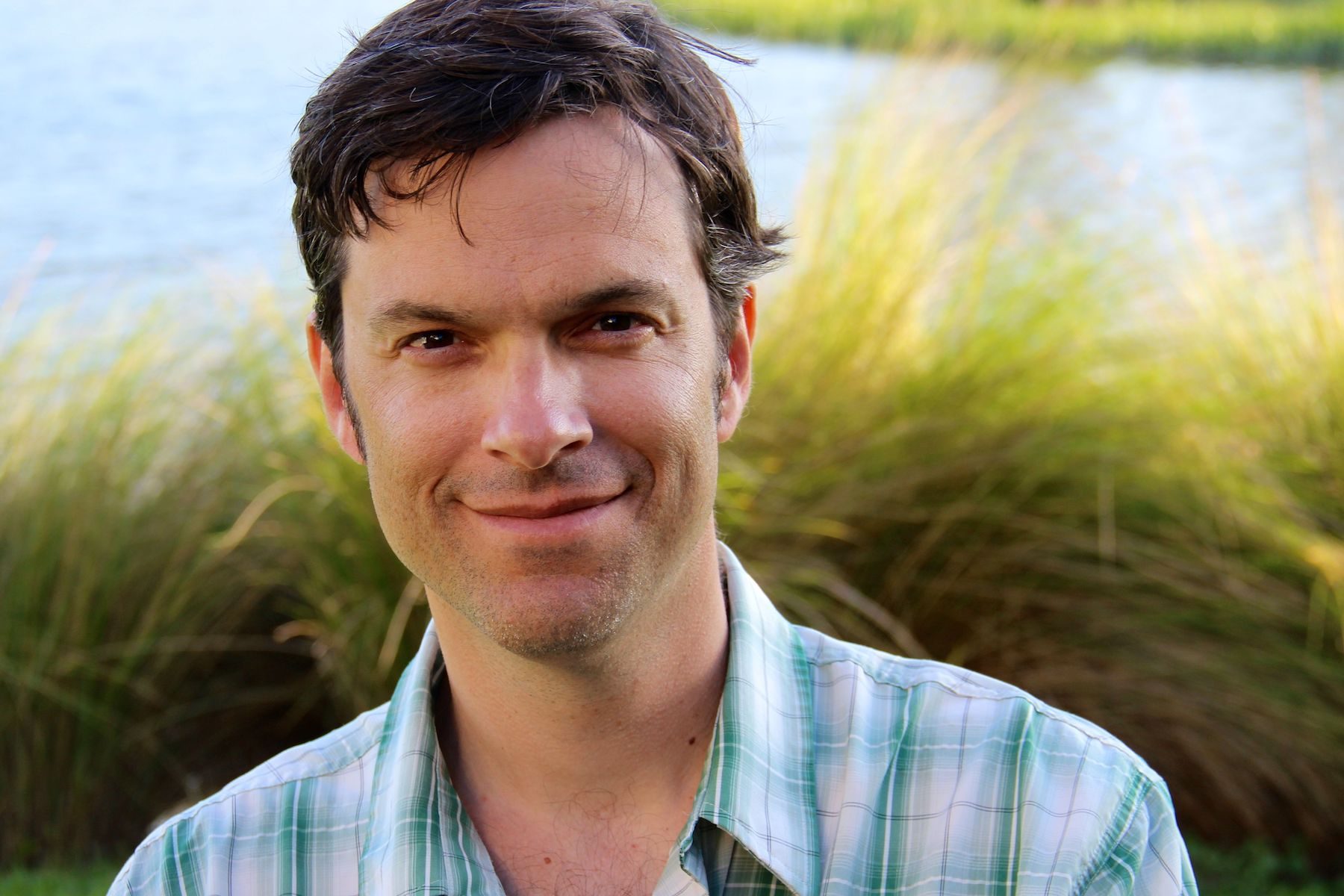
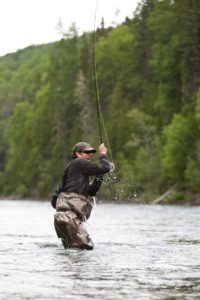
Monte Burke is a journalist, New York Times bestselling author, and contributing editor at Forbes, Garden & Gun, and The Drake. His most recent book is Lords of the Fly: Madness, Obsession, and the Hunt for the World-Record Tarpon, which was one of the best books I read in 2020. He’s also the author of Saban: The Making of a Coach, which also happens to be one of my all-time favorite books. Whether he’s writing about fly fishing, Colorado conservationists, elk hunting, or football, Monte’s work is always impeccably researched and fun to read.
I loved every page of Lords of the Fly, and both anglers and non-anglers alike will be drawn into the book’s engaging story and wild characters. One of my favorite aspects of the book was how it opened my eyes to the connections between the 1970s Florida fishing scene and modern-day art, poetry, and literature of the American West. Western luminaries who are frequently mentioned on this podcast– Tom McGuane, Jim Harrison, Richard Brautigan, Russell Chatham, and more– all created art and chased tarpon together in Florida in the 1970s. They all eventually moved West and became some of the most respected western artists of their time, but were it not for the creative foundation they built in Florida, today’s western literary and art scene would look quite different.
Monte and I had a fun and wide-ranging conversation discussing everything from fly fishing to fatherhood. We started out talking about Lords of the Fly— we obviously talked about the crew of anglers that included McGuane and Harrison, but we also discussed the full cast of obsessed characters who make up the history of fly fishing for tarpon. Monte explains why this story was so compelling to him, and he discusses some of the headwinds he encountered while trying to get the book published. We discuss Monte’s attraction to writing about intense, obsessed people, whether they happen to be world champion coaches or anglers. We chatted about Monte’s writing and journalism career, as well as some of the routines that allow him to be such a prolific writer. And as usual, we discuss favorite books, authors, films, and he offers up some wise parting words.
If you love fishing and literature, or if you’re an aspiring writer or artist, this episode is chock-full of useful information. Be sure to check out the show notes for links to everything we discuss– this episode may very well hold the record for most books and authors recommended! Hope you enjoy!
Photos courtesy of Monte Burke
Download on Apple Podcasts
—
Download on Spotify
—
Download on Google Podcasts
—
Download on Overcast
—
EPISODE NOTES
Topics Discussed:
- 3:50 – Why Monte was drawn into the story of fly fishing for tarpon
- 8:30 – Early stages of writing the book
- 14:30 – Jim Harrison, Tom McGuane, and tarpon fishing
- 20:45 – What McGuane such a unique writer?
- 23:15 – Monte’s decision to include himself in the story
- 26:45 – His obsession with obsessed people
- 31:15 – Monte’s personal obsessions
- 35:45 – How having children affected his outlook and career
- 40:15 – When writing and reading became his focus
- 42:45 – Getting started in journalism + writing at night
- 45:45 – The coolest part of writing
- 48:45 – Writing routine
- 53:15 – Techniques for convincing people to share their stories
- 56:15 – Writers that Monte admires
- 59:45 – Favorite books
- 1:00:30 – Favorite movie
- 1:02:15 – Favorite place in the West
- 1:03:45 – Parting words of wisdom
Information Referenced:
- Monte Burke
- Lords of the Fly by Monte Burke
- Pegasus Books
- Saban by Monte Burke
- All books by Monte Burke
- Garden & Gun magazine
- Forbes magazine
- Steve Huff profile by Monte
- Carl Hiaasen profile by Monte
- Thomas McGuane
- Jim Harrison
- Russell Chatham
- Richard Brautigan
- Hunter S Thompson
- Rinella – McGuane podcast
- Ninety-Two in the Shade by Thomas McGuane
- Richard Ford
- Pappyland by Wright Thompson
- The Orchid Thief by Susan Orlean
- Valley Uprising
- The Last Dance
- John McPhee
- Michael Lewis
- Ian Frazier
- Emily St John Mandel
- James Salter
- Wallace Stegner
- The Sisters Brothers by Patrick DeWitt
- The Great Gatsby by F Scott Fitzgerald
- Light Years by James Salter
- Trading Places
- Ketchum, ID
- Henry’s Fork
- Howler Brothers
Enjoy this episode? Then you might like these as well:
- Hampton Sides, Part 2 – How to Tell a Damn Good Story
- Callan Wink – A New Voice for the New West
- Heather Hansman – Demystifying Water in the West
- Chris Dombrowski – Words, Water & the West
- Malcolm Brooks – Epic Tales from the American West
- Peter Heller – Chasing the Flow
- Chris La Tray – Rediscovering His Past, Writing His Future
- Sara Dant – A Deep Dive Into the History of the West
Malcolm Brooks – Epic Tales from the American West
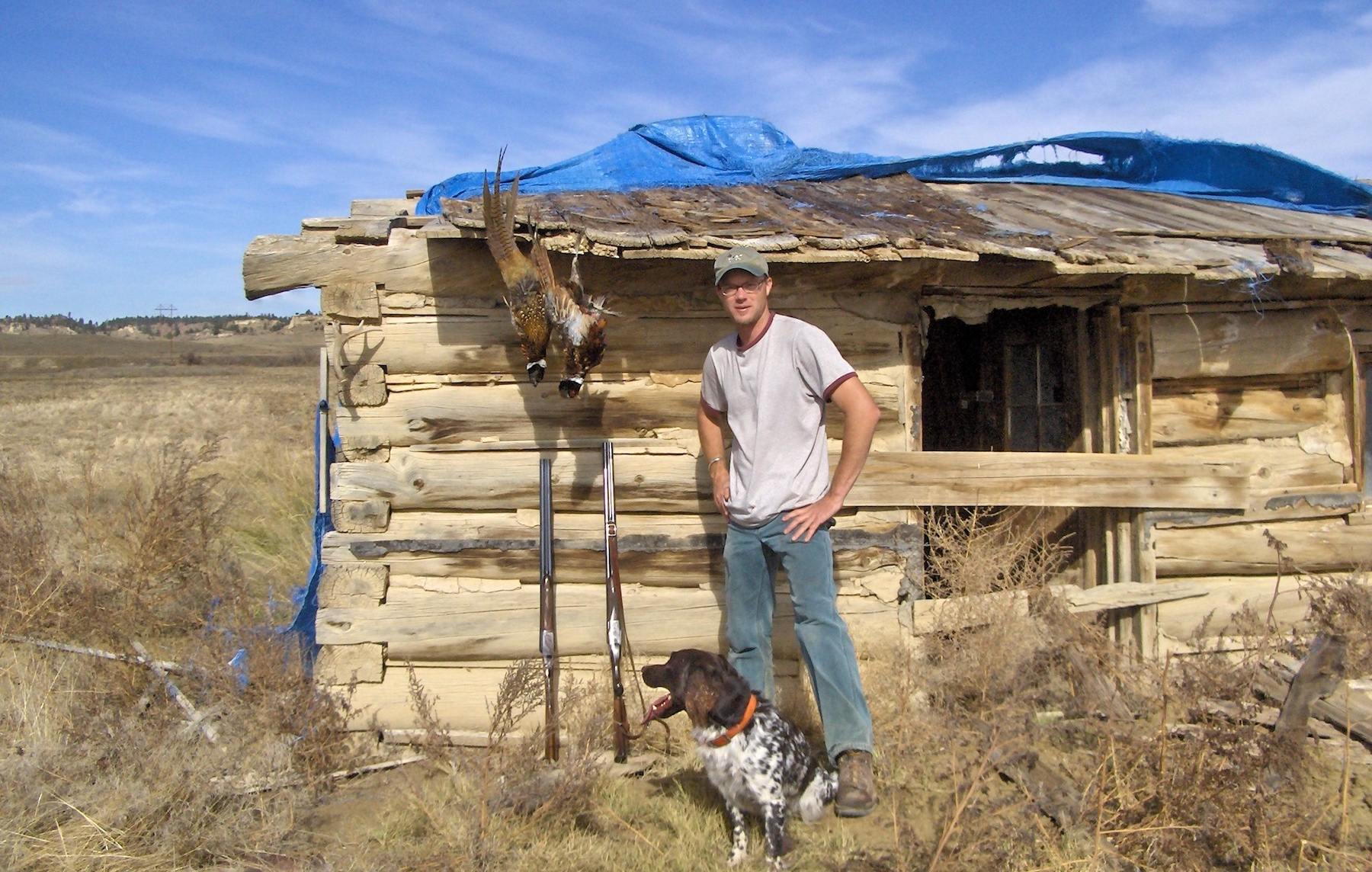
Malcolm Brooks is a Montana-based author best known for his epic novel Painted Horses, a sweeping, large-scale tale of life in the American West in the 1950s. Published in 2015, Painted Horses has quickly become a classic among those who love Western literary fiction. Even more impressive, Painted Horses was Malcolm’s first published novel– a truly remarkable feat when you consider the story’s breadth and depth and its characters.
Malcolm’s obsession with writing began at age fourteen when a teacher gave him a copy of Larry McMurtry’s Lonesome Dove during an incredibly formative period of his life. From that point on, Malcolm was laser-focused on becoming an author– so much so that he completed his first full-length novel when he was only 18 years old. Malcolm continued to consistently write throughout his twenties, experiencing moderate success in journalism, but never publishing a novel. When he was in his early thirties, Malcolm decided to go all-in on writing his dream novel– “to go big or go home” as he says– and he began the five-year process of writing Painted Horses. It’s safe to say that his efforts paid off– Painted Horses has been compared to the works of Cormac McCarthy, Wallace Stegner, and more.
Malcolm and I were introduced by another gifted author and past podcast guest, Chris Dombrowski, and we had a wonderful conversation. If you’re interested in the creative process or the ins-and-outs of craftsmanship, you will love this episode. We started out by talking about our mutual love of Lonesome Dove, and Malcolm shares how that book changed the trajectory of his life. We discuss Malcolm’s upbringing, formal education, commitment to carpentry, and artistic and literary influences. We obviously discuss Painted Horses, and he offers a sneak preview of his upcoming novel, Cloudmaker. Malcolm tells a great story about finding an ancient buffalo skull and offers tons of great book recommendations. And finally, he has some wise parting words that I think you’ll find useful and timely.
Thanks to Malcolm for taking the time to chat. Be sure to check out the episode notes for links to everything we discuss. Hope you enjoy!
Photo courtesy of Malcolm Brooks
Download on Apple Podcasts
—
Download on Spotify
—
Download on Google Podcasts
—
Download on Overcast
—
EPISODE NOTES
Topics Discussed:
- 3:30 – Influence of Lonesome Dove
- 9:30 – When did Malcolm discover he wanted to be a writer?
- 10:30 – Malcolm’s foray into carpentry and its overlaps with his writing
- 11:30 – Malcolm’s first manuscript
- 14:00 – When did Malcolm first get published?
- 15:45 – How Malcolm first became interested in Montana
- 17:45 – Malcolm’s formal education experience
- 20:30 – Painted Horses
- 22:30 – Malcolm’s self-critique and artistic influences
- 25:30 – Malcolm’s writing process
- 27:30 – Is writing fun for Malcolm?
- 28:15 – Legends of the Fall
- 30:30 – The importance of reading to Malcolm
- 32:00 – The importance of supplementary income for creatives and authors
- 37:00 – Malcolm’s advice for finishing a project and notes on new projects he is working on
- 40:30 – Yellowstone and its impact on American Western-focused television
- 41:30 – What authors does Malcolm admire?
- 48:00 – Slight teaser for Malcolm’s upcoming book, Cloudmaker
- 51:45 – What other art has shaped Malcolm’s world view?
- 53:30 – Malcolm’s most powerful experience in the outdoors
- 1:00:00 – Words of wisdom
Information Referenced:
- Malcolm Brooks
- Larry McMurtry
- Placerville, CA
- Ken Kesey
- Frances Kuffel
- The Flathead, Flathead Valley
- MFA, University of Montana
- William Kittredge
- Thomas McGuane
- Jim Harrison
- Rich Little
- Stephen King
- Larry Brown
- Donald Ray Pollock
- Hal Hearing
- Yellowstone
- Taylor Sheridan
- Steven Bodio
- Tony Hillerman
- Edward Abbey
- Granville Stewart
- Mary MacLane
- Friedrich Nietzsche
- Mark Twain
- Charles Lindbergh
- John Wayne
- Humphrey Bogart
- Orson Wells
- Fancis Ford Coppola
- Martin Scorsese
- Cybill Shepherd
- Jeff Bridges
- Steven Rinella
- Smith River
- Juanita Vero, Missoula County Commissioner
Enjoy this episode? Then you might like these as well:
- Peter Heller – Chasing the Flow
- Hampton Sides, Part 2 – How to Tell a Damn Good Story
- Chris Dombrowski – Words, Water & the West
- Heather Hansman – Demystifying Water in the West
- Chris La Tray – Rediscovering His Past, Writing His Future
- Sara Dant – A Deep Dive Into the History of the West
- David Gessner, Part 3 – A Confluence of Conservation Ideals
VIRTUAL EVENT – In Conversation with Jim Howell
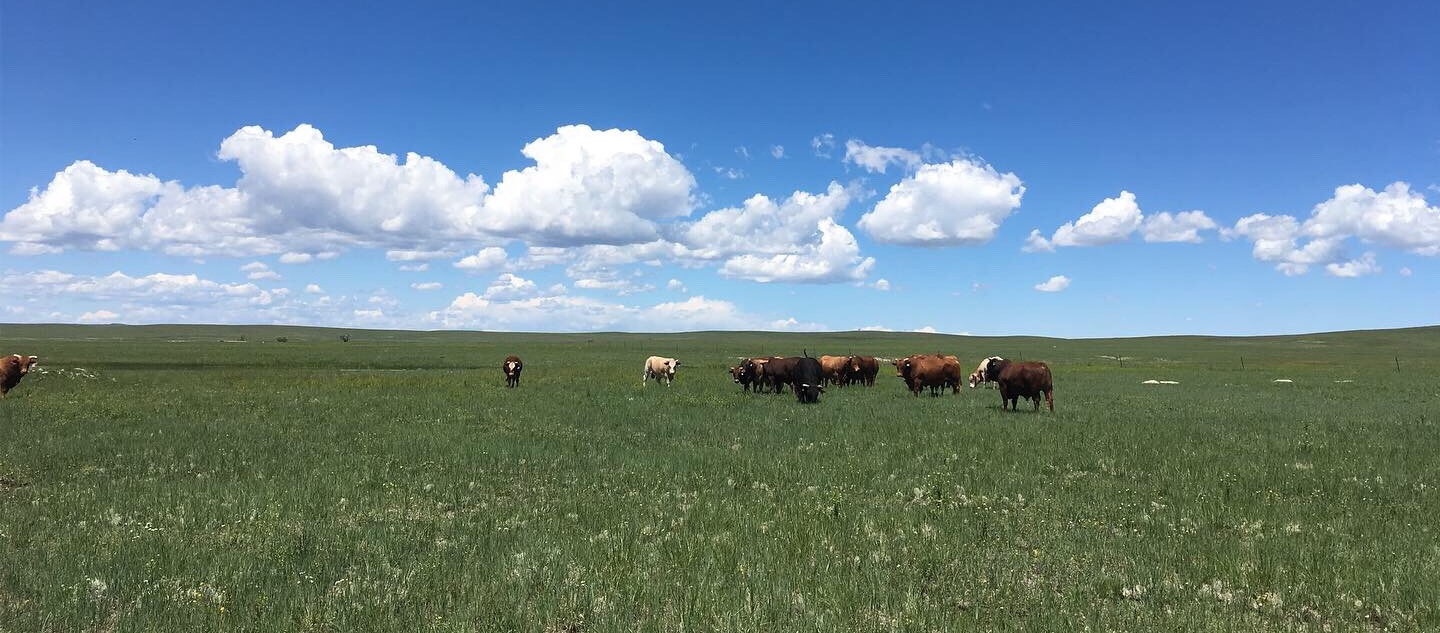
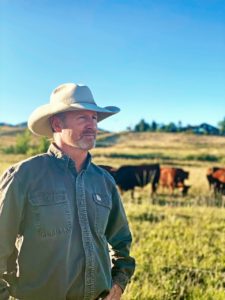
Please join me Tuesday, December 1 at 7:30 PM MST for what is sure to be a fascinating and wide-ranging video conversation with Jim Howell, CEO of Grasslands, LLC. Jim is also a past two-time podcast guest, a co-founder of the Savory Institute, author of For the Love of Land (one of my favorite books), endurance aficionado, committed family man, and all-around-great guy.
I expect a fun conversation about regenerative agriculture, Grasslands’ newest Colorado ranches, challenges and opportunities of ranching in the alpine, COVID’s effects on the cattle business, books, and hopefully lots of Q&A from the audience.
REGISTER VIA ZOOM
These Mountain & Prairie video chats are usually reserved exclusively for Patreon supporters, but I’m excited to open this one up to everyone. If you enjoy it and glean value from the conversation, I hope you’ll sign up to support the podcast via Patreon. Starting in January 2021, I’ll be hosting monthly video chats with a variety of innovators of the American West, conversations that will allow plenty of interaction from the viewers.
For the uninitiated, here are a few resources that will give you some background on Jim and his work:
Jim’s First and Second M&P episodes
For the Love of Land: Global Case Studies of Grazing in Nature’s Image by Jim Howell
See you on Tuesday night!
Mike Foote – Perfection is in the Process
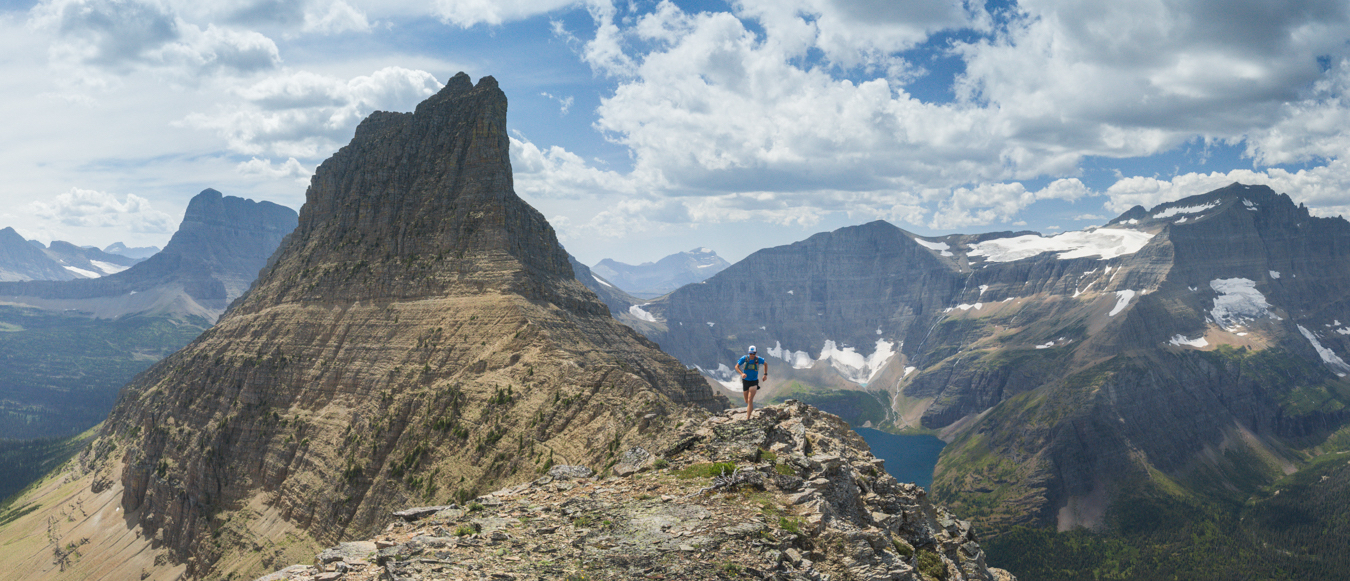
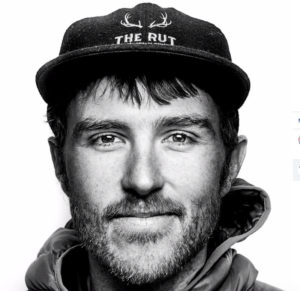
Mike Foote is a Montana-based professional ultrarunner and ski mountaineer who is best known for his inspiring performances in 100-mile ultramarathons and multiday endurance expeditions through wild landscapes. In 2018, he set the world record for the most vertical feet climbed and skied in 24 hours– a mind-blowing 61,200 feet. And in addition to his impressive athletic career, Mike is also a committed conservationist, serving on the board of directors of the Five Valleys Land Trust, an innovative conservation organization that serves the five valleys surrounding Missoula.
Mike grew up in Ohio and had never visited the American West until a life-changing college road trip took him to Moab, Utah. He instantly fell in love with the wide-open landscapes of the American West– so much so that he left college in Ohio and moved to Steamboat Springs, Colorado. During that first year in Steamboat, Mike became obsessed with the mountains– skiing, running, and enjoying all aspects of life in a Rocky Mountain ski town. Although the learning curve was steep, Mike loved every minute of his new life in the mountains, and he gradually became more and more obsessed with endurance sports. Fast forward to today, and Mike’s list of endurance accomplishments is astonishing– he’s earned podium finishes at some of the world’s most notable races, including the Hardrock, UTMB, Big Horn 100, and more.
Despite all of his world-class athletic accomplishments, Mike is an amazingly down-to-earth and humble guy. We had a wonderful conversation and managed to cover a lot in a little over an hour– topics that will be impactful to runners and nonrunners alike. We started by discussing his early years in Ohio and that fateful, life-changing trip out West. We talked about his progression in endurance sports, and his transformation from complete beginner to North Face sponsored athlete to race director of The Rut Mountain Runs. We spend a lot of time talking about mental health, and Mike graciously shares some of the techniques, books, and resources that have helped him manage the inevitable ups and downs in life and sport. We also talk about his hands-on work with the Five Valleys Land Trust, and why he has chosen to be so deeply involved in conservation. And Mike is a voracious reader, so he offers up quite a few excellent recommendations throughout the conversation.
This is an excellent episode, and I can’t thank Mike enough for being so open and thoughtful throughout the entire conversation. I hope you enjoy!
Header photo by Steven Gnam, headshot by Clayton Boyd
Download on Apple Podcasts
—
Download on Spotify
—
Download on Google Podcasts
—
Download on Overcast
—
EPISODE NOTES
Topics Discussed:
- 4:00 – Where Mike grew up
- 5:45 – What drew Mike out West
- 11:50 – What was Mike’s first year out West like
- 14:25 – When Mike first started running
- 15:45 When did Mike realize he had a talent for distance running
- 19:10 – How did Mike end up in Missoula?
- 21:20 – Mentality shift from ”just going running” (paraphrased) to professional, goal-oriented training?
- 27:35 – What drives Mike on his runs?
- 32:00 – Community of ultra-endurance events
- 35:47 – Mike getting into the race directing business
- 39:57 – How does Mike deal with the mental struggles when running.
- 46:20 – Mike’s book recommendations for setting his mind right
- 49:00 – The importance of having deep conversations about mental health
- 50:30 – Mike’s commitment to land conservation
- 59:00 – General book recommendations
- 1:02:42 – Film recommendations
- 1:06:00 – Parting words of wisdom
Information Referenced:
- Mike Foote Instagram
- Catalina Marathon
- The North Face
- Wasatch 100
- Hardrock 100
- UTMB
- VIDEO: Mike Foote breaks world record for most vertical feet skied in 24 hours
- Ben Parsons
- The Rut Mountain Runs
- Mountain & Prairie: Live in Bozeman
- Essentialism by Greg McKeown
- Tim Ferriss
- Daring Greatly, Brene Brown
- Wendell Berry
- Mary Oliver
- Hafiz
- Wherever You Go, There You Are, Jon Kabat-Zinn, PhD
- Pema Chodron
- Land Trust Alliance
- Outdoor Retailer (“OR”)
- Five Valleys Land Trust
- Collapse by Jared Diamond
- Ed’s book recommendations
- Grapes of Wrath, John Steinbeck
- East of Eden, John Steinbeck
- The Brothers K, David James Duncan
- Hamilton
Enjoy this episode? Then you might like these as well:
- Steve Casimiro – Voice of Adventure
- Chris Burkard – The Art of Suffering
- Kyle Richardson – Mountains & Music
- Juanita Vero, Part 2 – A Deep Desire to Serve
- Pete McBride – A Passion for Water & Wild Places
- Heather Hansman – Demystifying Water in the West
- Chandra Brown – Fostering Creativity Through River Adventures
- Hampton Sides – Live at the Aspen Institute
NEW WEST DISPATCH: Matt Skoglund – Ranching in the Age of COVID
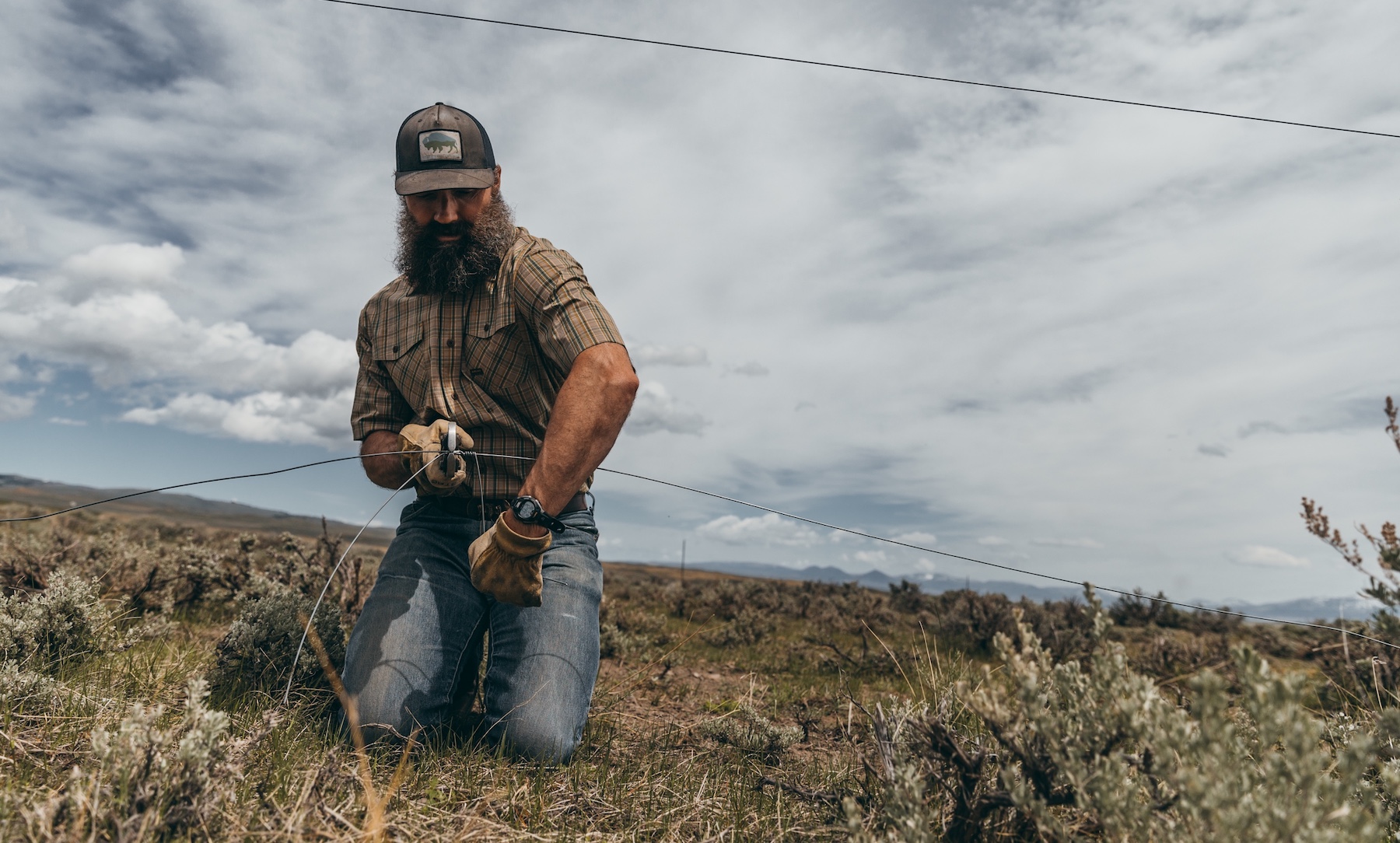
If you’ve listened to the podcast for a while, then you’re probably familiar with each episode’s general format: I have a long-form conversation with an interesting person who is doing important work in the American West. We usually spend about half of the time discussing their work and the other half discussing their personal backstory—a format that I thoroughly enjoy and seems to have struck a chord with a surprisingly large audience of listeners. The episodes are designed to be evergreen—whether you listen to them now or ten years from now, guests offer up timeless lessons you can apply to your own life.
But given our current moment in history and the public health, economic, social, and environmental challenges that have been accelerated by COVID, I’ve decided to periodically experiment with a new episode format, one that I’m calling New West Dispatches. In each New West Dispatch, I’ll speak with an expert about a very specific, current issue that is creating challenges for a specific sector of the American West. We’ll dig deep into the nitty gritty of the topic, going into more detail than usual, with the goal of gaining a better understanding of time-sensitive issues facing the West. We’ll hear firsthand stories from people on the front lines of their sectors, and discuss solutions to the problems at hand. The vast majority of Mountain & Prairie episodes will continue to follow the tried-and-true interview format, but every so often, as opportunities present themselves, I’ll look forward to getting a little more technical with Dispatches.
My guest for the first New West Dispatch is Matt Skoglund. Matt is an attorney-turned-bison rancher who joined me on the podcast last year for a fun and wide-ranging conversation about his path to founding his business North Bridger Bison. Matt came back to discuss some of the specific COVID-related challenges facing his bison business, specifically the astounding shortage of meat processing facilities throughout the American West. As you may remember, when COVID hit in March, there were endless news stories about meat shortages and breakdowns in supply chains linking producers and consumers. Although it’s not on the front page of the paper anymore, large-scale challenges persist, and Matt is in the middle of it all on a daily basis. So he was kind enough to return to the podcast to share his extensive knowledge on the subject, and to offer some potential solutions toward bolstering the food production system here in the West.
Matt covers a lot of ground in less than an hour, so be sure to check out the episode notes for a list of all the topics we discuss and links to resources. Hope you enjoy!
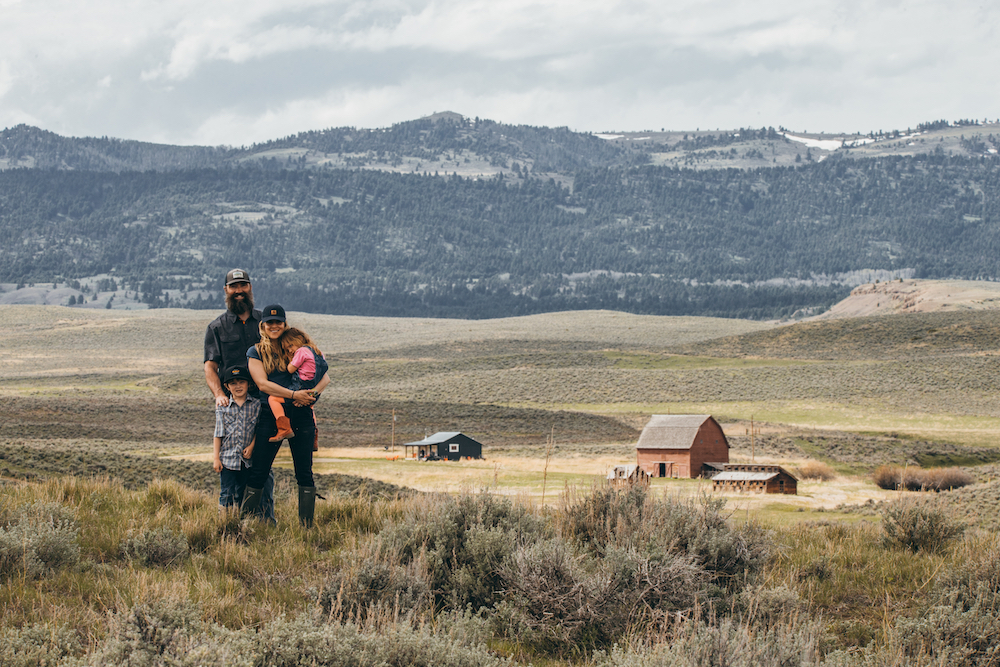
All photos by Chris Douglas for Boot Barn
Download on Apple Podcasts
—
Download on Spotify
—
Download on Google Podcasts
—
Download on Overcast
—
EPISODE NOTES
Topics Discussed:
- 4:00 – Overview of North Bridger Bison
- 8:30 – COVID’s effects on meatpacking
- 11:45 – Big outbreaks in packing plants
- 15:30 – Challenges to regenerative ag because of COVID
- 17:30 – Cause of the processing backlog
- 21:00 – Fragility of the US food system
- 23:30 – What prevents entrepreneurs from opening more processing plants?
- 26:00 – Appreciation for good meat
- 29:30 – Grazing as healing for the ecosystem
- 33:00 – Will more meat processing businesses open?
- 35:15 – Will meat processing go back to “normal” after post-COVID?
- 39:00 – Gov. Steve Bullock’s COVID relief
- 40:30 – Labor shortages
- 42:00 – The art of butchery
- 44:00 – Be intentional with impact
- 49:00 – Externalities of cheap meat
- 53:00 – Books to read about meat
- 54:30 – Productive actions to take
Information Referenced:
- North Bridger Bison
- Matt’s first Mountain & Prairie episode
- Wild Idea Buffalo
- Dan O’Brien
- Gallatin Valley Land Trust
- Natural Resources Defense Council
- COVID outbreaks at meat processing plants
- NBB Bees and Butterflies shirt
- Niche Meat Processor Assistance Network
- PRIME Act
- Governor Steve Bullock
- Miles City Community College
- The Jungle by Upton Sinclair
- Buffalo for the Broken Heart by Dan O’Brien
- Nourishment by Fred Provenza
- Kate Kavanaugh episode
- Kate Kavanaugh in the NY Times
- Ed’s “Good News” email
Enjoy this episode? Then you might like these as well:
- Duke Phillips IV – Living with the Land
- Duke Phillips III – A Vision for the New West
- Kate Kavanaugh – Regeneration & Restoration
- Daniela Ibarra-Howell – Healing the Land Holistically
- Jim Howell – Conserving and Restoring the World’s Grasslands
- Carlos Fernandez – The Power of Partnerships
VIRTUAL EVENT – In Conversation with Kate Kavanaugh
VIRTUAL EVENT – In Conversation with Kate Kavanaugh
I hope you’ll join me on Tuesday, October 27th at 7PM mountain for a wide-ranging, live video chat with my good friend Kate Kavanaugh. Kate is a farmer, entrepreneur, and regenerative agriculture advocate who co-owns and operates Western Daughters Butcher Shoppe in Denver. Since our podcast episode, she and her partner Josh purchased a farm in the northeast, where they have been living and working since early this year. Kate’s episode was one of the most popular in recent memory, so if you haven’t listened already, I’d encourage you to do so here.
Kate and I have a lot to discuss—the new farm, adjusting to life in the east, challenges around starting a farm, and how these past crazy eight months have affected everything from Kate’s outlook to the business of Western Daughters. Kate is always ready to offer up excellent book recommendations, as well as interesting ideas around nutrition and mental health. We will be devoting lots of time to Q&A, so bring your questions.
Every single time I have the pleasure of chatting with Kate, I leave the conversation inspired and educated, so I know you will too!
This event is exclusively for Mountain & Prairie Patreon supporters at the “Intense TR” ($5) level and above. To learn more about Patreon, become a patron, and access the Google Meet link for the event, click the button below:
A sincere thanks to everyone who has so generously supported the podcast through Patreon over the years– its means the world and has allowed me to expand the podcast in ways that I never thought possible!
Hope to see you on Tuesday!
Photos courtesy of Kate Kavanaugh
Juanita Vero, Part 2 – A Deep Desire to Serve
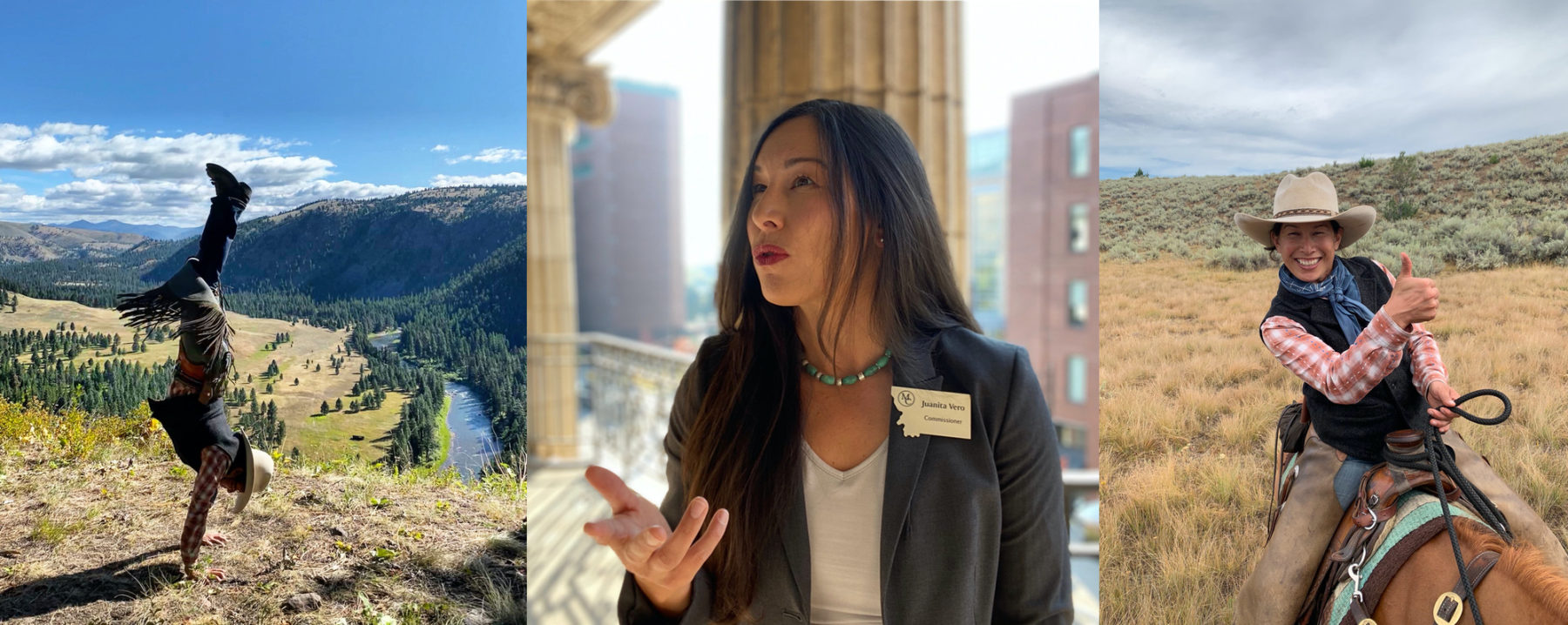
If you’re a long-time listener, then surely you remember Juanita Vero. Juanita is a fourth-generation Montana rancher, conservationist, community leader, and all-around inspiring woman. She’s also a devoted public servant, serving as a Missoula County Commissioner, where she gets her hands dirty with the critical and often not-so-glamorous work of county government. Juanita’s name will be on the ballot in Missoula County this November, where she is hoping to win a six-year term to continue her service as a Commissioner.
Juanita joined me on the podcast back in 2018, then again on stage at last year’s live podcast in Bozeman, so her personal story is probably familiar. I wanted to have her back on the show as we approach the election because her story serves as an inspiring example of how citizens can push outside of their comfort zones to lead the communities they love. As you’ll hear, Juanita had never considered assuming a public office—but when the opportunity presented itself, and she was encouraged to pursue it by fellow community leaders, she jumped at the chance. Since then, she has gone all-in and has thrived in her role as County Commissioner.
If you’re like me, you are probably overwhelmed with the negative, inflammatory news regarding politics and the upcoming election. But Juanita’s campaign and her desire to serve stands in stark contrast to much of our national discourse—she’s driven by a love of place, humility, a sense of duty, genuine curiosity, and a desire to find common ground. I think it’s important to remember that there are committed public servants in every county and city—good people who are driven not by the desire to accumulate power but by a desire to leave their communities better than they found them. Wherever you live, I hope that Juanita’s example will encourage you to engage with your local elected leaders, truly understand the candidates running for local offices, or maybe even run for office yourself. But at the least, I know you’ll enjoy listening to Juanita’s story, which will hopefully make you feel better about the world during these crazy times!
Photos courtesy of Juanita Vero
Download on Apple Podcasts
—
Download on Spotify
—
Download on Google Podcasts
—
Download on Overcast
—
EPISODE NOTES
Topics Discussed:
- 3:30 – Why and how Juanita decided to enter politics
- 9:30 – Specific experiences that let Juanita know she was ready to be a commissioner
- 13:30 – Importance of talking to her Grandfather
- 19:15 – What exactly is a county commissioner?
- 22:15 – Example of how commissioners can influence development
- 25:30 – Why she’s running for office
- 28:30 – Commissioners as true public servants
- 32:30 – COVID’s impact on Missoula County
- 34:30 – Positive effects of the “new normal” of COVID
- 36:00 – Transition from working on the land to an office job
- 39:20 – Advice for citizens who want to work productively with local government
- 42:30 – Greatest challenges and opportunities in Missoula County
- 46:15 – Smaller issues worth considering
- 48:00 – Climate change & Missoula County solutions
- 52:00 – Importance of community leadership
- 53:30 – Favorite books
- 57:15 – Favorite films
- 58:30 – Funny and surprising activities
- 59:30 – Parting words of wisdom
Information Referenced:
- Juanita Vero for Missoula County Commissioner
- Juanita Vero episodes – Part 1 and Live in Bozeman
- Missoula County
- Missoula County Commissioners
- Jim Howell episodes 1 and 2
- Will Laverack
- The Tipping Point by Malcolm Gladwell
- The Heart of Everything That Is by Bob Drury
- One Sentence Journal by Chris La Tray
- Chris La Tray episode
- Woman: An Intimate Geography by Natalie Angier
- Public Trust documentary
- Hal Herring episode
- Victor Frankl
Enjoy this episode? Then you might like these as well:
- Gabe Vasquez – Advocate for Equity in the Outdoors
- Daniela Ibarra-Howell – Healing the Land Holistically
- James Decker – Inspired Leadership in the New West
- Becca Aceto – Forging Her Own Path in the West
- Hal Herring – A Man of Words & Wild Places
- Mary Rondepierre – Melding Work, Play, and Purpose
- Jessica Lewis – Doing More With Less
Jessica Wahl Turner – Outdoor Recreation & Rural Economies
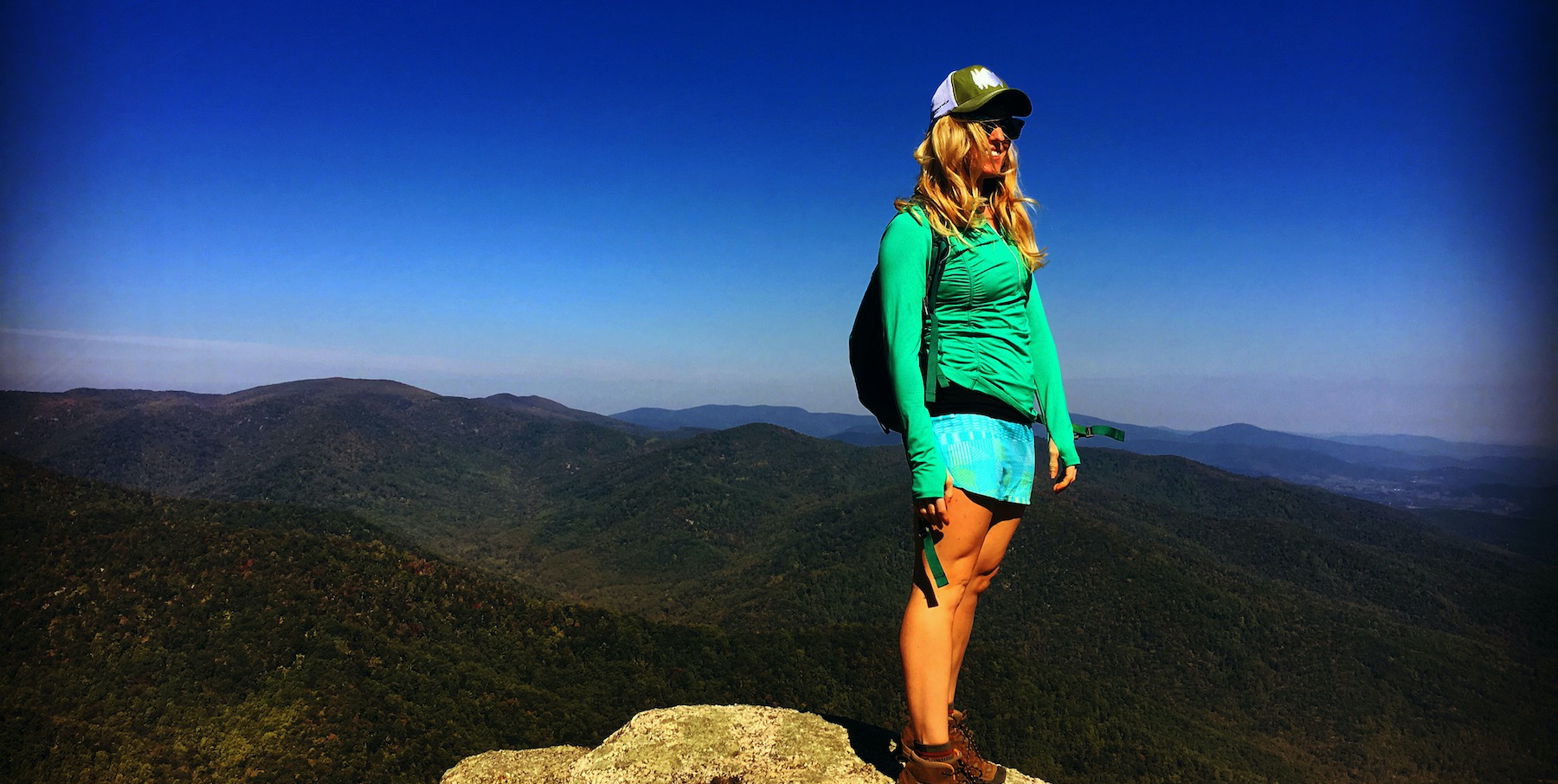
Jessica Wahl Turner is the Executive Director of the Outdoor Recreation Roundtable (ORR), America’s leading coalition of outdoor recreation trade associations and organizations. Currently, ORR is comprised of 31 national association members that serve more than 100,000 outdoor-related businesses, which is an amazing feat considering that the organization is less than three years old. Jessica and her team bring together all sectors of the outdoor economy to harness the industry’s collective power and advance issues related to conservation, outdoor access, public lands infrastructure, and much more. Whether she’s in the halls of Congress or the wide-open spaces of the American West, Jessica is a devoted, effective advocate for the outdoor industry.
This conversation is part of the Montana Governor’s Office of Outdoor Recreation’s “Business of Outdoor Recreation Summit“—a gathering of some of the most notable names in the outdoor recreation sector. Because of COVID, this year’s summit has gone virtual, but the need for collaboration and idea-sharing among industry experts has never been greater. The Outdoor Recreation Roundtable is a case study in focusing on common goals, putting aside petty differences, and overcoming challenges with new and innovative approaches. So I was thrilled to get a chance to learn exactly how Jessica has gone about leading her organization during these changing times.
Jessica and I connected on Zoom and had a fun, educational, and wide-ranging conversation about all aspects of the outdoor economy. We started by chatting about the history of ORR and precisely what the organization does. We also discussed the Great American Outdoors Act and how this landmark legislation will positively affect the outdoor industry. We talked about COVID’s effect on the outdoor economy and how ORR is working to support outdoor businesses during these unprecedented times. We also talked about how the outdoor economy contributes to rural and urban areas and how all aspects of the outdoor economy are interconnected. We also spend some time talking about Jessica’s educational and professional backgrounds, and what makes her so uniquely qualified for her current role. And as usual, we discuss favorite books, favorite outdoor adventures, and she offers some wise parting words.
This was a wonderful conversation, and I hope you enjoy. Be sure to check out the “Business of Outdoor Recreation Summit” webpage, as there are many resources, films, and other podcasts that you will find enjoyable and educational. Links to everything are in the episode notes.
Photos courtesy of Jessica Wahl Turner
Download on Apple Podcasts
—
Download on Spotify
—
Download on Google Podcasts
—
Download on Overcast
—
EPISODE NOTES
Topics Discussed:
- 3:30 – Outdoor Recreation Roundtable explained
- 8:00 – Focusing on the commonalities in the outdoor industry
- 12:00 – Impact of the Great American Outdoors Act
- 17:30 – How the upcoming election could affect the recreation economy
- 22:00 – The national interconnectedness of the outdoor economy
- 26:45 – How COVID has affected the outdoor recreation economy
- 32:00 – Balancing conservation and increased outdoor activities
- 36:30 – Future goals and measures of success for the roundtable
- 40:30 – Jessica’s education and early career
- 44:15 – Lessoned learned from the Outdoor Industry Association
- 48:45 – Advice to aspiring industry advocates/lobbyists
- 53:15 – Heroes and mentors
- 58:00 – Favorite books
- 1:01:30 – Favorite place in the outdoors
- 1:03:00 – Jessica’s parting words of wisdom
Information Referenced:
- Montana Governor’s Office of Outdoor Recreation
- Business of Outdoor Recreation Summit
- Jessica Wahl Turner on LinkedIn
- Outdoor Recreation Roundtable (ORR)
- Outdoor Industry Association (OIA)
- Patagonia
- Harley Davidson
- Great American Outdoors Act
- Land and Water Conservation Fund
- Leave No Trace
- US Department of Interior (DOI)
- US Forest Service (USFS)
- Ken Salazar
- Sally Jewell
- Anne Krcik
- The North Face
- Camber Outdoors
- New York Times
- Young Men and Fire by Norman Maclean
- Bowling Alone by Robert B Putnam
- Tribe by Sebastian Junger
- Adirondacks Park
- Adirondack 46er
- Colorado’s 14ers
- Dare to Prepare by Ronald Shapiro
Enjoy this episode? Then you might like these as well:
- Rachel VandeVoort – Harnessing the Power of Outdoor Recreation
- Gabe Vasquez – Advocate for Equity in the Outdoors
- Hal Herring – A Man of Words & Wild Places
- Chris Burkard – The Art of Suffering
- Heather Hansman – Demystifying Water in the West
- Sara Dant – A Deep Dive Into the History of the West
Steve Casimiro – Voice of Adventure
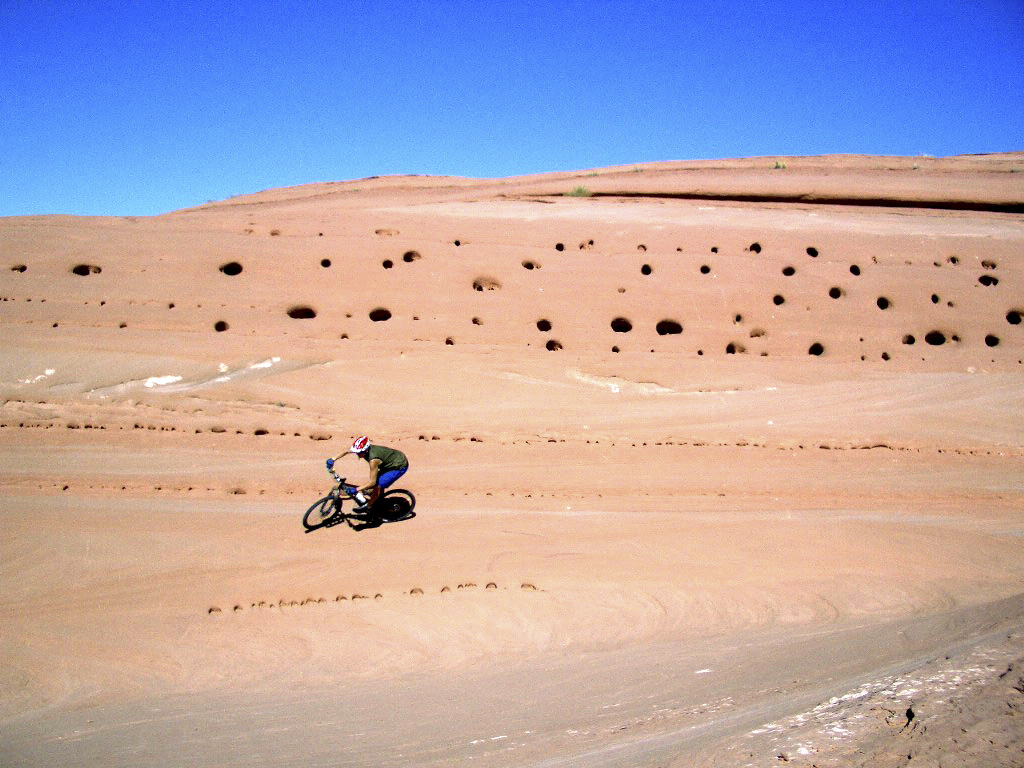
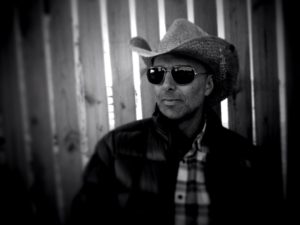
Steve Casimiro is the founder and editor of Adventure Journal, an online and quarterly print magazine devoted to outdoor adventure in all its forms. AJ began as Steve’s personal blog back in 2008—a project he created on the side while writing for National Geographic Adventure. Steve’s unique perspective and devotion to adventure writing struck a chord with the outdoor community, and AJ’s audience grew and grew. When National Geographic Adventure closed its doors, Steve decided to pursue AJ with his full professional focus, building a loyal following who is deeply devoted to AJ online and in print.
Steve grew up on the east coast, and from an early age, he was obsessed with writing, photography, and storytelling. After earning a degree in journalism, he spent his early twenties writing for traditional newspapers, including USA Today. But when presented with the opportunity to meld his passion for the outdoors with his journalism career, he left the newspaper business to join the team at the legendary ski magazine Powder. From there, Steve immersed himself in all aspects of the adventure media world, honing his craft for storytelling and dialing in his voice as a writer and editor. The culmination of these years of hard work is Adventure Journal, which is, in my opinion, one of the most essential voices in the outdoor community.
It’s no secret that I’m a massive fan of Adventure Journal. I reference it often in my weekly newsletter and suggest the quarterly print publication in my reading recommendation emails. But what I find most impressive about Steve is how he has built such a loyal community of like-minded outdoor enthusiasts—curious, thoughtful, open-minded readers who enjoy thinking deeply about the outdoors and adventure. In this conversation, Steve shares how he managed to create such a unique community and what drives him to work so hard to continue to build it. We talk about AJ’s values as a business, and we discuss his recent commitment to make AJ carbon neutral. We talk about how Steve welcomes ideas and opinions that he may not necessarily agree with, and the unique niche that AJ fills in the outdoor community. Steve also discusses how his his wife Joni, who is the AJ Art Director, has played an invaluable role in the growth of AJ. We talk about the importance of attention, the need to support independent media, what he looks for in writers, the importance of optimism, his ideas on building community, and much more.
Whether you’re a writer, photographer, business owner, community builder, or outdoor enthusiast, I can promise you that you’ll learn a lot from this conversation. And please keep an eye on my Instagram account, because I’ll be doing a giveaway of a few copies of AJ later this week. You can find a link to my Instagram Account in the episode notes.
Thanks to Steve for taking the time to join me. I hope you enjoy!
Photos by Sinuhe Xavier
Download on Apple Podcasts
—
Download on Spotify
—
Download on Google Podcasts
—
Download on Overcast
—
EPISODE NOTES
Topics Discussed:
- 4:00 – AJ’s decision to be carbon neutral
- 7:00 – Founding values of AJ
- 9:45 – Thoughts on the business decision of going carbon neutral
- 15:00 – Importance of where we focus our attention
- 20:00 – Influences on Steve’s unique approach to media and AJ
- 24:30 – AJ’s transition from personal project to full-time gig
- 26:30 – Thoughts on AJ’s tone, consistency, and content
- 30:30 – Evolution from traditional journalism to AJ
- 35:00 – Importance of doing work that is new and innovative
- 40:45 – Impactful notes and letters from AJ readers
- 41:30 – Deep feelings brought out by outdoor adventure
- 43:00 – Important example that pursuing one’s passion can set
- 46:00 – Pushing through being “stuck”
- 51:00 – Optimist or Pessimist?
- 55:45 – What Steve looks for in writers
- 1:01:30 – Importance of supporting media with your dollars
- 1:06:00 – Having high expectations of the brands you support
- 1:09:00 – Favorite books
- 1:12:00 – Parting words of wisdom
Information Referenced:
- Adventure Journal
- Subscribe to AJ
- AJ on Instagram
- Steve Casimiro
- Joni Casimiro
- AJ’s commitment to being climate neutral
- Climate Neutral certification
- The Surfer’s Journal
- Conservation Alliance
- 1% for the Planet
- Bill McKibben
- National Geographic Adventure
- Yvon Chouinard
- Let My People Go Surfing by Yvon Chouinard
- Sterling Lorence
- Powder, Bike magazines
- Steve-Brendan Leonard interview in Outside
- Brendan Leonard / Semi-Rad.com
- Chris Burkard episode
- Field Notes
- AJ Pocket Notebooks
- Craig Childs
- Terry Tempest Williams
- Peter Heller episode
- One Man’s Meat by EB White
- Peter Heller books
- The New Wilderness by Diane Cook
Enjoy this episode? Then you might like these as well:
- Peter Heller – Chasing the Flow
- Chris Burkard – The Art of Suffering
- Brendan Leonard – Grinding It Out
- Becca Skinner – Pursuing Her Passions in the West
- Hampton Sides – Live at the Aspen Institute
- Pete McBride – A Passion for Water & Wild Places
- Emilene Ostlind – Storytelling for the New West
Chris Castilian – Community, Conservation, and Colorado
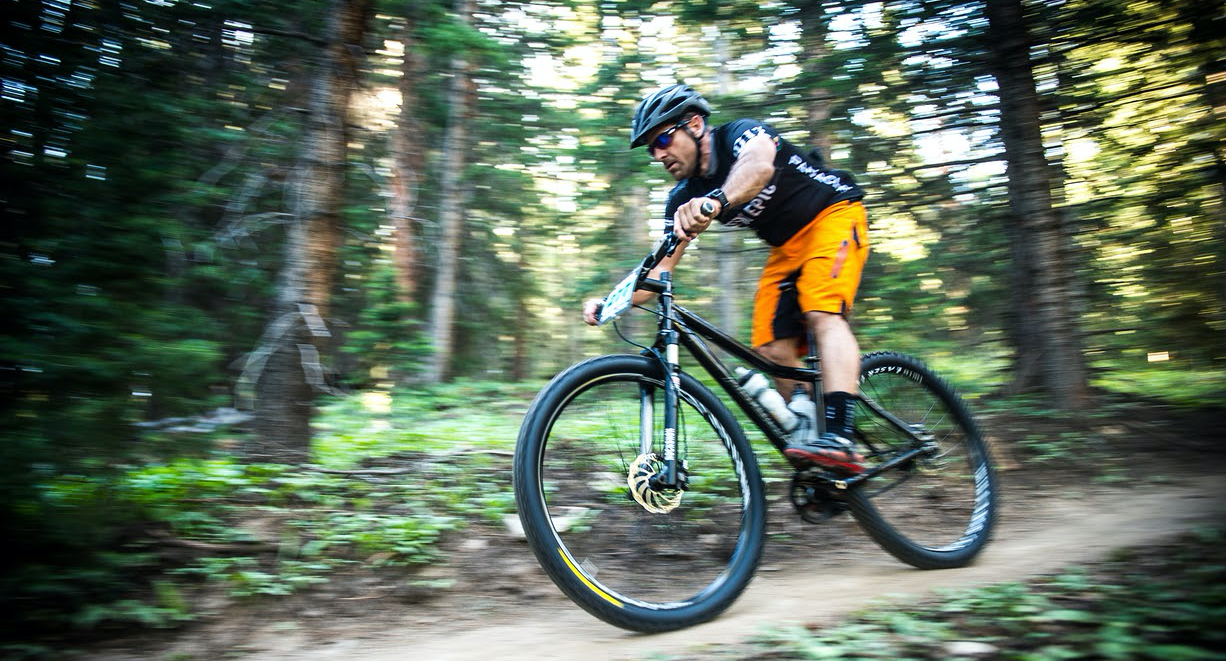
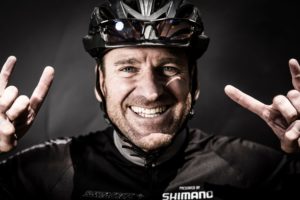
Chris Castilian is the Executive Director of Great Outdoors Colorado (also known as GOCO), an organization that has committed more than $1.2 billion toward preserving and enhancing Colorado’s parks, trails, wildlife, rivers, and open spaces. Founded in 1992, GOCO is truly a one-of-a-kind conservation funder—the organization invests a portion of Colorado Lottery proceeds into a wide variety of critical projects, with a current emphasis on issues including equitable access and community vitality. GOCO’s impact around Colorado is staggering—its funding has conserved more than 1.2 million acres, added over 47,000 acres to the state park system, protected over 1,000 miles of rivers, and much more.
Chris is a native Coloradan, and all aspects of his professional success and personal passions speak to his deep love of his home state and its wide-open spaces. Chris was formally trained as an attorney, but early is his career, he chose to focus on service rather than billing hours at a fancy law firm. He served as the Deputy Chief of Staff to Governor Bill Owens and as Director of the Colorado State Board of Land Commissioners. He also had a successful stint in the private sector, honing his business skills which have served him well at GOCO. And, as you’ll hear, his focus manifests itself in his personal life through his commitment to the outdoors and mountain biking—he’s completed the Leadville 100 mountain bike race multiple times.
Since we’re all sticking close to home these days, Chris and I connected via Skype to talk about GOCO, his career, and his thoughts on conservation in Colorado and beyond. We started with a deep dive into the history of GOCO, discussed how the organization has evolved, and talked about its goals and plans for the coming years. We also discussed how GOCO is working to address some of the current public health and social challenges here in Colorado, including equitable access to the outdoors. Chris and I spent a lot of time discussing his personal background—why he chose to pursue a service-based career, his thoughts on leadership, lessons learned from his time in the business world, and what characteristics he looks for in employees. We also discussed his love of mountain biking, the Leadville 100, our shared interest in books and history, and he offered some wise parting words to listeners.
If you care about protecting the West’s open spaces and communities, then this episode is a must listen. Enjoy!
Download on Apple Podcasts
—
Download on Spotify
—
Download on Google Podcasts
—
Download on Overcast
—
This episode is brought to you by Colorado Parks and Wildlife’s Partners in the Outdoors program. The Partners in the Outdoors program brings together diverse interests from across the entire spectrum of the outdoors to advance and balance both outdoor recreation and conservation in Colorado. The program seeks to foster alignment and trust through three cornerstone initiatives: the Partners in the Outdoors Conference, the Colorado Outdoor Partnership, and the Colorado Outdoor Principles, as well as extensive resource sharing and network building.
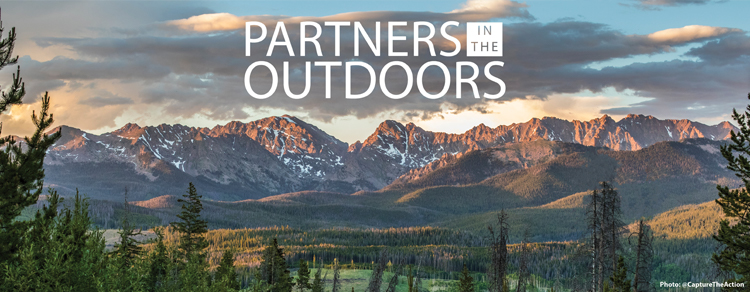
EPISODE NOTES
Topics Discussed:
- 5:00 – The history of GOCO
- 7:30 – Similar programs in other states
- 8:30 – Why conservation matters during these crazy times
- 11:15 – GOCO’s new strategic plan
- 15:30 – A new holistic approach to community and conservation
- 18:45 – The evolution of GOCO
- 21:30 – Core values of GOCO
- 24:45 – Equitable access to the outdoors
- 28:30 – GOCO’s Equity Principles
- 34:00 – Inspiring work in Leadville, Colorado
- 37:45 – Growing up in Denver
- 38:30 – Life after law school
- 40:30 – Why pursue mission-based work?
- 45:00 – Transition into the private sector
- 47:30 – Changing mindset of the oil and gas industry
- 50:00 – Benefits of having business experience
- 56:00 – What Chris looks for when hiring people
- 58:00 – Favorite books
- 1:00:45 – Mountain biking, Leadville 100, Breck Epic, and other outdoor activities
- 1:07:00 – Favorite places in Colorado
- 1:08:45 – Parting words of wisdom
Information Referenced:
- Great Outdoor Colorado
- Governor Romer
- Governor Owens
- Ken Salazar
- GOCO’s new strategic plan
- GOCO’s Values
- Dr. Nita Mosby Tyler
- Get Outdoors Leadville
- Colorado Mountain College
- Steve Farber
- Anadarko
- Russ Schnitzer episode
- Generation Wild program
- GOCO Staff
- Hampton Sides episodes 1 and 2
- Blood and Thunder by Hampton Sides
- In the Kingdom of Ice by Hampton Sides
- Nothing in the World Like It by Stephen Ambrose
- Undaunted Courage by Stephen Ambrose
- The Worst Hard Time by Timothy Egan
- The Principled Politician by Adam Schrager
- Leadville 100
- Breck Epic
- Ken Chlouber
- Gates Family Foundation
- Palmer Land Trust
- Colorado Cattlemen’s Agricultural Land Trust
Enjoy this episode? Then you might like these as well:
- Dan Prenzlow – Generous Service, Humble Leadership
- Rachel VandeVoort – Harnessing the Power of Outdoor Recreation
- Gabe Vasquez – Advocate for Equity in the Outdoors
- Rebecca Jewett, Part 2 – Conservation’s Role During Challenging Times
- Carlos Fernandez – The Power of Partnerships
- Russ Schnitzer – A Life Devoted to Western Landscapes
Anna Brones – Committed to Creativity
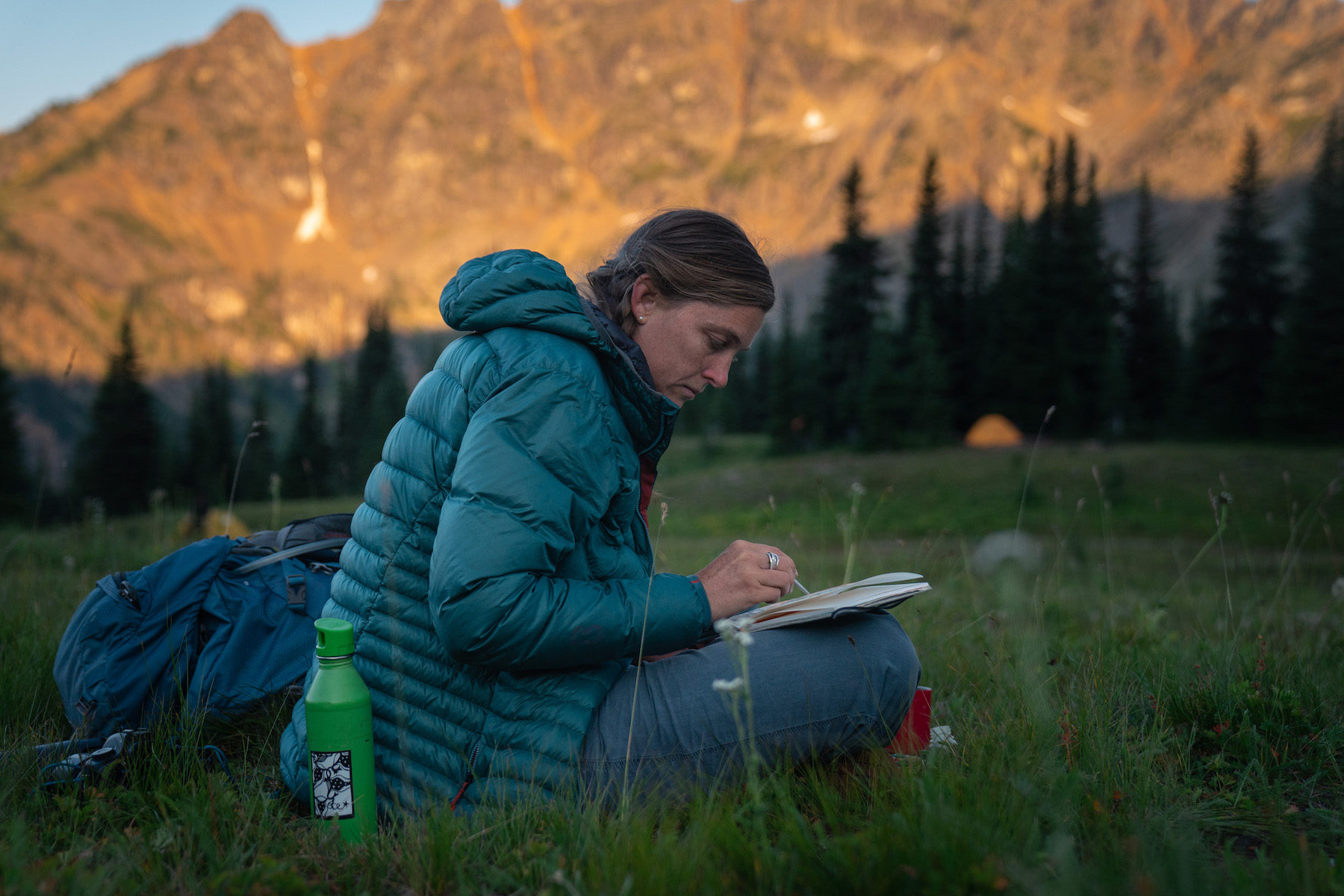
Anna Brones is a freelance journalist, author, artist, and producer who is prolific in all of her creative endeavors– she’s published four books, produced documentary films, is currently publishing a quarterly print journal about food, and much more. One of her most recent projects was the Women’s Wisdom Project, in which she showcased the wisdom of inspiring women by creating 100 papercut portraits. All of Anna’s work is authentic and enlightening, and her personal commitment to cultivating creativity is instructive and inspiring.
Growing up in the Pacific Northwest, Anna always had a deep appreciation for nature and community. She has studied, lived, and worked in many different countries and cities, but several years ago decided to return to her hometown in Washington state where she and her husband currently live. As you’ll hear in our conversation, Anna has read and thought deeply on the importance of place, and offers a unique perspective on what it means to be truly connected to a landscape or community.
Anna and I connected via Skype and had a wide-ranging conversation about her creative process, her current and past artistic projects, the importance of wilderness and nature, and much more. We started by discussing her Creative Fuel Challenge email newsletter– an amazing resource that has been very helpful to me during these past few crazy months. We also discussed her Women’s Wisdom Project–how she researched all 100 inspirational women and the process of creating 100 intricate pieces of art. Anna talked about her experience leading kids on a wilderness leadership retreat, as well as how camp and wilderness experiences in her own youth helped to shape her life and career. And as usual, we discussed favorite books and her most powerful outdoor experience, and she also offered some excellent words of wisdom for anyone with creative aspirations.
There are tons of resources mentioned in this episode. Be sure to check out the episode notes for links to everything, including a few bonus resources that Anna and I discussed before and after recording the actual episode. Enjoy!
Photo of Anna outdoors is by Julie Hotz, others courtesy of Anna Brones
Download on Apple Podcasts
—
Download on Spotify
—
Download on Google Podcasts
—
Download on Overcast
—
EPISODE NOTES
Topics Discussed:
- 3:30 – The Creative Fuel Challenge explained
- 6:30 – Why provide creative prompts?
- 7:45 – Importance of putting out regular content
- 9:30 – Time as an artist in residence
- 12:30 – Process of finding balance in life and creativity
- 15:30 – Pushing through creative blocks
- 19:00 – Fighting the reptile brain
- 20:45 – Using social media productively
- 23:45 – The Women’s Wisdom Project
- 27:45 – Process of researching women leaders
- 32:30 – The myth of having millions of ideas
- 36:00 – Anna’s early years in Washington state
- 41:00 – Importance of “place”
- 45:30 – How Anna came to appreciate the complexities of place
- 50:30 – Artists that Anna admires
- 53:30 – Anna’s experience leading wilderness trips
- 57:45 – How camp experiences benefited Anna
- 1:02:00 – Favorite books
- 1:06:30 – Most powerful outdoor experience
- 1:09:00 – Parting words of wisdom
Information Referenced:
- Anna Brones
- Creative Fuel Challenge
- Creative Fuel
- Women’s Wisdom Project
- Brendan Leonard episode
- Brendan Leonard creative prompt
- The Nature Fix by Florence Williams
- Blue Mind by Wallace J Nichols
- Wendell Berry
- Afghan Cycles
- Lisa Congdon
- Hilma af Klint
- Beyond the Visible
- The Overstory by Richard Powers
- Daily Rituals by Mason Currey
- Daily Rituals: Women at Work by Mason Currey
- How to Do Nothing by Jenny Odell
- Deep Work by Cal Newport
- The Summer Book by Tove Jansson
- IndieBound
- NOLS
- Outward Bound
- Nikki McClure
- Hannah Viano
- Wasteland
- Story of Plastic
Enjoy this episode? Then you might like these as well:
- Jillian Lukiwski – Art and Adventure in the American West
- Cate Havstad – Cultivating Creativity & Craftsmanship
- Becca Skinner – Pursuing Her Passions in the West
- Brendan Leonard – Grinding It Out
- Becky Edwards – Amplifying the Power of Women in the West
- Jessica Lewis – Doing More With Less
- Logan Maxwell Hagege – Artistic Evolution
Why Do You Read So Many Books?
Why Do You Read So Many Books?
I’m surprised by how often people ask me this question, and even more surprised by my inability to give them a concise, sensible answer. Reading has long been one of my top priorities, so it’s time that I figure out why the hell I do it.
A while back, I tried to answer the question of how I read so many books, but Why? is a much more interesting question. So here are a few thoughts on why I choose to spend an inordinate amount of time with my nose in a book. [And each thought is followed by an excellent book that I associate with each point, for one reason or another.]
- The Boring Antidote – I’m lucky to know many interesting people, and, without exception, all of them are intensely curious. The vast majority of them satiate that curiosity through reading, and most of them read a lot. The same goes for historical figures whom I admire. If imitation is the most sincere form of flattery, then these folks should feel uber-flattered—I’m trying to be a minor-league version of them. [Team of Rivals: The Political Genius of Abraham Lincoln by Doris Kearns Goodwin]
- Focus Barometer – Reading takes focus. And if I’m not reading as much as I’d like, it’s usually because I’ve lost focus in other aspects of my life. Whether it’s skipping my meditation, procrastinating, or letting down my guard with social media, a long stretch of no reading is a warning signal that something else is off. Once I identify and remedy the sloppiness, my focus improves and, whaddya know, the reading resumes. [Deep Work: Rules for Focused Success in a Distracted World by Cal Newport]
- Art of Conversation – Back when I was selling ranches, my clients would run the gamut from fancy-pants CEOs to salt-of-the-earth ranchers. And because I’d read everything from the biography of Warren Buffett to treatises on livestock grazing, I was never at a loss for substantive topics to discuss, no matter who the client was. It worked in sales; it works at parties; it works on the podcast; hell, it works whenever you want to be an engaged human being! [Raising the Bar: The Story of Clif Bar & Co. by Gary Erickson]
- Bye-Bye Shyness – Years ago, I considered myself shy, and I’m still a strong introvert. Building on the point above, I’ve found no better solution to shyness than knowing that I have an extensive source of topics to discuss with pretty much anyone. Or better yet, I can ask a cogent question to jumpstart a conversation. People love to talk about themselves, so I tee up a substantive question, and voilá! We’ve got ourselves a non-awkward, usually enjoyable conversation. [The Snowball: Warren Buffett and the Business of Life by Alice Schroeder]
- Priority Check – I’m always tempted to fall back on the trusty ol’ excuse of “I’m too busy.” Nonsense! Reading is a high priority for me—miles above social media, TV, internet news, and other electronic tomfoolery. There is ALWAYS time to read ten pages a day. If I cannot find the time, it is another blaring warning that my priorities have veered into the gutter, and I’m not using my time wisely. [Getting Things Done: The Art of Stress-Free Productivity by David Allen]
- Feel Better Today – Just as reading can be the canary in the coal mine for my focus levels, it can also be a trusted tool to maintain or enhance focus. If I catch myself mindlessly scrolling Instagram or feeling the siren call of prank videos on Youtube, 15 minutes of focused reading is usually all I need to snap out of the Zuckerberg-induced delirium. [The Craving Mind: Why We Get Hooked & How We Can Break Bad Habits by Judson Brewer]
- Feel Better Tomorrow – Almost everything I do that’s good for me is not fun in the moment. Eating well, running, meditation—for some odd reason, I dread it all. But the next day, without exception, I’m always glad that I forced myself to do whatever needed to be done. So, the idea of “tomorrow I’ll be glad I did this” drives all of my essential activities, including reading. [The Art of Taking Action: Lessons from Japanese Psychology by Gregg Krech]
- Brain Aerobics – I spend many hours per week running, lifting heavy things, and watching what I eat, all for the sole purpose of keeping my body functional and not too gross looking. But my brain is obviously much more important than my biceps, so it deserves some attention too. A few minutes of focused reading is the least I can do to keep that three-pound grey blob in decent shape. [The Art of Strategy: A Game Theorist’s Guide to Success in Business and Life by Avinash Dixit and Barry Nalebuff]
- Zoom Out – We’re living in kooky times, that’s for sure. But if there’s one takeaway from my reading of history, it’s that human kookiness is a constant. Having some perspective on just how bad things have been gives me comfort that we humans can find answers to our current problems, no matter how overwhelming they may seem in the moment. [Birth: The Surprising History of How We Are Born by Tina Cassidy]
- RESIST Nonsense – In the age of tweets, hastily written news, sensational clickbait, and inflammatory “hot takes,” reading is a refuge from all of that surface-level foolishness. Reading is my commitment to depth, my serious attempt at mindful comprehension, and my stand against the tsunami of internet bullshit. [Ten Arguments For Deleting Your Social Media Accounts Right Now by Jaron Lanier]
- Evolve – If I were to compare my 42-year-old self to my 22-year-old-self, the differences are stark. Political leanings, value systems, spiritual practices, athletic goals, philosophical frameworks, and other points of reference—by many standards, I’m a different person. This significant personal evolution is a direct result of reading curiously and voraciously. And I hope that the evolution and growth continue for many decades to come—I know that at a minimum, the reading will. [The Autobiography of Malcolm X by Malcolm X]
- Intellectual Humility – The deeper and more broadly I read, the more I realize how little I actually know. In fact, with each passing year, the ratio of “what I know” to “what I know I don’t know” skews more and more toward the “don’t know” category. It’ll be difficult for me to morph into a stuck-in-my-ways, know-it-all curmudgeon when I’m continually facing the fact that I don’t actually know a damn thing. [Surely You’re Joking Mr. Feynman: Adventures of a Curious Character by Richard Feynman]
- No Reading, No (Good) Writing – Stephen King said, “If you want to be a writer, you must do two things above all others: read a lot and write a lot.” Nowadays, we are all writers, whether we’re composing another work email or the next New York Times bestseller. I spend a large chunk of my professional time writing, and I credit any minor success I’ve had to my deep commitment to reading. [On Writing: A Memoir of the Craft by Stephen King]
- Learn Some Stuff – While I have no dreams of becoming Jeopardy’s next Ken Jennings, it’s satisfying to feel marginally informed across a broad spectrum of topics. The fact-collection aspect of reading is by far my least important reason for doing it, but I’d be lying if I claimed not to enjoy dominating a few Jeopardy categories from time to time. [A Short History of Nearly Everything by Bill Bryson]
So there you have it. Not concise, and possibly not sensible. But at a minimum, I hope these ramblings encourage you to read a few more pages than you would have otherwise.
“I am part of everything I have read.” – Theodore Roosevelt
Carlos Fernández – The Power of Partnerships
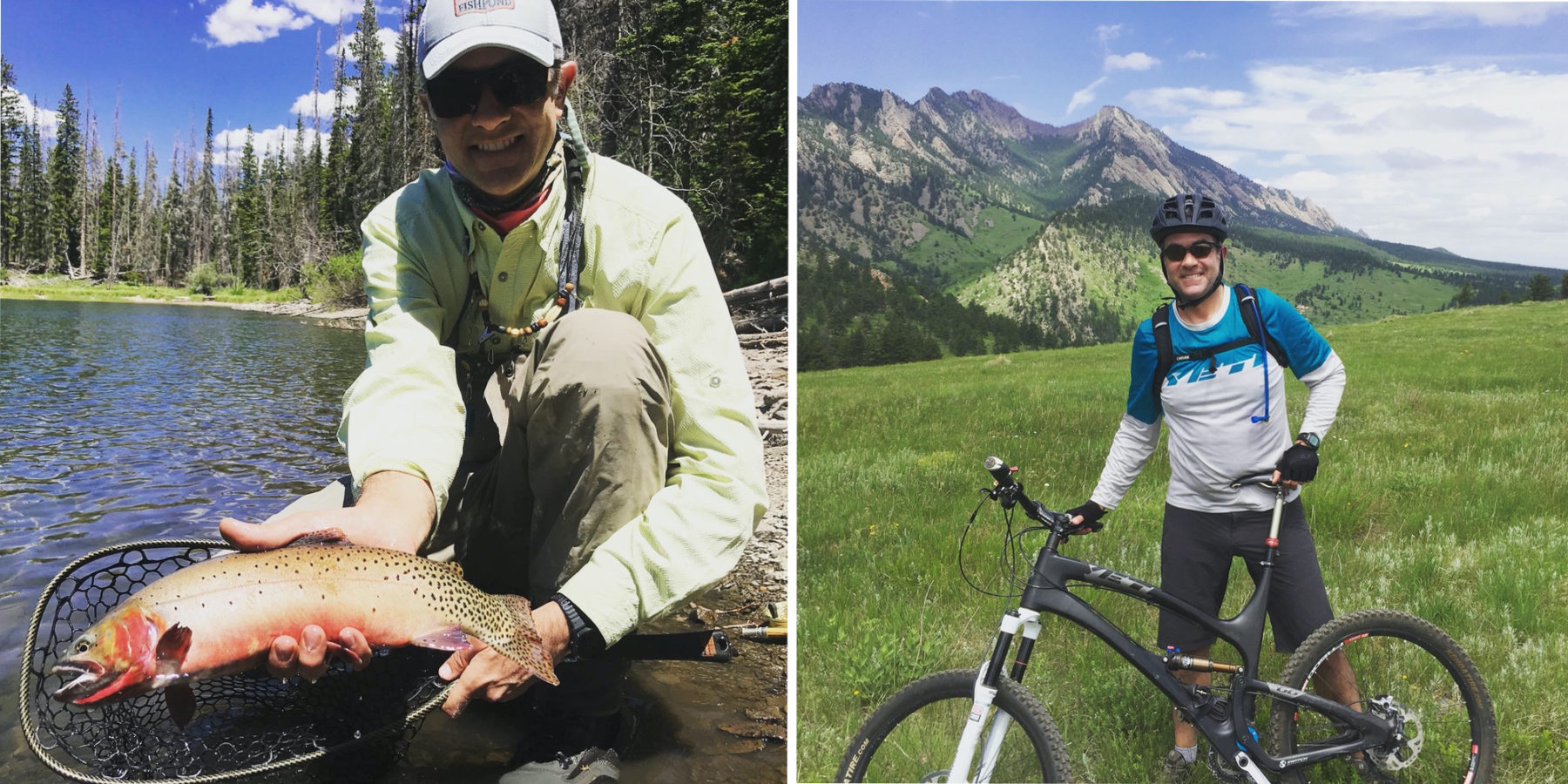
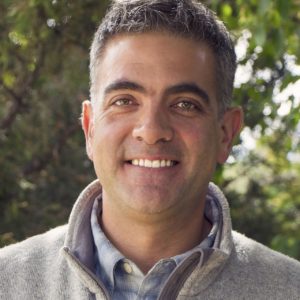
Carlos Fernández is the State Director for the Nature Conservancy in Colorado, where he and his team build alliances that advance conservation outcomes both in Colorado and around the world. Building on his formal training as an attorney, Carlos has had a long and successful career in conservation that extends far beyond the American West. He has worked extensively in his home country of Argentina, both as the Nature Conservancy’s Southern Andes Conservation Strategies Manager and as the Patagonia Program Manager. Since taking the helm in Colorado in 2015, Carlos and TNC have enjoyed many notable achievements—everything from protecting large swaths of native grasslands to helping to create Colorado’s newest state park.
Carlos grew up in Mendoza, Argentina, an agricultural region known for producing some of the world’s best beef and exceptional Malbec wine. After a childhood spent hunting and fishing along the base of the Andes Mountains, Carlos trained as an attorney and went on to practice law for large international law firms in Buenos Aires and Washington DC. Several years into his career, Carlos realized that the legal profession was not providing deep fulfillment that he needed from a job—so he made the career switch into conservation and has never looked back.
Carlos and I had a fascinating conversation that I know you’ll enjoy. We started by discussing the Nature Conservancy, and specifically what the organization does both globally and here in Colorado. We then chat about several of TNC’s recent successes, including the creation of Yampa River Fund and TNC’s critical role in acquiring and protecting the 19,200-acre Fisher’s Peak property, which will soon be Colorado’s newest state park. Carlos talks about the importance of partnerships in conservation, with other land trusts, governmental organizations, and local communities. We then discuss the future of conservation in the West and the challenges and opportunities facing the region in the next 30 years. Carlos and I both have five-year-old daughters, so we talk a bit about fatherhood and the outdoors’ role in raising children. And as usual, we discuss favorite books, films, his favorite places in Colorado, and he offers some actionable words of wisdom.
This is an excellent episode, full of optimism, inspiration, and educational resources. Be sure to check out the episode notes for links to everything we discuss. Enjoy!
Download on Apple Podcasts
—
Download on Spotify
—
Download on Google Podcasts
—
Download on Stitcher
—
This episode is brought to you by Colorado Parks and Wildlife’s Partners in the Outdoors program. The Partners in the Outdoors program brings together diverse interests from across the entire spectrum of the outdoors to advance and balance both outdoor recreation and conservation in Colorado. The program seeks to foster alignment and trust through three cornerstone initiatives: the Partners in the Outdoors Conference, the Colorado Outdoor Partnership, and the Colorado Outdoor Principles, as well as extensive resource sharing and network building.

EPISODE NOTES
Topics Discussed:
- 5:00 – The Nature Conservancy explained
- 9:30 – TNC’s mission in Colorado
- 10:30 – Yampa River Fund explained
- 16:30 – Importance of community in conservation
- 19:30 – Fishers Peak State Park
- 26:00 – TNC and equitable access to the outdoors
- 28:30 – The importance of partnerships
- 30:45 – Civic duty of partnerships
- 32:00 – Colorado Outdoor Partnerships
- 35:00 – Early years in Mendoza, Argentina
- 38:00 – Transitioning from corporate law into conservation
- 41:30 – Moving to Colorado
- 42:30 – Carlos’s unique professional background
- 46:00 – Conservation in the time of COVID
- 48:45 – Heroes and mentors
- 52:00 – Advice for people transitioning from the private sector into non-profits
- 55:30 – Envisioning the future of conservation
- 59:30 – Favorite books
- 1:04:00 – Favorite films
- 1:05:45 – Carlos’s favorite outdoor activities
- 1:07:00 – Rediscovering the outdoors through your kids’ eyes
- 1:08:00 – Favorite location in the West
- 1:10:30 – Parting words of wisdom
Information Referenced:
- Carlos Fernandez
- The Nature Conservancy
- Sydney Macy
- Ken Salazar
- Great Outdoors Colorado (GOCO)
- Great Sand Dunes National Park
- TNC 13ers Young Professionals Group
- Yampa River Fund in the news
- The Carpenter Ranch
- Big Agnes
- Fishers Peak project
- Trust for Public Land
- Governor Jared Polis
- Gabe Vasquez episode
- Keep it Colorado
- Rebecca Jewett episode
- Colorado Outdoor Partnership
- SHIFT
- Mendoza, Argentina
- Gandhi: An Autobiography
- Governor Bill Ritter
- Ed’s book recommendations email
- Where the Water Goes by David Owen
- Cadillac Desert by Marc Reisner
- The Emerald Mile by Kevin Fedarko
- Team of Teams by Stanley McChrystal
- The Future We Choose by Christiana Figueres
- Designing Climate Solutions by Hal Harvey
- Essentialism by Greg McKeown
- Planet Earth II
- Delta Dawn by Pete McBride
- Pete McBride episode
Enjoy this episode? Then you might like these as well:
- Rebecca Jewett, Part 2 – Conservation’s Role During Challenging Times
- Daniela Ibarra-Howell – Healing the Land Holistically
- Emilene Ostlind – Storytelling for the New West
- Heather Hansman – Demystifying Water in the West
- Russ Schnitzer – A Life Devoted to Western Landscapes
- Alexis Bonogofsky – Taking a Stand for the West
David Gessner, Part 3 – A Confluence of Conservation Ideals
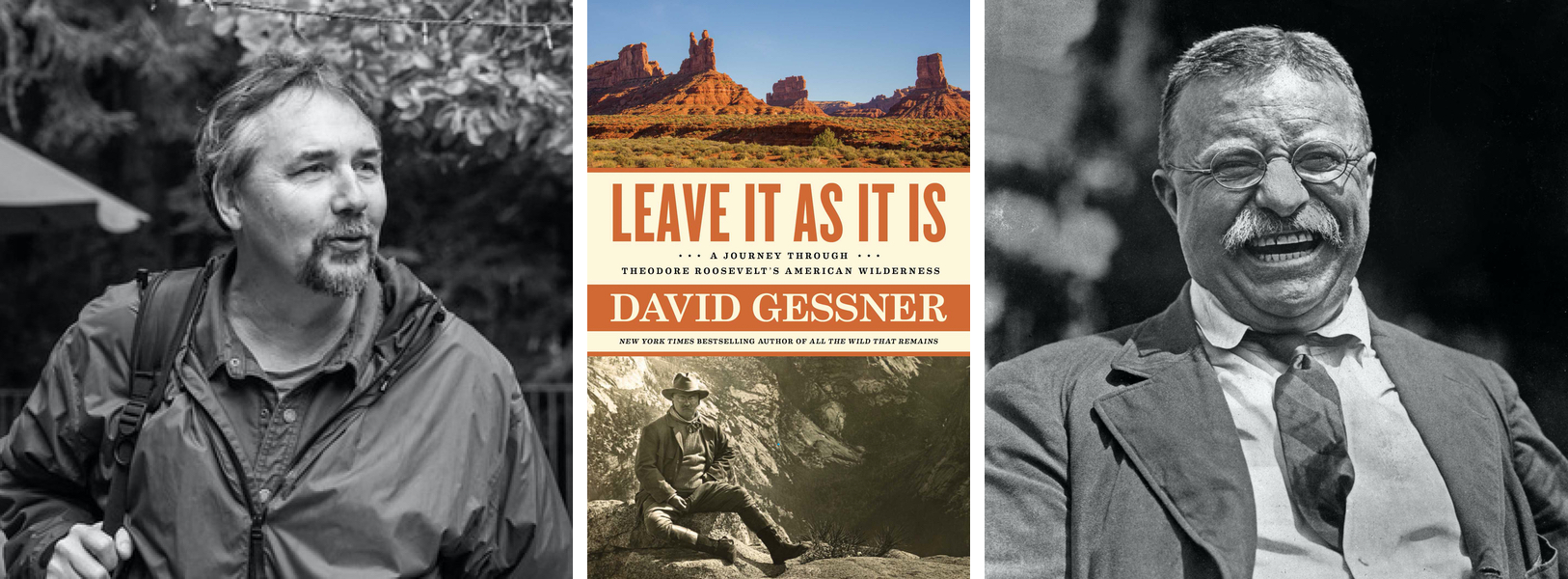
David Gessner is back for his third appearance on the podcast, and this time we are discussing his brand new book Leave It As It Is: A Journey Through Theodore Roosevelt’s American Wilderness. Most long-time listeners will remember David’s past two episodes– we discussed everything from Edward Abbey and Wallace Stegner to his daily writing rituals and his hand-built coastal writing shack. If you haven’t listened to those first two episodes, I encourage you to do so—they are chock-full of wisdom, good humor, and inspiration to fight to conserve the places you love. But first, take a listen to this episode, as it offers some timely insights into this current moment in history.
In this episode, we spend the full hour discussing his new book and digging into the good, the bad, and the ugly of Theodore Roosevelt’s legacy. As many of your know, I’ve read way-too-many TR books, and Leave It As It Is offers the most balanced, clear-eyed examination of the man that I’ve read to date. It’s not a strict biography or historical examination of TR, although there’s plenty of both within the pages. Rather, it’s David’s search to capture the best of TR’s conservation ethos, to discard the worst, and to use the balance to build a new, holistic model for conservation and environmental justice. David melds together a “confluence of ideals” that acknowledges the wrongs of the past and sets an equitable, sustainable course for the future. During this time when we are rightfully reexamining many of our country’s revered historical figures, Leave It As It Is provides a valuable, well-timed deep dive into the complexities of TR and his influence on conservation in the United States.
Although an hour-long interview is no substitute for reading the book, I believe that this conversation will give you a good taste of the fresh and unique perspective that David brings to the well-worn subject of Theodore Roosevelt. We start by discussing the relevance of studying TR now, in the midst of a global pandemic, economic crisis, and social turmoil. David also explains the series of events that led him to begin writing this book, a multi-year project that took him from Bears Ears to Yosemite with many stops in between. We talk in-depth about TR’s unacceptable views and treatment of Native Americans, some of the hypocrisies that defined TR’s life, and why David chose to stare these uncomfortable facts in the eye rather than just make excuses, as many biographers do. David discusses how TR’s idea of the Strenuous Life has helped define his own life, and how writing this book has encouraged David to become more of an activist for specific causes. We also talk about the removal of the TR statue in New York, the idea of the Confluence of Ideals, and David offers up a long list of further reading on TR.
I loved every minute of this conversation, and I highly encourage you to read Leave It As It Is. It’s an important book that is perfect for this important time in history. Hope you enjoy!
Download on Apple Podcasts
—
Download on Spotify
—
Download on Google Podcasts
—
Download on Stitcher
—
EPISODE NOTES
Topics Discussed:
- 5:00 – What is the value of studying TR during this moment in history?
- 9:00 – The Antiquities Act explained
- 12:30 – Why read biography?
- 14:00 – TR’s attitude toward Native Americans
- 17:00 – Importance of open conversation and hypocrisy
- 18:30 – “Walking the ridge”
- 20:00 – David’s “What would Teddy do?” list
- 21:00 – Why David had to write this specific book
- 27:00 – “Confluence of Ideals”
- 32:00 – Importance of living strenuously
- 33:30 – Combining books and adventure
- 37:30 – Focused action
- 39:30 – Morris and McCullagh’s TR work
- 41:30 – Thoughts on the removal of the NYC TR statue
- 46:00 – TR as an effective, energetic liberal
- 49:30 – Backstory on the title “Leave It As It Is”
- 52:30 – Who wins in a TR vs. Trump fight?
- 55:00 – How did writing this book change David?
- 58:00 – Activists that David admires
- 59:30 – Additional recommended books on TR
Information Referenced:
- Leave It As It Is: A Journey Through Theodore Roosevelt’s American Wilderness by David Gessner
- David Gessner
- All of David’s previous books
- David’s First and Second Mountain & Prairie episodes
- Washington Post John Muir article
- Red Rock Testimony book
- Edmund Morris
- Brad Watson
- Brad Watson obituary, written by David
- Bob Richardson
- John Muir
- Removal of the TR statue
- Pulling Down Our Monuments by Jason Mark
- Sunrise Movement
- Bill McKibben
- Rick Bass
- The Rise of Theodore Roosevelt by Edmund Morris
- Mornings on Horseback by David McCullough
- Theodore Roosevelt: A Strenuous Life by Kathleen Dalton
- The Crowded Hour by Clay Risen
- TR: Preacher of Righteousness by Joshua David Holly
- Red Rock Stories edited by Stephanie Trimble
- Edge of Morning edited by Jacqueline Keeler
- Ceremony by Lesley Silco
- The Western Paradox by Bernard DeVoto
- House Made of Dawn by Scott Momaday
- Beyond the Hundredth Meridian by Wallace Stegner
- The Professor’s House by Willa
- Books by Theodore Roosevelt
Enjoy this episode? Then you might like these as well:
- Sara Dant – A Deep Dive Into the History of the West
- Hampton Sides – Live at the Aspen Institute
- Brian Calvert – In-Depth Journalism in the New West
- Russ Schnitzer – A Life Devoted to Western Landscapes
- Heather Hansman – Demystifying Water in the West
- Mark Kenyon – A Passion for Public Lands
- Gabe Vasquez – Advocate for Equity in the Outdoors
Becky Edwards – Amplifying the Power of Women in the West
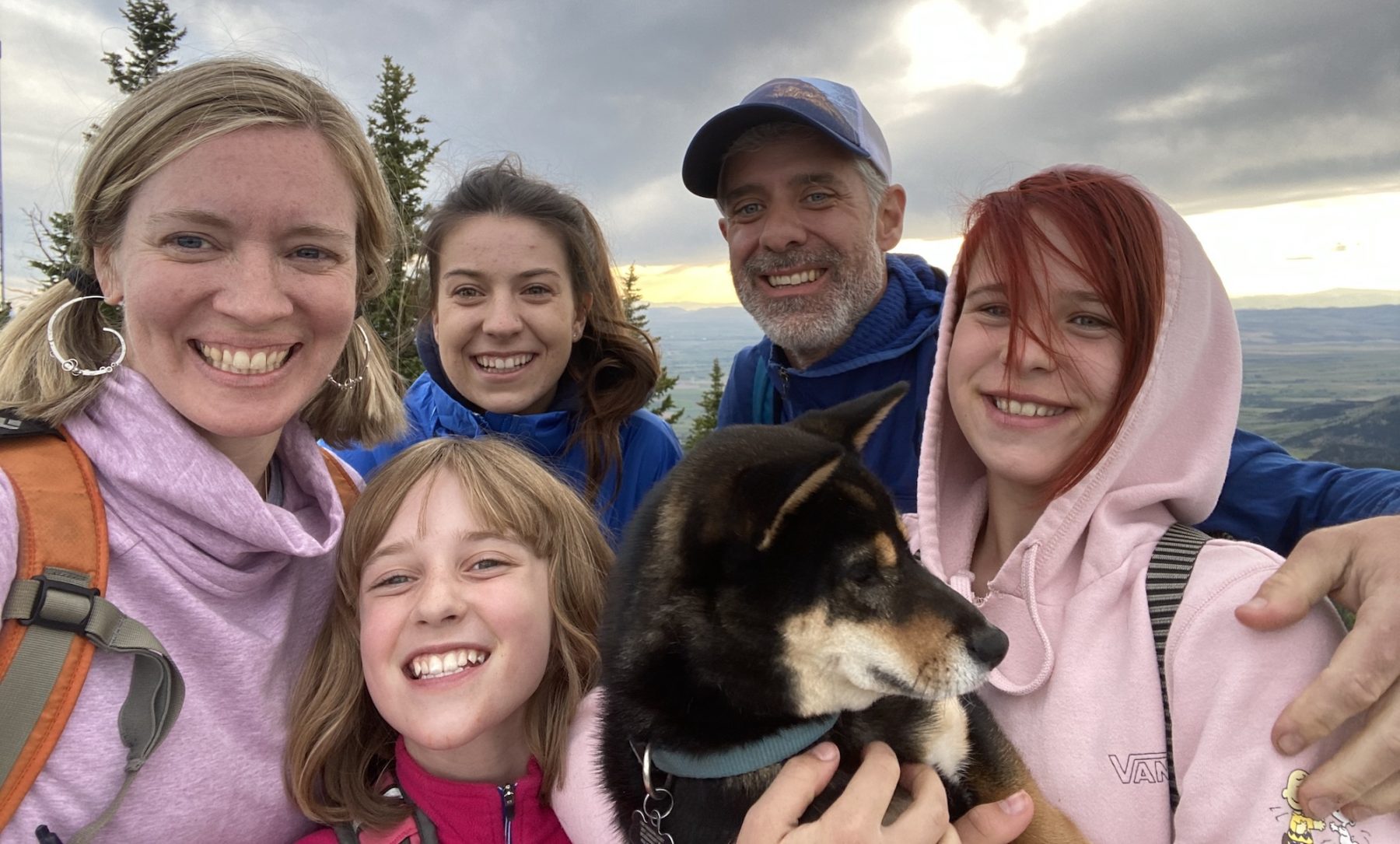
Becky Edwards is the Executive Director of the Mountain Mamas, an organization whose mission is to amplify women’s voices into a movement to ensure that kids grow up in a healthy climate with clean air and access to public lands. Operating out of both Montana and Colorado—and currently expanding throughout the West—the Mountain Mamas harness the power of mothers to advocate to solve some of the West’s most pressing conservation and environmental challenges. Whether helping to garner support for the recently passed Great American Outdoors Act or fighting for clean water in our Rocky Mountain rivers, the Mountain Mamas have become a formidable force for good in the West.
Becky grew up in Iowa but moved West to pursue her passion for climbing and mountaineering. After many years of being single-mindedly focused on life in the big mountains, her priorities drastically shifted with her daughter’s birth. No longer was she focused on big accents, but instead on making the world a better place for her little girl. And it’s worth noting that Becky’s early years of motherhood were no walk in the park—she spent many years as a single mother while simultaneously starting several successful businesses as well as the Mountain Mamas. But despite all of the challenges, Becky never gave up and built an impactful movement that is spreading across the West.
We caught up via Skype the day after the House of Representatives passed the Great American Outdoors Act, so we started out talking about that victory and its impacts on conservation and recreation. Becky is very gifted at explaining complicated legislative jargon, so she graciously and entertainingly walks me through many of the details around the Land and Water Conservation Fund, the importance of its permanent funding, and more. We discuss the importance of advocacy work with elected officials, and she offers up practical advice for anyone who wants to become more involved in guiding their elected officials on important issues. We also discuss her journey as a mother, as well as her journey as a woman in the conservation sector. Finally, we talk about the need for more diversity in conservation, and why now is a wonderful opportunity for positive change.
This was such a fun conversation—I think you’ll find it equal parts educational, inspiring, and empowering. Hope you enjoy.
Photos courtesy of Becky Edwards
Download on Apple Podcasts
—
Download on Spotify
—
Download on Google Podcasts
—
Download on Stitcher
—
EPISODE NOTES
Topics Discussed:
- 5:00 – Mountain Mamas explained
- 6:00 – Background of the organization
- 9:30 – Land and Water Conservation Fund explained
- 13:00 – What does “fully funding” the LWCF mean?
- 17:00 – Ability of groups to do conservation rather than fight for $$
- 19:00 – Importance of advocacy and discussions with Congress
- 23:45 – Practical tips for advocating for your cause
- 27:00 – The vital role of the outdoors during Covid
- 29:30 – Importance of “finding the area of commonality”
- 32:00 – Transitioning the Mamas into advocacy work
- 37:00 – Becky’s journey as a mother
- 42:30 – Decision to start a business while being a single mother
- 47:00 – The driving force behind Becky’s career
- 50:00 – Importance of storytelling
- 53:30 – Need for increased diversity and inclusion in conservation
- 58:00 – Opportunities that will arise from this moment in history
- 59:30 – Heroes
- 1:01:30 – Favorite books
- 1:03:30 – Favorite films
- 1:06:00 – Parting words of wisdom
Information Referenced:
- Becky Edwards
- Mountain Mamas
- Mountain Mamas on Instagram
- Great American Outdoors Act
- Land and Water Conservation Fund
- Conservation Easements
- John Dingell Act
- Blackfoot Clearwater Stewardship Act
- Sapiens by Yuval Noah Hurari
- Sally Jewell
- Senator Jon Tester
- Winnie the Poo by AA Milne
- Charlotte’s Web by EB White
- Travels with Charley by John Steinbeck
- East of Eden by John Steinbeck
- Some Kind of Courage by Dan Gameinhart
- Brendan Leonard episode
- How to Run 100 Miles film
- Run Rabbit Run 100 miler
Enjoy this episode? Then you might like these as well:
- Juanita Vero – A Deep Love of Place
- Becca Skinner – Pursuing Her Passions in the West
- Gabe Vasquez – Advocate for Equity in the Outdoors
- Kate Kavanaugh – Regeneration & Restoration
- Live in Bozeman – Cate Havstad, Jillian Lukiwski, Becca Skinner & Juanita Vero
- Jessica Lewis – Doing More With Less
- Auden Schendler – The Optimistic Pragmatist
- Emilene Ostlind – Storytelling for the New West
Ivan McClellan – A New Look at the Old West
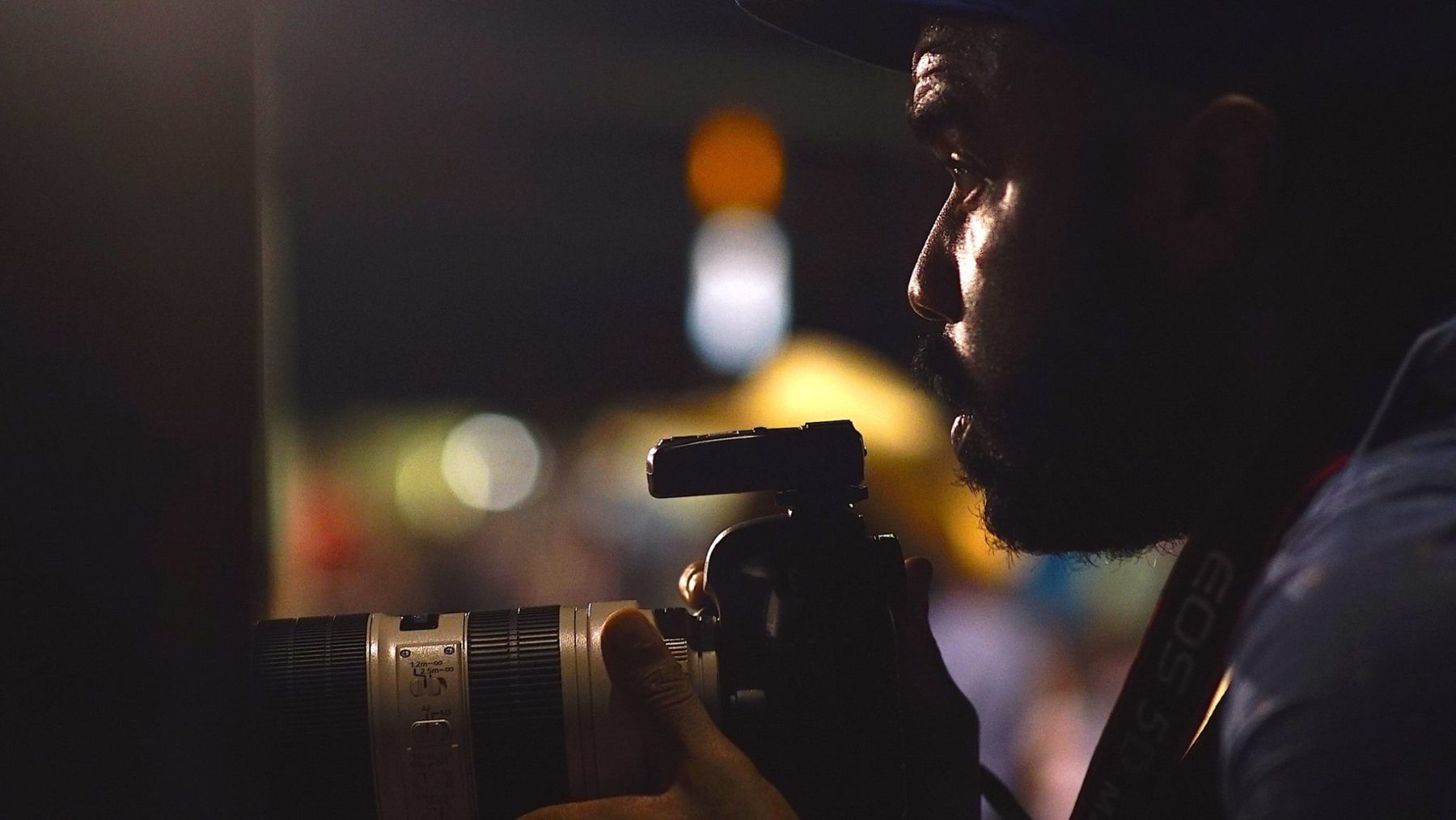
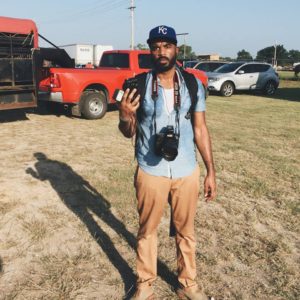
(Photo credit: The Black Cowboy)
Ivan McClellan is a professional photographer and the creator of the Eight Seconds Project, a storytelling project with the goal of extending the cowboy icon to include people of color. Ivan started the project back in 2015, after a series of chance encounters led him to an all-black rodeo in Oklahoma. Over the course of photographing the event, he became enamored with the black cowboy way of life and obsessed with documenting this unique subculture. In the years since, the Eight Seconds Project has garnered the attention of iconic western brands such as Stetson and Wrangler, and Ivan’s work has helped to tell the story of black cowboys to a nationwide, mainstream audience.
A Kansas City native, Ivan grew up in a tough neighborhood were gangs and violence were the norm. Just after high school, he headed east to New York City, where he studied and worked in the arts for many years. A career transition into the advertising business led him to Portland, where he currently lives with his wife and two children. Ivan juggles many commitments—family, a career in advertising, and his photography projects—but through hard work, mindfulness, and obsession, he somehow manages to keep all the balls in the air and continues to evolve as an artist and storyteller.
Ivan and I connected via the internet for a wide-ranging and enlightening conversation. We started out talking about the genesis of the Eight Seconds Project and how a random conversation at a party started the entire project. We talk about Black Cowboy culture, how he came to learn about the community’s deep roots and its ties to the history of the United States and the West. Ivan shares some thoughts on the importance of having creative control over projects, and how hard work, year after year, allowed him to find his true voice as a storyteller. We also chat about mindfulness and how mindfulness practice has improved Ivan’s life and creative output. As usual, we discuss favorite books, films, and Ivan offers some timely words of wisdom.
I loved this conversation, and I felt like it got better and better with each minute. Be sure to check out the episode notes for all of the subjects we covered and links to everything discussed. Hope you enjoy!
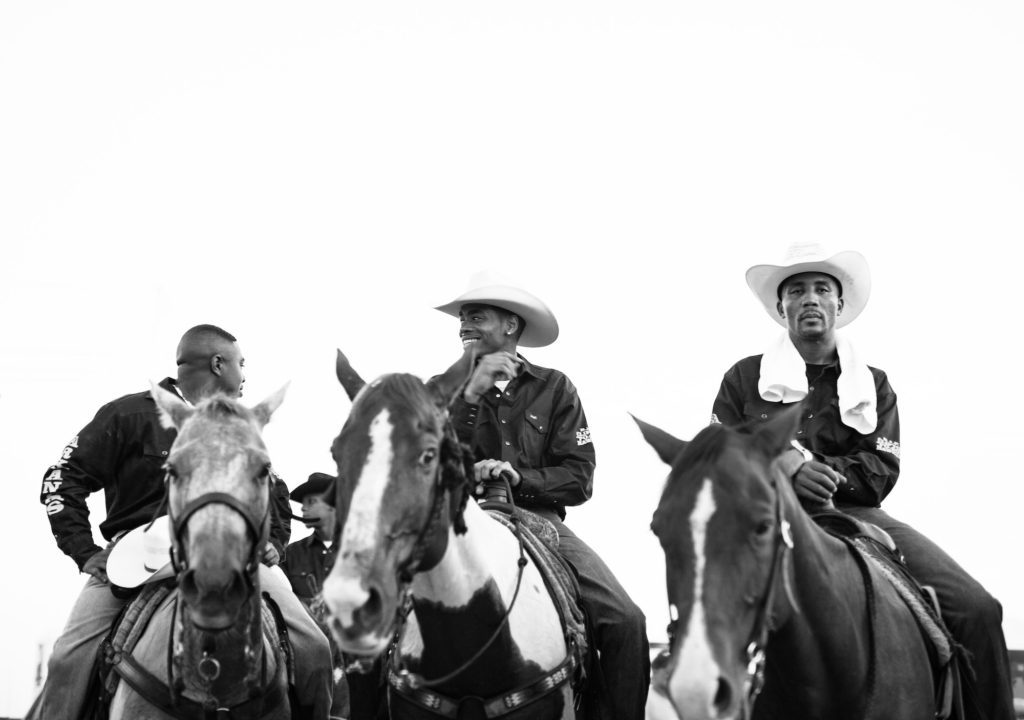
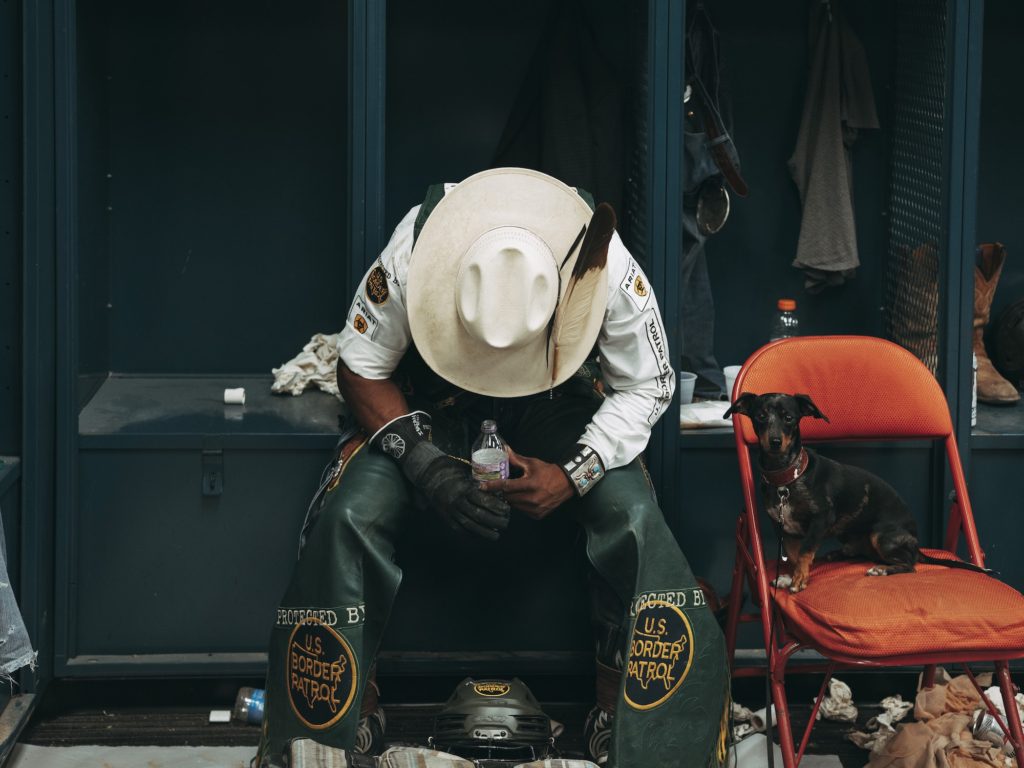

Rodeo photos by Ivan McClennan; photos of Ivan courtesy of The Black Cowboy
Download on Apple Podcasts
—
Download on Spotify
—
Download on Google Podcasts
—
Download on Stitcher
—
EPISODE NOTES
Topics Discussed:
- 4:30 – Background of the Eight Second Project
- 7:00 – Ivan’s first black rodeo in Oklahoma
- 9:30 – Publishing his first black rodeo images
- 11:00 – Working with big brands
- 15:00 – Ivan’s decision to self-fund the Eight Seconds Project
- 16:30 – Treating photography as sacred
- 18:30 – The long road toward creative freedom
- 23:00 – Ability to pivot into other creative niches
- 25:00 – Process of becoming a pro photographer
- 27:30 – Ivan describes his work and process
- 32:00 – History of Black Rodeo in Oklahoma
- 35:00 – Why more black riders aren’t in the PBR
- 39:00 – Shifting into a more equitable “new normal” in rodeo
- 41:00 – Dealing with the frustration of shifting perspectives
- 43:30 – Growing up in Kansas City
- 45:00 – Discovering the need for mindfulness
- 47:30 – Family’s role in mindfulness
- 49:00 – Details on Ivan’s meditation practice
- 52:00 – Mindfulness’s effects on Ivan’s creativity
- 56:00 – Lessons learned from rodeo riders
- 59:00 – Favorite books
- 1:00:30 – Favorite films
- 1:02:30 – Craziest thing Ivan’s every seen at a rodeo
- 1:04:30 – Parting words of wisdom
Information Referenced:
- Ivan on Instagram
- Eight Seconds Project
- Ivan’s Stetson story
- Stetson
- Bill Cunningham
- Bill Cunningham documentary
- Professional Bull Riding (PBR)
- Heath Herring
- Sticky Haynes
- Bill Pickett
- Death Magick Abundance by Akasha Rabut
- Unforgiven
- Bull
- Ezekiel Mitchell
- Keyshawn Whitehorse
Enjoy this episode? Then you might like these as well:
- Gabe Vasquez – Advocate for Equity in the Outdoors
- Daniela Ibarra-Howell – Healing the Land Holistically
- Duke Phillips IV – Living with the Land
- Sara Dant – A Deep Dive Into the History of the West
- Logan Maxwell Hagege – Artistic Evolution
- Pete McBride – A Passion for Water & Wild Places
- Mark Maggiori – A Fresh View of the American West

